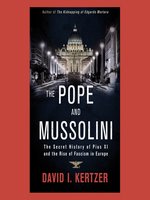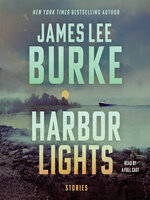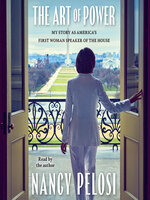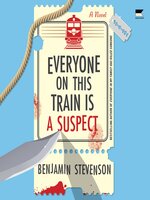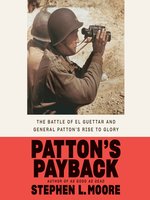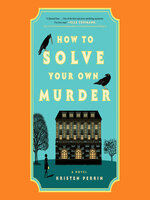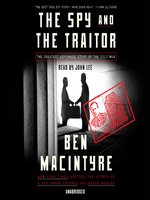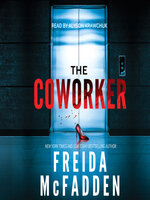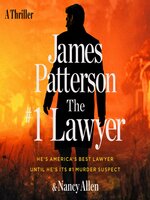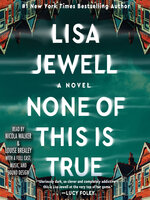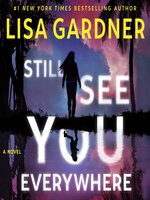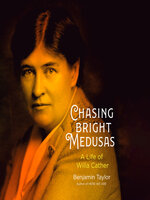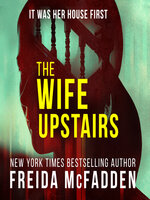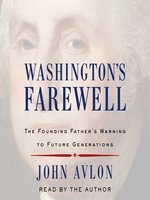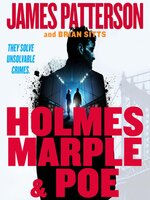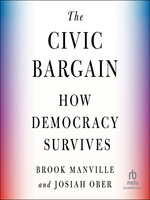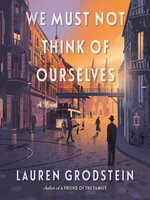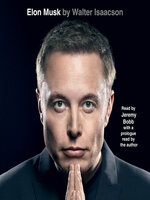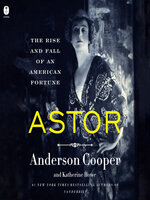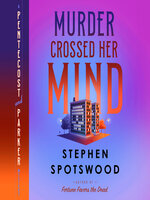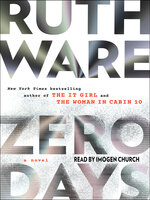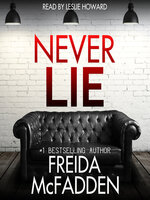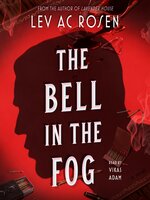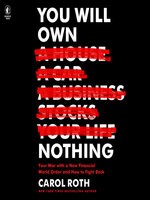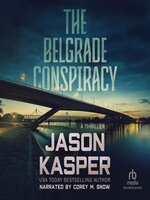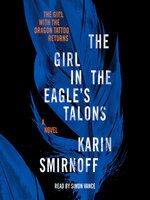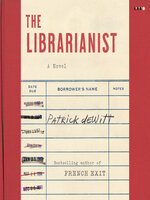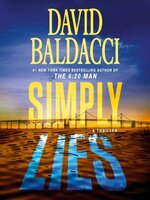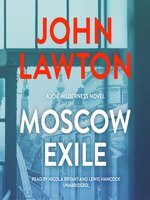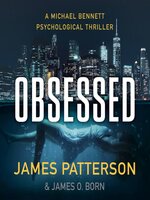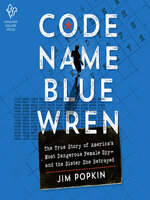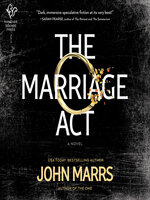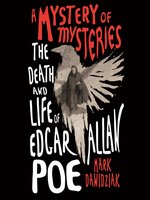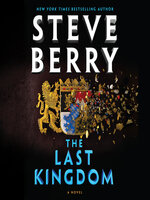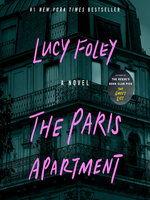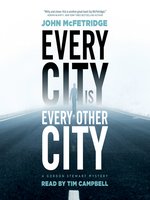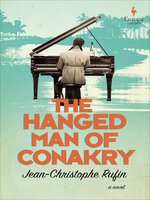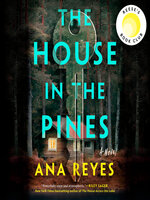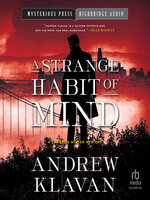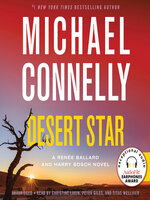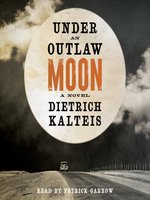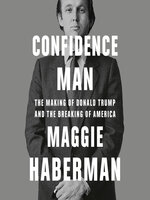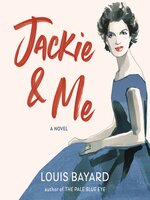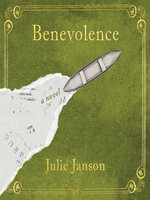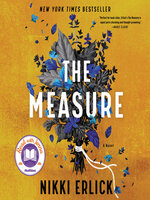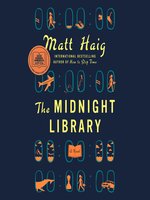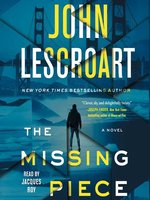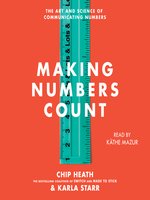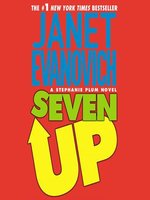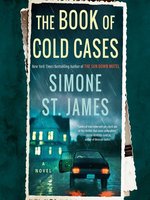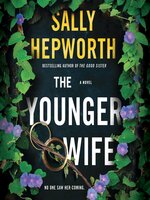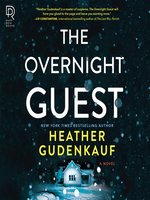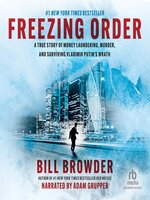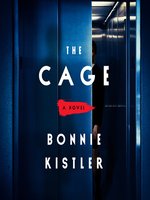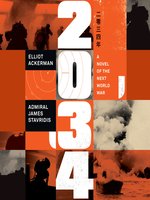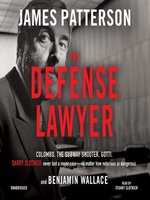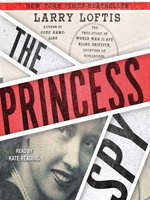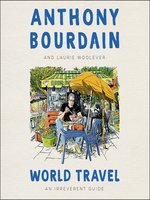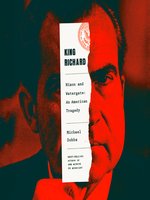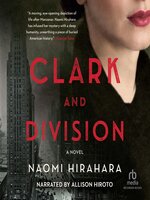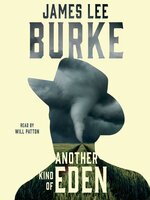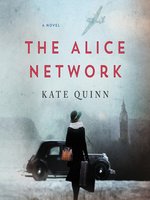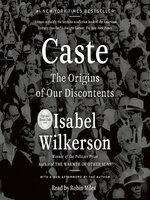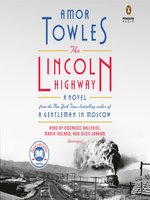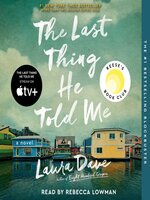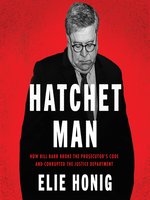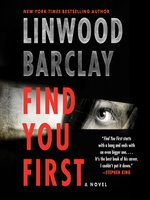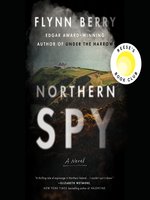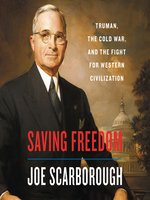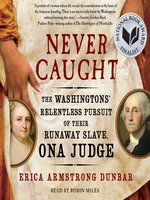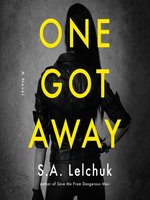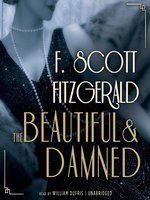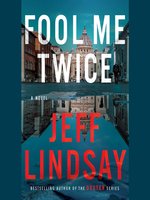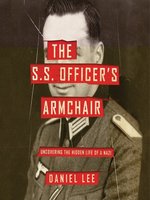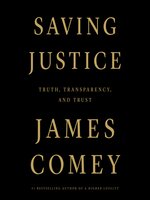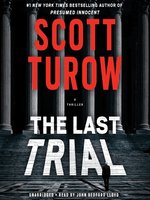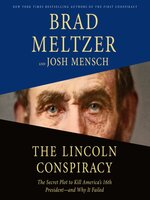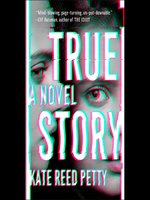
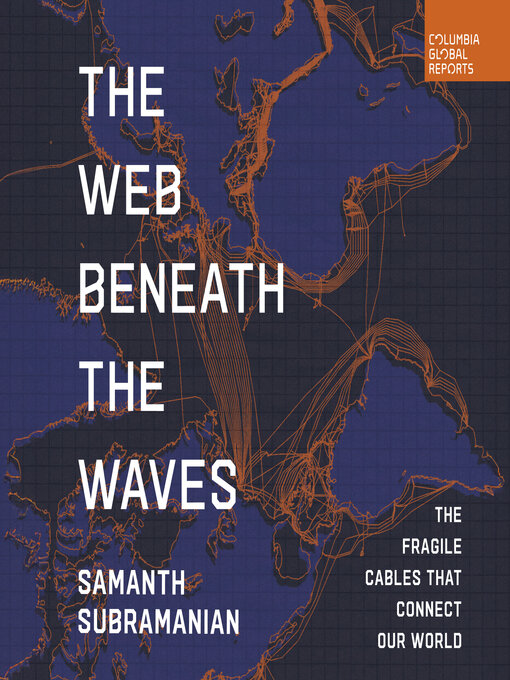
Read Text Preview
The Web Beneath the Waves by Samanth Subramanian ⭐⭐⭐⭐
The Premise: A deep-sea investigation into the literal "cloud"—the massive network of fiber-optic cables on the ocean floor that powers the global internet.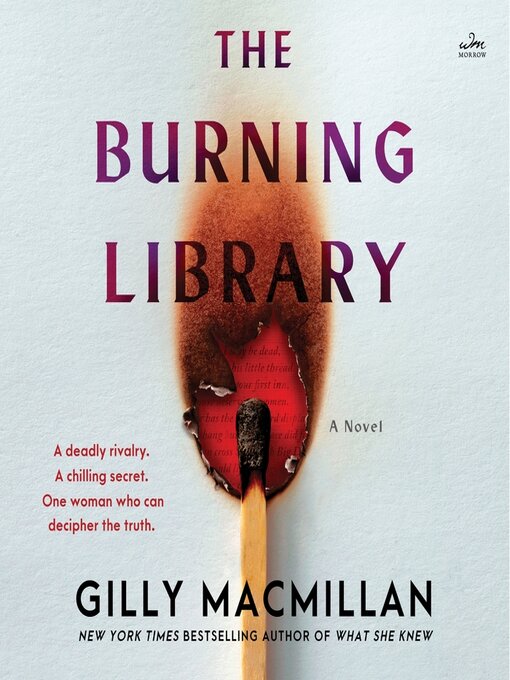
Read Text Preview
The Burning Library by Gilly Macmillan ⭐⭐⭐
The Premise: A paleographer is caught between two secret societies fighting over a medieval manuscript. (Note: A bit slow-paced for some readers).
Read Text Preview
107 Days by Kamala Harris ⭐⭐⭐
The Premise: An unfiltered account of the 2024 campaign. (Note: Critics found it more of a policy recap than a personal memoir).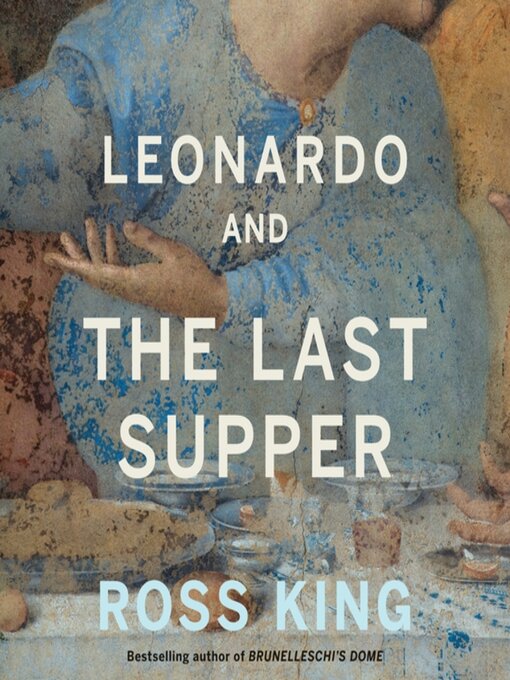
Read Text Preview
Leonardo and the Last Supper by Ross King ⭐⭐⭐⭐⭐
The Premise: The story of Leonardo da Vinci’s struggle to paint his masterpiece amidst war and political intrigue.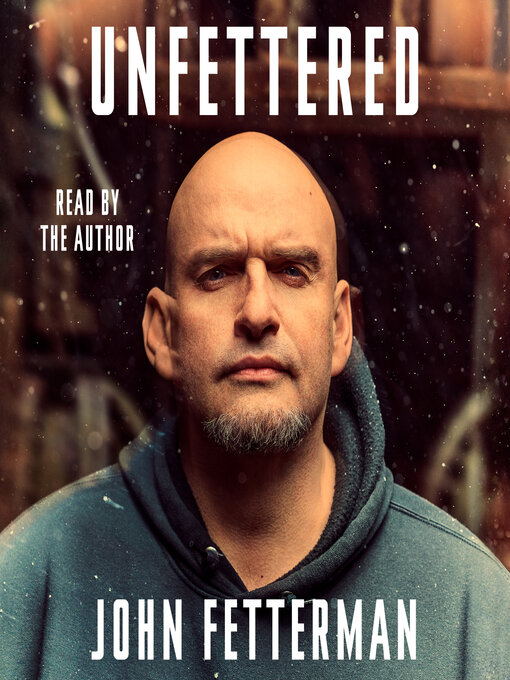
Read Text Preview
Unfettered by John Fetterman ⭐⭐⭐⭐
The Premise: A raw memoir detailing a stroke, recovery, and a mission to humanize the political process.
Read Text Preview
Flesh by David Szalay ⭐⭐
The Premise: A series of stories exploring the physical realities of modern existence. (Note: Often cited as overly bleak and clinical).
Read Text Preview
The Mad Wife by Meagan Church ⭐⭐⭐⭐
The Premise: In the 1950s, a housewife’s world unravels leading to a dangerous obsession.
Read Text Preview
Want to Know a Secret? by Freida McFadden ⭐⭐⭐⭐
The Premise: An influencer with a perfect life is stalked by someone who knows her darkest secret.
Read Text Preview
Tell Me What You Did by Carter Wilson ⭐⭐⭐
The Premise: A podcast host hears from a caller claiming to be her mother’s killer. (Note: Good setup, but a controversial ending).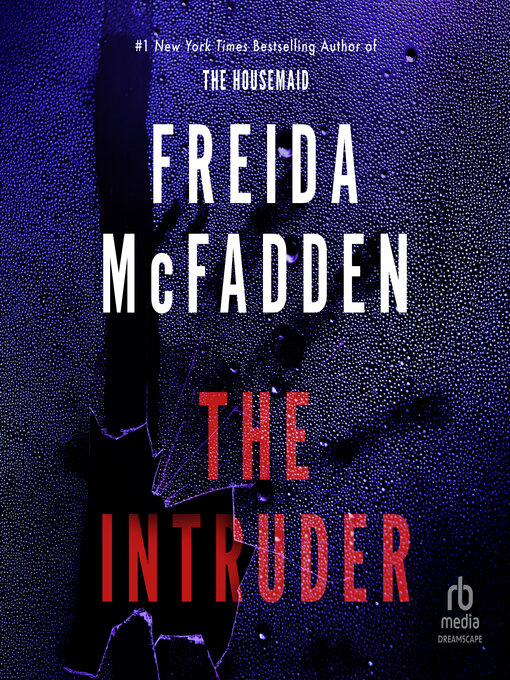
Read Text Preview
The Intruder by Freida McFadden ⭐⭐⭐⭐⭐
The Premise: During a hurricane, a woman finds a bloody girl who is hiding a secret deadlier than the storm.
Read Text Preview
It Will Be God by Sophia Ruffin-Wilson ⭐⭐⭐
The Premise: A spiritual guidebook focused on overcoming rejection and trauma. (Note: Very niche audience).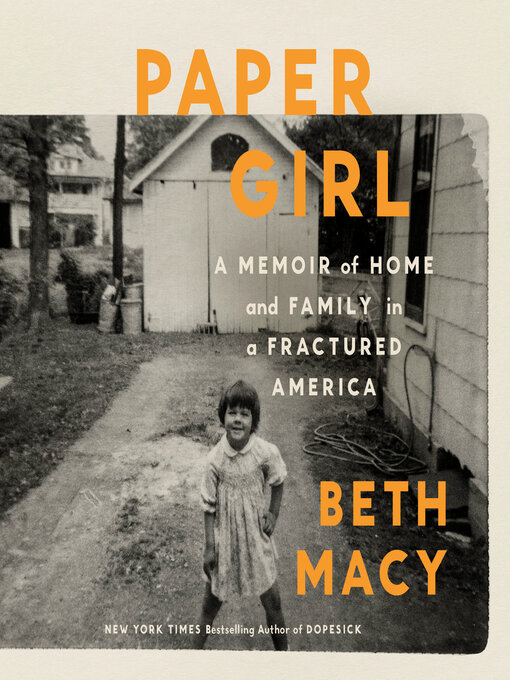
Read Text Preview
Paper Girl by Beth Macy ⭐⭐⭐⭐
The Premise: An exploration of the lives of working-class people in rural America.
Read Text Preview
The Hour of the Predator by Giuliano da Empoli ⭐⭐⭐⭐⭐
The Premise: A political thriller following the rise of a populist leader through the eyes of his loyal advisor.
Read Text Preview
The Man with a Thousand Faces by Lex Noteboom ⭐⭐⭐
The Premise: An international espionage novel where a man navigates identity theft. (Note: A bit convoluted for some).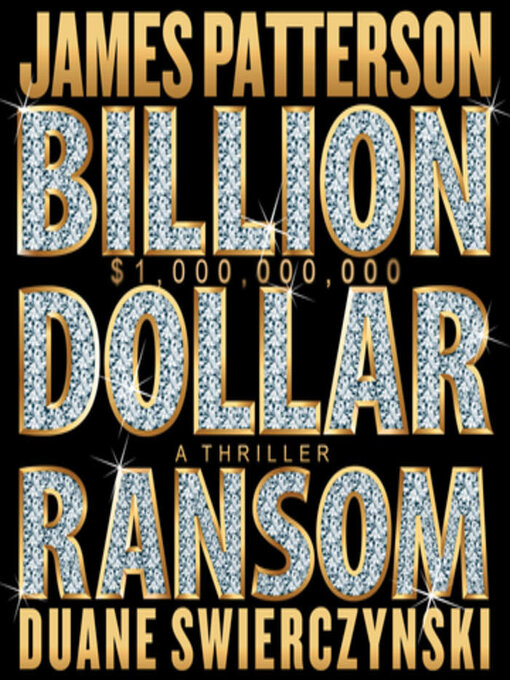
Read Text Preview
Billion-Dollar Ransom by James Patterson ⭐⭐⭐
The Premise: When a wealthy woman is kidnapped, an investigator must recover her. (Note: Standard Patterson formula).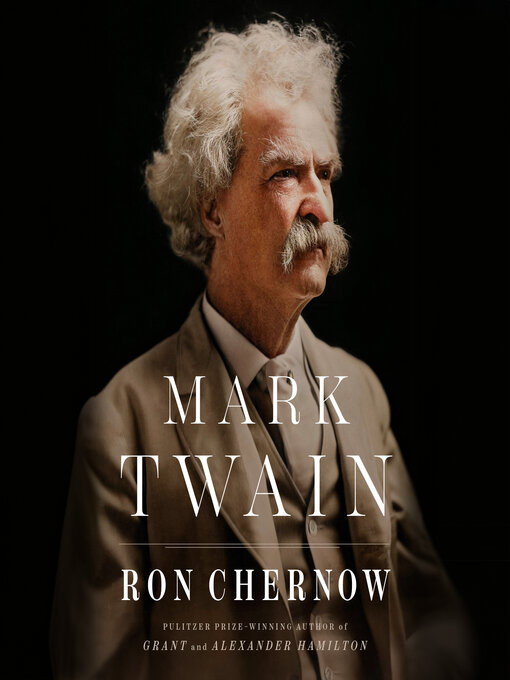
Read Text Preview
Mark Twain by Ron Chernow ⭐⭐⭐⭐⭐
The Premise: A biography of Samuel Clemens, exploring how his wit masked a life of deep tragedy.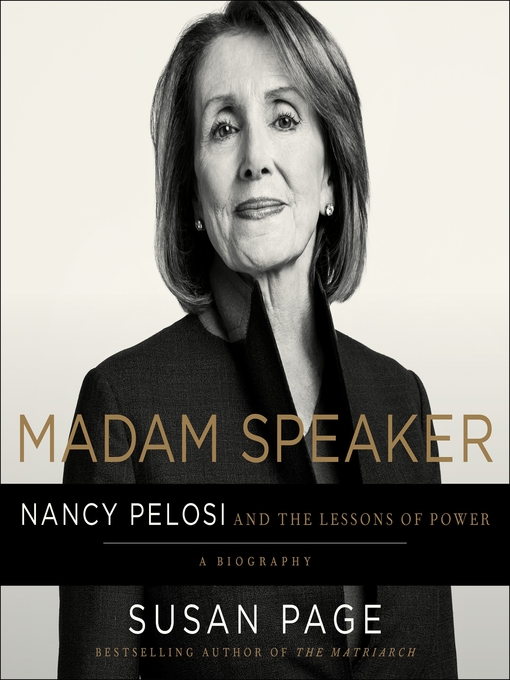
Read Text Preview
Madam Speaker by Susan Page ⭐⭐⭐⭐
The Premise: A biography of Nancy Pelosi, detailing her evolution to the most powerful woman in American history.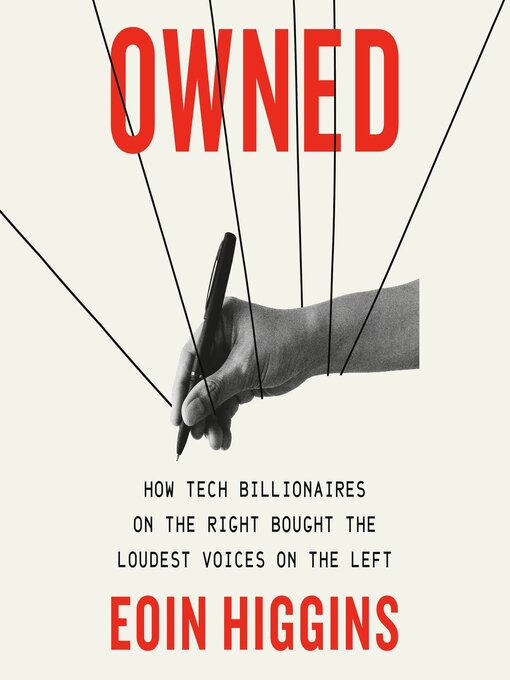
Read Text Preview
Owned by Eoin Higgins ⭐⭐⭐
The Premise: An expose on venture capital and corporate consolidation. (Note: Strong message, but dry writing).
Read Text Preview
The Housemaid by Freida McFadden ⭐⭐⭐⭐⭐
The Premise: A woman with a criminal past finds that her new wealthy employers have secrets far more dangerous.
Read Text Preview
The CIA Book Club by Charlie English ⭐⭐⭐⭐
The Premise: The true story of the Cold War campaign where Western agencies smuggled banned books.
Read Text Preview
The Phoenix Pencil Company by Allison King ⭐⭐⭐
The Premise: A novel about three women keeping a pencil factory running during WWII. (Note: Felt a bit repetitive).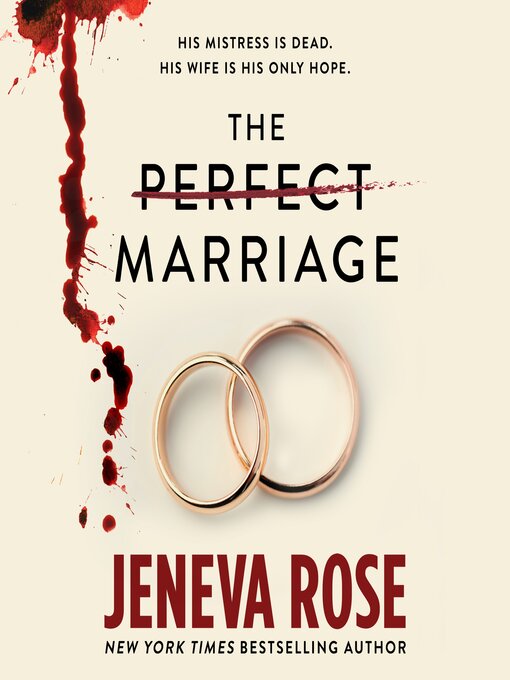
Read Text Preview
The Perfect Marriage by Jeneva Rose ⭐⭐⭐⭐
The Premise: A defense attorney must defend her husband after he is accused of murdering his mistress.
Read Text Preview
Character Limit by Kate Conger ⭐⭐⭐⭐
The Premise: An investigative look into Elon Musk’s takeover of Twitter.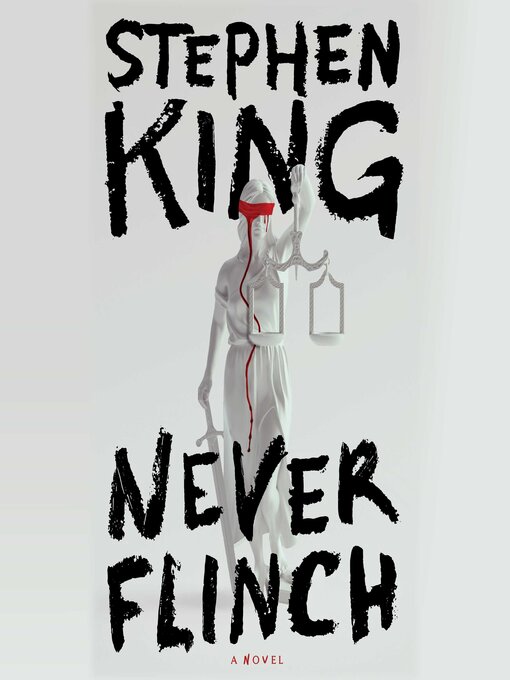
Read Text Preview
Never Flinch by Stephen King ⭐⭐⭐⭐
The Premise: A thriller involving a unique serial killer and a detective in a deadly game.
Read Text Preview
Original Sin by Jake Tapper ⭐⭐⭐
The Premise: 1960s investigators look into Hollywood and Civil Rights. (Note: Tries to cover too much ground).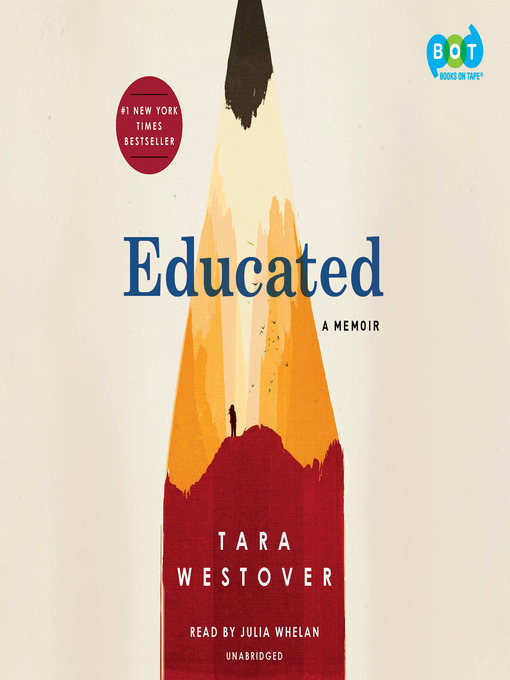
Read Text Preview
Educated by Tara Westover ⭐⭐⭐⭐⭐
The Premise: A memoir about a girl born to survivalists who stepped into a classroom for the first time at seventeen.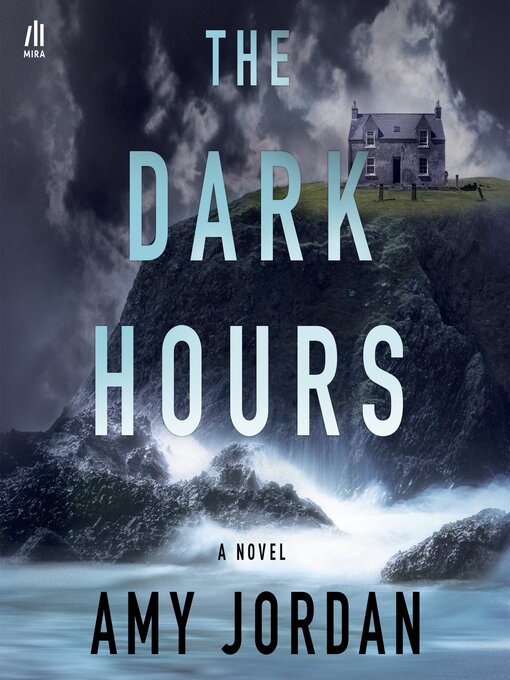
Read Text Preview
The Dark Hours by Michael Connelly ⭐⭐⭐⭐
The Premise: A detective thriller where a cold case and a fresh murder collide on New Year's Eve.
Read Text Preview
The First Gentleman by James Patterson ⭐⭐
The Premise: A woman is elected President and her husband must navigate threats. (Note: Often criticized for plot holes).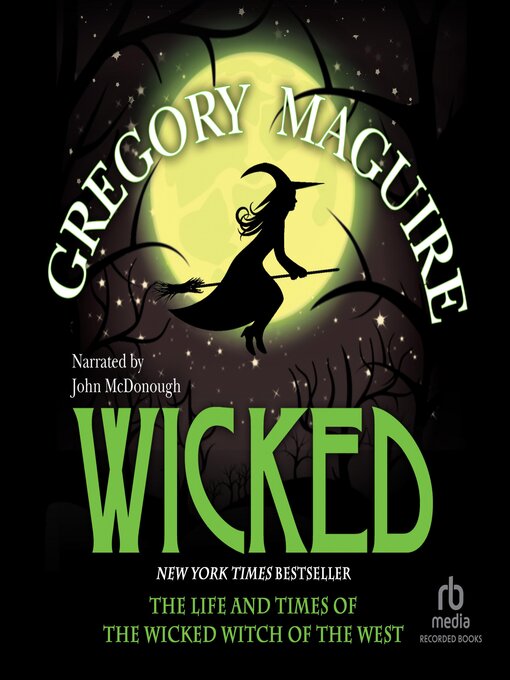
Read Text Preview
Wicked by Gregory Maguire ⭐⭐⭐⭐⭐
The Premise: A revisionist look at Oz, telling the back-story of the Wicked Witch.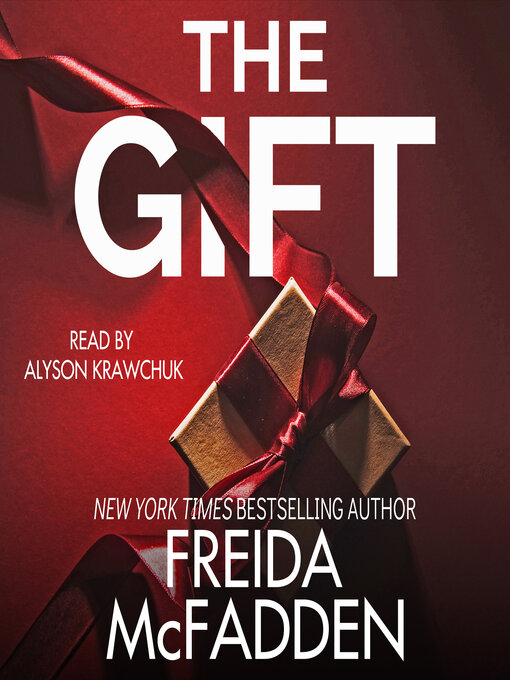
Read Text Preview
The Gift by Freida McFadden ⭐⭐⭐⭐
The Premise: A thriller about an anonymous gift exposing a dark family secret.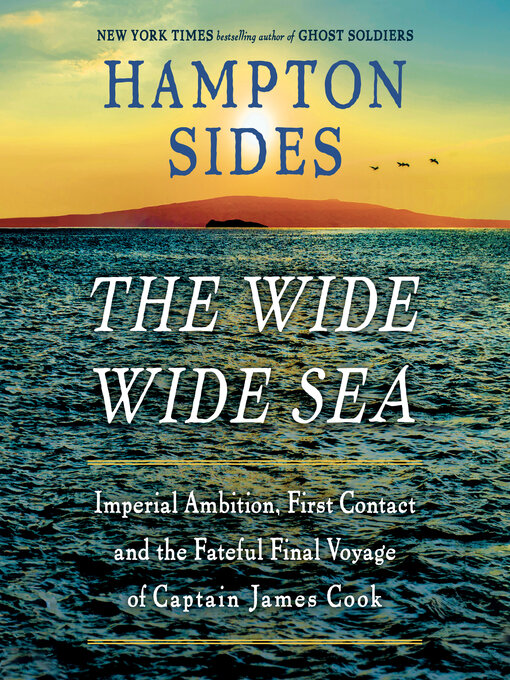
Read Text Preview
The Wide Wide Sea by Hampton Sides ⭐⭐⭐⭐⭐
The Premise: A researched account of Captain James Cook’s final voyage.
Read Text Preview
It Ends With Us by Colleen Hoover ⭐⭐⭐
The Premise: A moving story of choosing to break a cycle. (Note: Polarizing; some love it, others find it melodramatic).
Read Text Preview
Radio Silence by Alice Oseman ⭐⭐⭐⭐⭐
The Premise: A YA novel about friendship and the courage to pursue a creative life.
Read Text Preview
Black Irish by Stephan Talty ⭐⭐⭐
The Premise: Detective tracks a serial killer in an insular neighborhood. (Note: Gritty, but some find the ending rushed).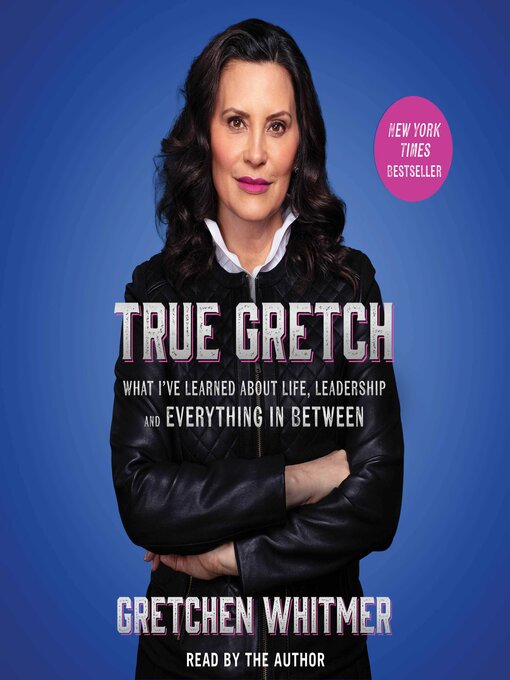
Read Text Preview
True Gretch by Gretchen Whitmer ⭐⭐⭐⭐
The Premise: A memoir about leading through crisis and the power of grit in politics.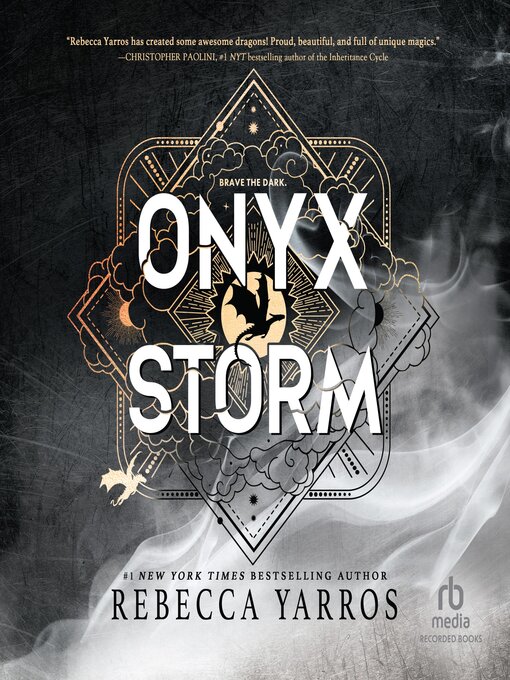
Read Text Preview
Onyx Storm by Rebecca Yarros ⭐⭐⭐⭐⭐
The Premise: Violet Sorrengail faces deadlier challenges in this dragon rider war series.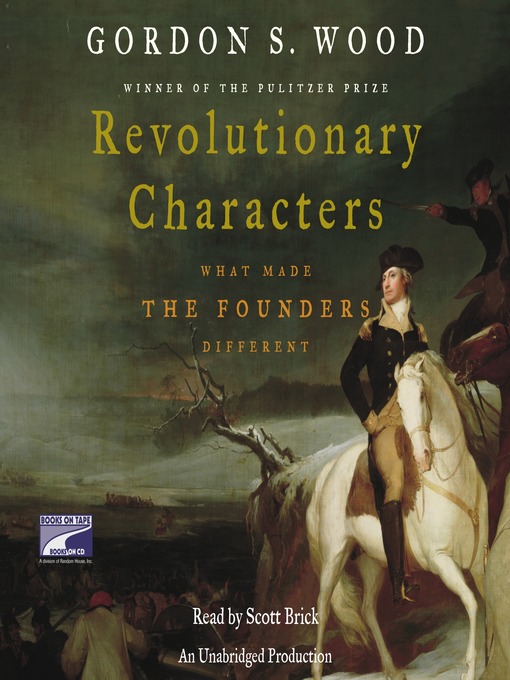
Read Text Preview
Revolutionary Characters by Gordon S. Wood ⭐⭐⭐⭐⭐
The Premise: An exploration of what made the Founding Fathers unique.
Read Text Preview
The Woman Who Would Be King by Kara Cooney ⭐⭐⭐⭐
The Premise: The biography of Hatshepsut, a female pharaoh who secured her throne.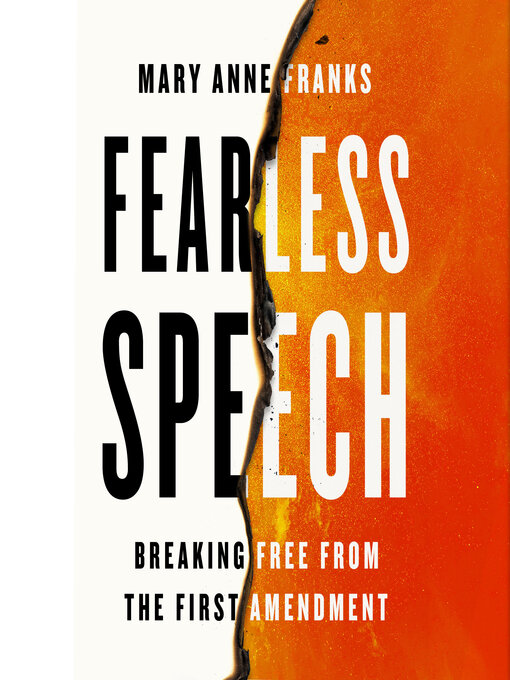
Read Text Preview
Fearless Speech by Mary Anne Franks ⭐⭐⭐
The Premise: Analysis of the First Amendment and its impact. (Note: Highly academic and dense).
Read Text Preview
Bellevue by Robin Cook ⭐⭐⭐
The Premise: A medical thriller in historic hospital walls. (Note: Fans say it's not his strongest work).
Read Text Preview
All the Light We Cannot See by Anthony Doerr ⭐⭐⭐⭐⭐
The Premise: A blind French girl and a German orphan survive the devastation of WWII.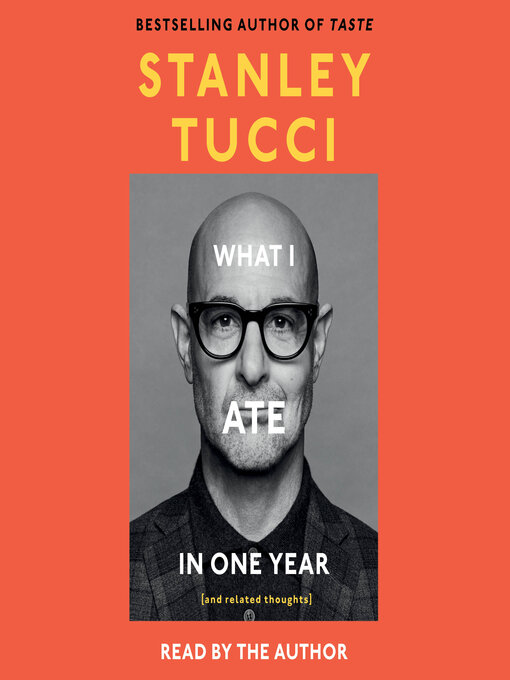
Read Text Preview
What I Ate in One Year by Stanley Tucci ⭐⭐⭐⭐
The Premise: A food-centric memoir reflecting on family and life.
Read Text Preview
Main Street Millionaire by Codie Sanchez ⭐⭐⭐
The Premise: A guide on building wealth by acquiring small businesses. (Note: Heavily sales-focused).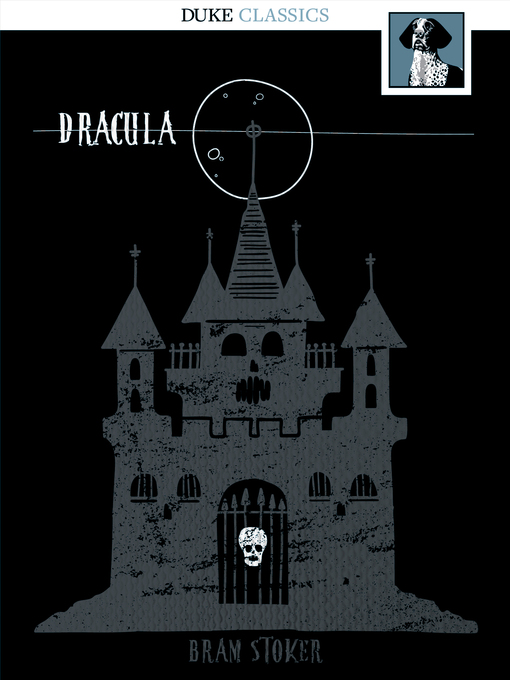
Read Text Preview
Dracula by Bram Stoker ⭐⭐⭐⭐⭐
The Premise: The classic novel of Count Dracula’s attempt to spread his curse in England.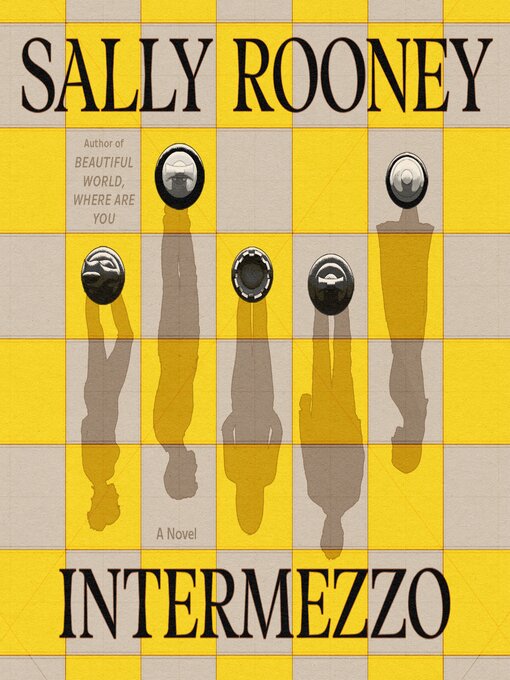
Read Text Preview
Intermezzo by Sally Rooney ⭐⭐⭐⭐
The Premise: Two brothers navigate grief and relationships after their father's death.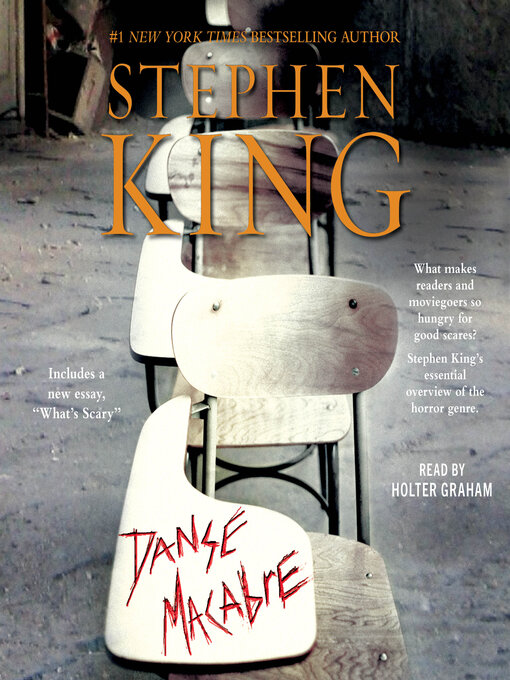
Read Text Preview
Danse Macabre by Stephen King ⭐⭐⭐⭐
The Premise: A deep-dive into the history of horror media.
Read Text Preview
Police at the Station and They Don't Look Friendly by Adrian McKinty ⭐⭐⭐⭐⭐
The Premise: Detective Sean Duffy solves a crossbow murder in Belfast.
Read Text Preview
War by Bob Woodward ⭐⭐⭐⭐
The Premise: An account of the Biden presidency navigating global conflicts.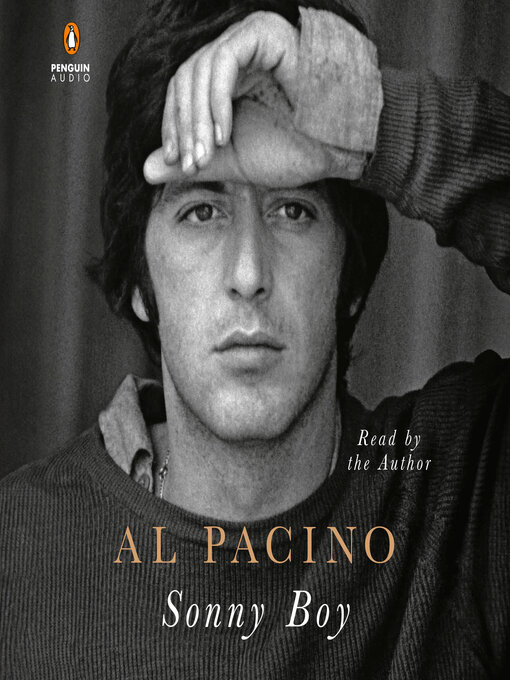
Read Text Preview
Sonny Boy by Al Pacino ⭐⭐⭐⭐⭐
The Premise: Pacino’s memoir, tracing his journey from the Bronx to Hollywood.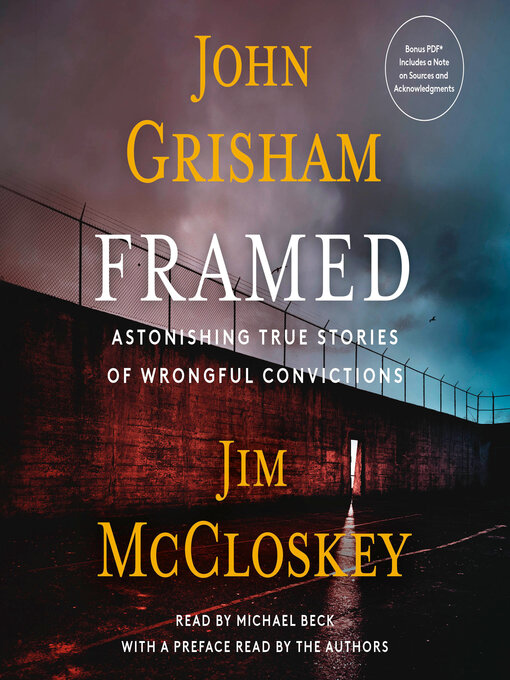
Read Text Preview
Framed by John Grisham ⭐⭐⭐⭐
The Premise: A non-fiction collection of ten true cases of wrongful conviction.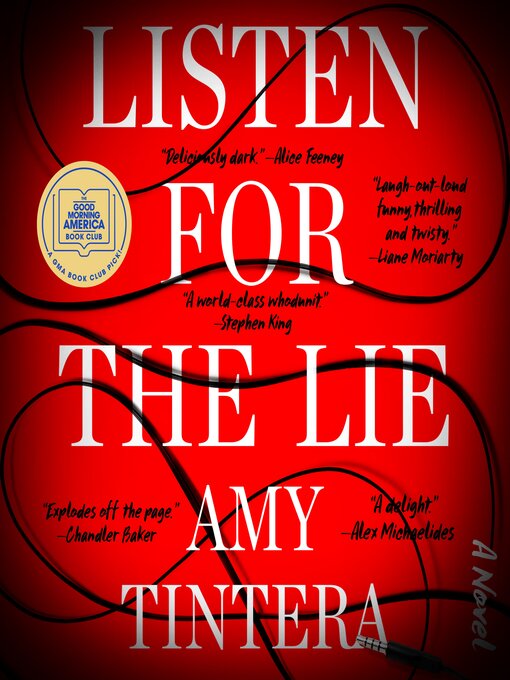
Read Text Preview
Listen for the Lie by Amy Tintera ⭐⭐⭐⭐
The Premise: A woman confronts the truth about her friend's murder when a podcast digs into the case.
Read Text Preview
The Life Impossible by Matt Haig ⭐⭐⭐⭐
The Premise: A retired teacher's magical journey of second chances in Ibiza.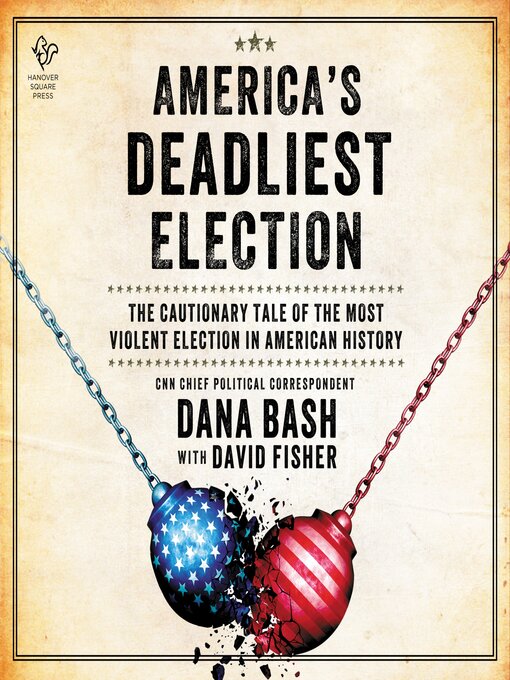
Read Text Preview
America's Deadliest Election by Dana Bash ⭐⭐⭐
The Premise: A history of the violent 1872 Louisiana race. (Note: Interesting history, but a bit dry).
Read Text Preview
The Demon of Unrest by Erik Larson ⭐⭐⭐⭐⭐
The Premise: A suspenseful account of the months between Lincoln's election and Fort Sumter.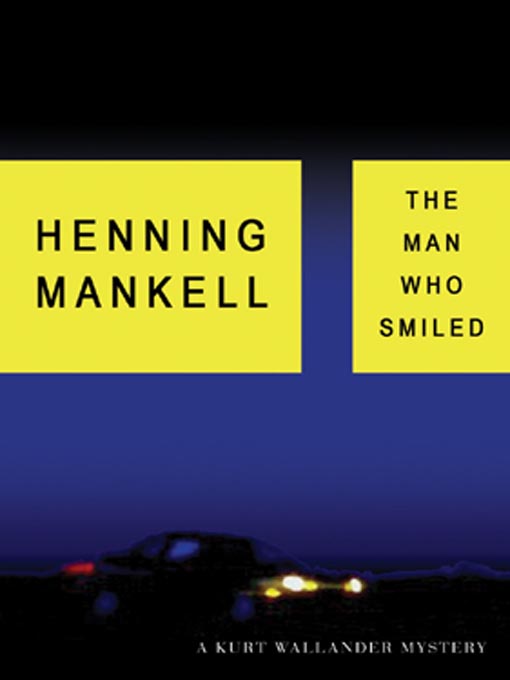
Read Text Preview
The Man Who Smiled by Henning Mankell ⭐⭐⭐⭐
The Premise: Kurt Wallander investigates organ trafficking after a suspicious death.
Read Text Preview
Crossing the Borders of Time by Leslie Maitland ⭐⭐⭐⭐⭐
The Premise: A true story of tracking down a mother's long-lost love from pre-war France.
Read Text Preview
The Heaven & Earth Grocery Store by James McBride ⭐⭐⭐⭐⭐
The Premise: Neighborhood secrets in 1930s Pennsylvania come to light when a skeleton is found in a well.Loan September 7, 2024
Loan September 7, 2024
Loan September 1, 2024
Loan August 18, 2024
Loan August 15, 2024
Loan August 10, 2024
Loan August 6, 2024
Loan August 6, 2024
Loan July 24, 2024
Loan July 24, 2024
Loan July 13, 2024
Loan July 13, 2024
Loan June 29, 2024
Loan June 29, 2024
Loan June 18, 2024
Loan June 12, 2024
Loan May 30, 2024
Loan May 30, 2024
Loan May 26, 2024
Loan May 25, 2024
Loan May 13, 2024
Loan May 13, 2024
Loan May 4, 2024
Loan April 26, 2024
Loan April 26, 2024
Loan April 13, 2024
Loan April 13, 2024
Loan March 30, 2024
Loan March 30, 2024
Loan March 30, 2024
Loan May 13, 2024
Loan May 13, 2024
Loan May 4, 2024
Loan April 26, 2024
Loan April 26, 2024
Loan April 13, 2024
Loan April 13, 2024
Loan March 30, 2024
Loan March 30, 2024
Loan March 30, 2024
Loan March 24, 2024
Loan March 19, 2024
Loan March 9, 2024
Loan March 9, 2024
Loan March 5, 2024
Loan March 1, 2024
Loan February 28, 2024
Loan February 9, 2024
Loan February 9, 2024
Loan February 9, 2024
Loan January 30, 2024
Loan January 30, 2024
Loan January 19, 2024
Loan January 19, 2024
Loan January 8, 2024
Loan January 7, 2024
Loan December 30, 2023
Loan December 24, 2023
Loan December 10, 2023
Loan December 10, 2023
Loan December 6, 2023
Loan December 6, 2023
Loan November 16, 2023
Loan November 16, 2023
Loan November 16, 2023
Loan November 10, 2023
Loan November 4, 2023
Loan October 27, 2023
Loan October 17, 2023
Loan October 17, 2023
Loan October 11, 2023
Loan September 27, 2023
Loan September 27, 2023
Loan September 20, 2023
Loan September 20, 2023
Loan September 12, 2023
Loan September 3, 2023
Loan August 28, 2023
Loan August 21, 2023
Loan August 15, 2023
Loan August 15, 2023
Loan August 9, 2023
Loan August 5, 2023
Loan July 29, 2023
Loan July 11, 2023
Loan July 5, 2023
Loan July 5, 2023
Loan July 5, 2023
Loan June 19, 2023
Loan June 18, 2023
Loan June 13, 2023
Loan June 11, 2023
Loan May 28, 2023
Loan May 28, 2023
Loan May 28, 2023
Loan May 15, 2023
Loan May 15, 2023
Loan May 9, 2023
Loan April 23, 2023
Loan April 23, 2023
Loan April 9, 2023
Loan April 9, 2023
Loan April 3, 2023
Loan April 3, 2023
Loan April 3, 2023
Loan March 30, 2023
Loan March 30, 2023
Loan March 24, 2023
Loan March 16, 2023
Loan March 11, 2023
Loan March 4, 2023
Loan February 25, 2023
Loan February 14, 2023
Loan February 14, 2023
Loan February 6, 2023
Loan January 24, 2023
Loan January 17, 2023
Loan January 10, 2023
Loan January 4, 2023
Loan December 19, 2022
Loan March 4, 2023
Loan February 25, 2023
Loan February 14, 2023
Loan February 14, 2023
Loan February 6, 2023
Loan January 24, 2023
Loan January 17, 2023
Loan January 10, 2023
Loan January 4, 2023
Loan December 19, 2022
Loan November 7, 2022
Loan November 7, 2022
Loan November 7, 2022
Loan November 1, 2022
Loan October 21, 2022
Loan October 21, 2022
Loan October 15, 2022
Loan October 6, 2022
Loan October 6, 2022
Loan September 27, 2022
Loan September 27, 2022
Loan September 18, 2022
Loan September 11, 2022
Loan September 8, 2022
Loan August 29, 2022
Loan August 29, 2022
Loan August 23, 2022
Loan August 23, 2022
Loan August 8, 2022
Loan August 8, 2022
Loan August 8, 2022
Loan August 4, 2022
Loan July 31, 2022
Loan July 29, 2022
Loan July 26, 2022
Loan July 19, 2022
Loan July 19, 2022
Loan July 16, 2022
Loan July 4, 2022
Loan July 4, 2022
Loan June 25, 2022
Loan June 25, 2022
Loan June 17, 2022
Loan June 17, 2022
Loan June 10, 2022
Loan June 10, 2022
Loan May 22, 2022
Loan May 19, 2022
Loan May 19, 2022
Loan May 16, 2022
Loan April 30, 2022
Loan April 29, 2022
Loan April 24, 2022
Loan April 23, 2022
Loan April 19, 2022
Loan April 18, 2022
Loan April 18, 2022
Loan April 12, 2022
Loan April 2, 2022
Loan March 31, 2022
Loan March 31, 2022
Loan March 26, 2022
Loan March 23, 2022
Loan March 19, 2022
Loan March 15, 2022
Loan March 10, 2022
Loan March 7, 2022
Loan February 28, 2022
Loan February 22, 2022
Loan February 12, 2022
Loan February 12, 2022
Loan February 12, 2022
Loan February 7, 2022
Loan February 2, 2022
Loan January 28, 2022
Loan January 17, 2022
Loan January 17, 2022
Loan January 14, 2022
Loan January 7, 2022
Loan January 1, 2022
Loan December 17, 2021
Loan December 17, 2021
Loan December 17, 2021
Loan December 8, 2021
Loan December 2, 2021
Loan December 2, 2021
Loan November 28, 2021
Loan November 23, 2021
Loan November 18, 2021
Loan November 14, 2021
Loan November 13, 2021
Loan October 30, 2021
Loan October 29, 2021
Loan October 18, 2021
Loan October 16, 2021
Loan October 16, 2021
Loan October 10, 2021
Loan October 2, 2021
Loan October 1, 2021
Loan September 14, 2021
Loan September 10, 2021
Loan September 10, 2021
Loan September 10, 2021
Loan August 29, 2021
Loan August 26, 2021
Loan August 25, 2021
Loan August 7, 2021
Loan August 3, 2021
Loan July 29, 2021
Loan July 24, 2021
Loan July 21, 2021
Loan July 14, 2021
Loan July 3, 2021
Loan July 1, 2021
Loan June 28, 2021
Loan June 28, 2021
Loan June 19, 2021
Loan June 14, 2021
Loan June 7, 2021
Loan May 22, 2021
Loan May 22, 2021
Loan May 17, 2021
Loan May 1, 2021
Loan April 30, 2021
Loan April 28, 2021
Loan April 27, 2021
Loan April 18, 2021
Loan April 8, 2021
Loan April 6, 2021
Loan March 31, 2021
Loan March 27, 2021
Loan March 8, 2021
Loan March 8, 2021
Loan February 25, 2021
Loan February 25, 2021
Loan February 20, 2021
Loan February 13, 2021
Loan February 13, 2021
Loan January 30, 2021
Loan January 30, 2021
Loan January 21, 2021
Loan January 16, 2021
Loan January 16, 2021
Loan January 2, 2021
Loan January 2, 2021
Loan December 24, 2020
Loan December 12, 2020
Loan December 11, 2020
Loan December 3, 2020
Loan November 28, 2020
Loan November 22, 2020
Loan November 15, 2020
Loan November 7, 2020

Preview Book
The Bourne Evolution by Brian Freeman ⭐⭐⭐½
Bourne is determined to unmask the killers of the woman he loved; the fact that the killers might be connected to Treadstone, the shadowy agency that (literally) created Bourne, is certainly an inconvenience, but readers who know Bourne will know that he won't let loyalties or his own past stand in his way. The writing is energetic, the story is well conceived and executed, and let's talk about suspense. While sticking broadly to the format established by the earlier Bourne novels, Freeman works a number of subtle variations, doing a very nice job of keeping us constantly guessing what's going to happen next. He keeps Bourne very much on his toes, and he breathes new life into a series that was?let's be honest?starting to feel a bit stale. 
Preview Book
Adrianne Geffel by David Hajdu ⭐⭐⭐½
A pianist of abrasive originality and persuasive power who hears music playing constantly in her head and shares it with the world. Adrianne grows up humming yet reacts violently whenever she hears other music played--it clashes with her own music--and after puzzling family and friends in her small town briefly ends up at Juilliard. Soon, she's downtown New York's "new Queen of Bleak Chic," but emotional reconnection with an old friend who truly cares for her makes her change direction, shocking acolytes, and vanish before a key concert. The story unfolds as oral history, delivered mostly by those who celebrate their stake in her--her clueless parents, a controlling self-styled boyfriend--resulting in a portrait that's as much about the exploitation of the gifted as it is about the gift of music, of the artist's exterior situation as it is of the artist's interior world. Hajdu is excellent at articulating the vitality of Geffel's music while leaving what it actually sounds like to our imagination. 
Preview Book
The Truths We Hold by Kamala Harris ⭐⭐⭐½
This book is by-the-numbers, with all the expected elements. Yet the author's background is unusual enough on many scores to set her autobiography apart: She is the first American of Indian or Jamaican descent to serve in the Senate and the first African-American senator from California, having served prominently and sometimes controversially as the state's attorney general. Countering the whispering birther movement surrounding her early campaign, Harris recounts that she was born in Oakland of mixed descent, with an Indian immigrant mother who "understood very well that she was raising two black daughters" and took pains to "make sure we would grow into confident, proud black women." The author excelled in school but, she recounts in a moment of reversal, failed her first effort at the bar, overcoming defeat to take a visible role in the Bay Area legal community. Her efforts at judicial reform figure in her timely call for an overhaul of sentencing procedures, all as part of a platform of "what I see as women's issues: the economy, national security, health care, education, criminal justice reform, climate change." Harris also reveals a policy-wonk side, enthusiastically addressing issues such as cybersecurity ("a new front in a new kind of battle") and economic inequality ("with millions of Americans hanging by a thread," she deftly writes of the current president, "the White House reached for scissors"). 
Preview Book
Rage by Bob Woodward ⭐⭐⭐⭐
The big news from veteran reporter Woodward's follow-up to Fear has been widely reported: Trump was fully aware at the beginning of 2020 that a pandemic loomed and chose to downplay it, causing an untold number of deaths and crippling the economy. His excuse that he didn't want to cause a panic doesn't fly given that he trades in fear and division. The underlying news, however, is that Trump participated in this book, unlike in the first, convinced by Lindsey Graham that Woodward would give him a fair shake. Seventeen interviews with the sitting president inform this book, as well as extensive digging that yields not so much news as confirmation: Trump has survived his ineptitude because the majority of Congressional Republicans go along with the madness because they "had made a political survival decision" to do so--and surrendered their party to him. The narrative often requires reading between the lines. Graham, though a byword for toadyism, often reins Trump in; Jared Kushner emerges as the real power in the West Wing, "highly competent but often shockingly misguided in his assessments"; Trump admires tyrants, longs for their unbridled power, resents the law and those who enforce it, and is quick to betray even his closest advisers; and, of course, Trump is beholden to Putin. Trump occasionally emerges as modestly self-aware, but throughout the narrative, he is in a rage. Though he participated, he said that he suspected this to be "a lousy book." It's not--though readers may wish Woodward had aired some of this information earlier, when more could have been done to stem the pandemic. When promoting Fear, the author was asked for his assessment of Trump. His reply: "Let's hope to God we don't have a crisis." Multiple crises later, Woodward concludes, as many observers have, "Trump is the wrong man for the job." An essential account of a chaotic administration that, Woodward makes painfully clear, is incapable of governing.
Preview Book
The Women with Silver Wings by Katherine Sharp Landdeck ⭐⭐⭐½
In this breezy and fascinating history that touches on dramas large and small, members of the Women Airforce Service Pilots (WASP) come alive. Drawing from extensive archives at Texas Woman's University (where she serves as an associate professor of history), as well as interviews gathered over the previous decades, Landdeck breathes new life into the WWII period. With a bitter battle over ambition and power at its center and all of the expectations for their gender constantly thrown in their way, the WASPs managed to accomplish serious feats of flying while aiding in the war effort. The fact that they were then forced to move to the sidelines and, in many cases, were rarely allowed to fly again after the war's end is as devastating today as it was then. With a gripping review of the battle to receive full recognition and benefits decades later for their war contributions, Landdeck moves beyond most histories. Readers interested in women in the military, and military, aviation, and women's history will find much to relish in this fresh, detailed account. 
Preview Book
This Is How I Lied by Heather Gudenkauf ⭐⭐⭐½
Det. Maggie Kennedy-O’Keefe of the Grotto, Iowa, PD is assigned to a cold case, the murder of her 16-year-old best friend, Eve Knox, after two kids find a new piece of evidence, Eve’s boot, in the cave where Maggie found Eve’s body 25 years earlier. Maggie’s job is to inform the Knox family, review the case files, gather all the evidence, and send it to the state lab for testing. She speaks to Eve’s mentally unstable sister, the sister’s abusive boyfriend, a pedophile neighbor, and her own father, the former Grotto PD police chief, who suffers from dementia. To complicate matters, Maggie is eight months pregnant and fatigued. When she receives threatening phone calls, and the barn on her property is torched, it becomes clear this small town is filled with secrets people want to keep buried. Maggie has to make one impossible choice after another as the action builds to a satisfying conclusion. Through alternating viewpoints Gudenkauf keeps the tension high throughout. Fans of dogged, resourceful female detectives will cheer Maggie every step of the way.
Preview Book
The Bridge by Bill Konigsberg ⭐⭐⭐⭐
Multiple realities explore the butterfly effects of two attempted teen suicides. Each of the narrative's alternate timelines starts the same way: Aaron Boroff and Tillie Stanley meet by coincidence at the George Washington Bridge. Both contemplate leaping into the Hudson River to end their lives--"facing each other like they're playing a deadly game of dare." Aaron, a White gay boy with a Christian mom and a Jewish dad who dreams of viral internet success as a singer/songwriter, feels he is a failure both musically and romantically. Tillie, a fat, adopted, Korean girl, has had enough of feeling out of place in her White family and being bullied at school. From there, the four linear timelines (presented one after the other) diverge into four possible outcomes: only Tillie jumps, only Aaron jumps, they both jump, or neither jumps. No outcome is presented as the true story, leaving readers to come to their own conclusions. Drawing from personal experience, Konigsberg's portrayal of depression is raw, honest, and nuanced. The deftly navigated third-person-omniscient narration powerfully evokes spiraling, obsessive thoughts and manic episodes. In addition to the focal teens' inner monologues, secondary characters--from family members to classmates--are sharply drawn and complicated. Though some plot points only happen in certain timelines, the text's careful construction hints that the best possible outcome is the teens' survival. A heartbreaking bridge into depression supported by a strong foundation of hope.
Preview Book
Murder Thy Neighbor by James Patterson ⭐⭐⭐½
Two quick real-life crimes are described in this book. They both deal with people who are mentally deranged, leading to murder.
In the first story, a young man purchased a dilapidated house, planning to fix it up, but it becomes too much for him. His neighbor takes him to court to try to get him to work on the property. The second story is about a young woman with a crush on the brother of a friend she meets by chance. This crush becomes an obsession with deadly results. Both stories are easy, but disturbing reads, about how quickly someone loses their grip on reality.
Preview Book
The Nemesis Manifesto by Eric Van Lustbader ⭐⭐⭐
Evan Ryder, a field agent in a black ops shop, works deep within the Department of Defense. Her spymaster boss receives a list with six names of agents investigating a mysterious organization known as Nemesis. In the last 10 months, five of them have either disappeared or been badly injured. Evan and fellow agent Brenda Myers are sent to interview the one survivor, Patrick Wilson. The obviously unwell Wilson, who’s been tortured, keels over and dies while talking to them, and shortly thereafter Evan and Brenda are the target of a car bombing. The novel encompasses such standard thriller elements as Russians, Nazis, betrayal, treasonous U.S. politicians, and evil masterminds, but Lustbader elevates these familiar components well above the usual thriller norm. Credible action and often lyrical prose support the complex, intelligent plot. A series of twists and an extended fight sequence at the end will leave readers amazed and pleasantly exhausted. Lustbader is at the top of his game.
Preview Book
1774 by Mary Beth Norton ⭐⭐⭐½
Starting in late 1773 and proceeding until the spring of 1775, this step-by-step walk through political events in the American colonies casts aside any notions of consensus and unanimity. History is most certainly told by the winners, but contemporary newspaper accounts, letters, and sermons provide the narratives not told in our modern textbooks. The story of the Boston Tea Party, passed down throughout American history, is brought into the light as a multifaceted, controversial event. This laying out of detailed facts concerning everything from the aforementioned tea-dumping to the First Continental Congress encourages readers to question previous assumptions. Norton quotes firsthand accounts and draws on her long history of Loyalist scholarship to underline that what now seems an inevitable page in American history was not always so clear, and the past that we harken back to is sometimes all too similar to our present day.
Preview Book
A Traveler at the Gates of Wisdom by John Boyne ⭐⭐⭐
Beginning with the Massacre of the Innocents in the first year of the Common Era and concluding in the year 2080, a singular voice narrates the biography of its soul through time and across the globe. Over the course of 2,000 years, this voice recounts episodes that take place in every country on Earth linked by shared details, such as family dynamics and conflicts from one time and place to the next. So the familial tensions and pivotal events of a life lived in 10th-century Iceland recur with nuanced and significant changes in Mozambique in the year 1000; a mother's warning in sixth-century Yemen comes to pass in eighth-century Egypt; and the mother who had loved and encouraged the son who narrates each vignette passes away in Mexico in the year 752. As multiple story arcs resolve and emerge in different times and places, the voice remains mostly consistent throughout, lending the tale continuity and cohesion. Also continuous is the violence and cruelty of patriarchy and the idea that beauty, creatively manifested in craft and art, has always been an antidote for these evils.
No Book Preview
Too Much And Never Enough by Mary L. Trump ⭐⭐⭐½
Trump, a trained clinical psychologist and the niece of President Donald Trump, delivers a concise and damning account of her family's dysfunctions and their role in shaping her uncle's toxic blend of cruelty, incompetence, and vainglory. The fault, according to Trump, lies mainly with her grandfather, Fred Trump, a "high-functioning sociopath" whose harsh treatment of his eldest son and namesake, Freddy Trump (the author's father, who died at age 42 after years of alcohol abuse), taught Donald to bury his insecurities behind "a perpetual sneer of self-conscious superiority" and to cheat and bully his way to success on wheels greased by his father's money and political connections. Though Trump begins and ends the book with scathing assessments of Donald's presidency and offers plenty of unflattering anecdotes, he remains a somewhat distant figure throughout. The most harrowing sections deal with Freddy Trump's yearslong decline after his attempt to leave his father's real estate business failed, and the family's callous treatment of his ex-wife, children, and grandchildren after his death. Writing with the sharp eye of a perpetual outsider in her own family, Trump presents a melancholic portrait of their complicity in her uncle's worst behaviors. Readers who despair for President Trump's ability to lead the country out of its current crises will have their worst suspicions confirmed.
Preview Book
I Am Pilgrim by Terry Hayes ⭐⭐⭐⭐
An exceptional thriller that boasts an utterly credible narrator who has had so many covert identities he can barely remember his original name. Soul-weary Scott Murdoch (aka the Pilgrim) has retired from the top echelon of ultrasecret espionage, but duty and faith in the human spirit call him back into service. A lone-wolf Middle Eastern native whom the Pilgrim code names “the Saracen” has a sure-fire bioterrorist plot to destroy the United States. In the cinematic chase that ensues, the action traverses the globe, from the Oval Office to the dusty trails of Afghanistan, each scene fleshed out in the smallest resonating detail (e.g., a Down syndrome child’s laughter, the endless nausea of waterboarding). Like many pilgrimages, this one is painfully long and packed with unexpected menace, its glimpses of the goal fitful and far between, but readers will agree that this journey of body and soul is well worth the effort.
Preview Book
In the Enemy's House by Howard Blum ⭐⭐⭐⭐
In this gripping exploration of Cold War spycraft, Blum (The Last Goodnight) lays out the complex chain of circumstances that led to the exposure of a major Soviet spy ring responsible for stealing America’s atomic secrets during and after WWII, and culminated with the execution of Julius and Ethel Rosenberg. As Blum follows the exploits of FBI agent Bob Lamphere and genius code breaker Meredith Gardner, he lays out the difficulties they faced in patiently unraveling the espionage network, one suspect at a time. To follow the trail to its source, they decrypted each stage of the code, compared it to a treasure trove of uncoded Soviet cables, and had to “re-create the KGB codebook” in order to match code names to actual people (“Kalibre” was Ethel Rosenberg’s brother, David Greenglass). Through extensive research and interviews, Blum brings a widespread cast of significant participants to life, from Lamphere and Gardner (from their awkward first meeting: “Meredith once again appeared to give the question considerable thought. But whether that was really the case... Bob could only guess. He found the man across from him inscrutable”) and their Soviet counterparts to the Rosenbergs and their many colleagues. Concise yet packed with details, this is a true page-turner, sure to appeal to those interested in the history of espionage or the Cold War.
Preview Book
The Silkworm by Robert Galbraith ⭐⭐⭐
J.K. Rowling, under her Galbraith pseudonym, again demonstrates her adroitness at crafting a classic fair-play whodunit in a contemporary setting, peopled with fully realized primary and secondary characters. PI Cormoran Strike, who debuted in 2013's The Cuckoo's Calling, has had a professional renaissance after his success in that book. To spite an uppity client, he accepts Leonora Quine's request to trace her missing husband, novelist Owen Quine. Leonora is pretty sure that Owen is at a writer's retreat, but has hit a dead end trying to get its address. Meanwhile, someone is following Leonora, and excrement is being shoved through her mail slot. Strike begins his search in London's literary circles, aided by his resourceful assistant, Robin Ellacott. He eventually finds a horrifically mutilated Owen, who was killed in a manner apparently copied from a controversial unpublished manuscript. The evolving relationship between Strike and Robin, whose fiance objects to her choice of work, is realistically portrayed.
Preview Book
The Story of a New Name by Elena Ferrante ⭐⭐⭐
At 16, best friends Elena and Lila are weary of their impoverished neighborhood and its crippling traditions, but while Lila seeks to alter these circumstances through an advantageous marriage, Elena strives to leave it behind by pursuing her education. When Lila's marriage fails to help her realize her goals, she becomes increasingly spiteful, and Elena, busy with an acceptance to college, grows critical of her progressively unpredictable friend. Once reliant on one another, the girls now find themselves occupying very different spheres in the rapidly changing landscape of 1970s Naples. As circumstances alternately draw them close and push them apart, they face difficult changes in the friendship that has always been their strongest source of love and support. Ferrante's writing is captivating and insightful. She delves deeply into the character of the girls' friendship, ushering them into womanhood with an honesty that is acutely personal.
Preview Book
True Crimes and Misdemeanors by Jeffrey Toobin ⭐⭐⭐
CNN legal analyst Toobin (American Heiress) delivers a vivid and doggedly reported rundown of special counsel Robert Mueller's investigation into Russian interference in the 2016 election and the impeachment of Donald Trump over the Ukraine affair. Drawing on interviews with more than 100 people, Toobin crafts an immersive narrative rich with insider details and astute observations. He credits teams led by Mueller and Congressman Adam Schiff, chairman of the House Intelligence Committee, with doing excellent work under difficult circumstances, yet contends that Mueller's "caution and reticence led him to fail at his two most important tasks": getting a consequential interview with Trump, and delivering a comprehensible final report that couldn't be misrepresented by the president's allies, in particular Attorney General William Barr. Mueller established multiple instances of obstruction of justice, Toobin notes, yet "placed Trump effectively above the law" by refusing to say whether he should be prosecuted. Lucid prose, trenchant analysis, and colorful anecdotes—including the time Schiff's 13-year-old son asked if he could call his dad "sleazy" because the president had just done so—will keep readers engrossed despite knowing the outcome. The result is a definitive behind-the-scenes portrait of what these investigations accomplished, and why they didn't bring Trump down.
Preview Book
The Nation City by Rahm Emanuel ⭐⭐⭐
City leaders don't have time for partisan bickering. Their constituents demand pragmatic solutions, whether fixing potholes or improving social services, and hold their leaders accountable when they don't deliver. Emanuel breezily surveys the achievements of mayors such as Bill de Blasio, who enacted universal pre-K in New York City; Greg Fischer, who revamped Louisville's education system; and Anne Hidalgo, who upgraded Paris's transportation system in an effort to combat climate change. But most of all, Emanuel touts his own achievements: renovating O'Hare Airport, altering the school system, and luring corporate headquarters downtown, among others. It's a spun record, denuded of the controversy that marked much of his tenure, and predictably self-serving. Nevertheless, the book brims with the author's passion for the city's top job. At its best, Emanuel's chronicle offers a revelatory view into how mayors run cities, and provokes readers to ponder whether cities really might save the world.
Preview Book
Strange Hotel by Eimear McBride ⭐⭐⭐
Opening the book to a list of cities, readers first stop in Avignon, where an unnamed woman checks into a dingy hotel, with a plan. It involves drinking wine, readers understand, but not succumbing to a flirtation with her courtyard neighbor. The episode ends, and the next stop on the ticker-tape of cities is Prague, where, watching a rainstorm from an unsafe balcony, she hopes her previous night's encounter will exit her room. Incidents follow in Oslo, Auckland, and Austin, each separated by years. Readers catch glimpses of this woman's past and the future she's aging mostly gratefully into. As we begin to grasp why she, and thus we, are in these rooms, McBride interrupts the narrative with subject and tense changes that keep us, thrillingly, on our toes. 
Preview Book
Death in Mud Lick by Eric Eyre ⭐⭐⭐⭐
When William "Bull" Preece died of an overdose in 2005, his flinty sister Debbie recruited her friend, lawyer Jim Cagle, to find out why. A tiny mom-and-pop pharmacy in Kermit, West Virginia (population 382) had received shipments of a staggering 9 million opioid pain pills in just two years. How could these clearly illegal sales go unchecked? The West Virginia attorney general taps Cagle to sue several drug distributors?until the election of a new, business-friendly attorney general, Patrick Morrisey, whose wife was?no joke?a lobbyist for one such distributor. Eyre covered the many threads of the story for the Charleston Gazette-Mail, chasing down a Goliath who kept changing: the distributors, who passed the blame to crooked doctors and pharmacists and, eventually, the addicts themselves; Morrisey, denying blatant conflicts of interest in late-night Twitter rants; and the DEA, a boar's nest of either incompetence or corruption. Meanwhile, the Gazette-Mail faces bankruptcy and layoffs, and Eyre himself faces a personal health crisis. This is an infuriating story, compellingly told, and adds another layer to the reporting of the opioid crisis laid out in Beth Macy's Dopesick (2018). It is also a tale of compassionate people deeply wronged and a dogged journalist who won't stand for it.
Preview Book
Nine Perfect Strangers by Liane Moriarty ⭐⭐⭐½
An exploration of characters with comfortable lives who can't help but make themselves uncomfortable. This time she takes on nine guests at a wellness retreat: a romance writer who is fading in popularity; a young married couple; a very handsome lawyer; a teacher, his wife, and their adult daughter; a divorced mother; and a familiar-looking middle-aged man. Tranquillum House, a nineteenth-century mansion in the middle of nowhere in Australia, has been converted to a well-guarded sanctuary, with yoga rooms, fruit smoothies, and an aggressively beautiful leader. Masha Dmitrichenko, emboldened by past success, plans to initiate this group into her new protocol, one that will shake up the wellness world. It's hard to share details, since each reveal is a delicious surprise. Readers will find themselves flipping through the nearly 500 pages. But even at that length, Nine Perfect Strangers is so well written and slyly constructed that it won't feel like enough. 
Preview Book
A Woman of No Importance by Sonia Purnell ⭐⭐⭐⭐
Virginia Hall, a spirited young woman from a once-wealthy Baltimore family, embarked on an overseas career as a clerk with the State Department in 1931 after finding that women were not welcome in the Foreign Service. Despite impressive work, she was barred from taking the diplomatic corps entrance exam for unexplained reasons. Two years later, a gunshot wound in a hunting accident cost her half of her left leg. Despite her disability, Hall drove ambulances for the French army after the war started. An undercover British agent noticed her, and she was hired by the Special Operations Executive to recruit Resistance workers in France. Posing as a newspaper reporter, Hall established a vast underground network that pushed back against the German invaders. In late 1942, with her cover blown, Hall escaped France via a dangerous trek across the Pyrenees to Spain. When the SOE refused to send her back to France, she joined the American Office of Strategic Services to facilitate D-Day operations. Though the broader contours of Hall’s story will be familiar to those who’ve read about wartime France. 
Preview Book
Anyone by Charles Soule ⭐⭐⭐½
A suspenseful tale built on the back of an existential crisis around the nature of human consciousness. In the present day, chemist Gabrielle White stumbles across an intriguing new technology that lets her transfer her consciousness into her husband’s body. Interwoven into this narrative is another taking place 25 years in the future, when this new technology, dubbed “flash,” has become commonplace, and flash prostitute Annami chronicles her experiences as a vessel for the minds of anonymous users. Soule draws readers into a brave new world where identities are meaningless and manipulation and control are the name of the game. As the two tales twist and merge together, Soule pits his protagonists against the cutthroat denizens of the corporate world. Present-day concerns about technology, privacy, and anonymity are projected into a dystopian but plausible future. Although the dual narratives are sometimes unwieldy, the novel is fast-paced and suspenseful.
Preview Book
Saint X by Alexis Schaitkin ⭐⭐⭐
This book plays with the conventions of the romantic thriller to comment on the uneasy relationship between working-class residents of a fictional island in the Caribbean and the wealthy American tourists who visit it. In 1995, a couple from a New York City suburb and their two daughters, adventurous college freshman Alison and cautious seven-year-old Claire, visit a resort on the island. Alison flirts with two workers at the resort, Clive and Edwin, and takes off with them nightly without her parents’ knowledge to visit a local club, where she dances, drinks, and gets high. One night, she doesn’t return, and her body is soon found on a nearby island. Though suspicion falls on Clive and Edwin, they are not charged with any crime. In present-day N.Y.C., Claire, who narrates much of the novel, recognizes Clive, now a cab driver, from the back seat of his taxi. Obsessed with learning what happened to Alison, she stalks him while neglecting her work and friends. As Claire embeds herself in Clive’s life, he grows increasingly wary, until he finally snaps and reveals what he knows about the final night of Alison’s life. As the novel gradually shifts to Clive’s point of view, Schaitkin subverts the other characters’ assumptions about the lives and intentions of strangers. This is a smart page-turner, both thought-provoking and effortlessly entertaining.
Preview Book
The New Jim Crow by Michelle Alexander ⭐⭐⭐⭐
Contrary to the rosy picture of race embodied in Barack Obama's political success and Oprah Winfrey's financial success, legal scholar Alexander argues vigorously and persuasively that “we have not ended racial caste in America; we have merely redesigned it.” Jim Crow and legal racial segregation has been replaced by mass incarceration as “a system of social control” (“More African Americans are under correctional control today... than were enslaved in 1850”). Alexander reviews American racial history from the colonies to the Clinton administration, delineating its transformation into the “war on drugs.” She offers an acute analysis of the effect of this mass incarceration upon former inmates “who will be discriminated against, legally, for the rest of their lives, denied employment, housing, education, and public benefits.” Most provocatively, she reveals how both the move toward colorblindness and affirmative action may blur our vision of injustice: “most Americans know and don't know the truth about mass incarceration”—but her carefully researched, deeply engaging, and thoroughly readable book should change that.
Preview Book
Simon the Fiddler by Paulette Jiles ⭐⭐⭐½
After leaving a Confederate regimental band, Simon Boudlin finds himself in Texas with the twin goals of buying land and courting Doris Dillon, a young Irish governess. After catching Doris's eye at one of the band's last outings, Simon lands in Galveston while Doris continues her service to a colonel's family. The Civil War wasn't particularly kind to Simon, but starting a new band with other displaced musicians hasn't been easy, either. After scraping together enough paying gigs to keep themselves clothed and fed, the band begins to land a few higher-paying jobs. When an appealing piece of property catches Simon's attention, he begins a mission to capture Doris' heart, settle down, and continue his musical career. Imbued with the dust, grit, and grime of Galveston at the close of the Civil War, Simon the Fiddler immerses readers in the challenges of Reconstruction.
Preview Book
King of the Mississippi by Mike Freedman ⭐⭐⭐½
A towering monument to arrogance faces off against a wily underminer in Freedman’s precise and pungent satire of the business world (after School Board). Brock Wharton is a successful Houston business consultant and, at least according to him, the smartest guy in the room. He’s on partner track at his consultancy when he’s assigned to train a new hire, Mike Fink, an earthy ex–Special Forces operative who sees Brock as less a mentor than a target. As Fink endlessly capitalizes on his veteran status to win the trust of clients and engages in various forms of professional sabotage, Brock develops his own counterinsurgency (as he dubs it) to get rid of Fink, whose very existence is an affront to Brock’s Harvard-burnished values. It’s not ruining anything to say that the two end up conspiring together on a far-flung assignment, but the road to their detente is never a forced one. Freedman laces the narrative with acid observations (“Like Islamists, Houstonians shared a fanaticism for knocking down landmark buildings”) and fills it with jargon, though the business doublespeak conceit wears thin. Freedman deserves credit for sticking with such a hubristic antihero; his darkly comic skewering of capitalism is all the more potent for it. This is sly, sharp fun.
Preview Book
The Chef by James Patterson ⭐⭐
The story was unbelievable. One ex-cop against terrorists in Mardi Gras? Why not add some other cops to help out, even if FBI didn't cooperate? But, the part I hated the most, an ex-cop falls for another guys wife, okay, but it's written like a teenage romance novel, her kisses made my heart beat fast, oh jeez. Her hair like a blond halo, oh come on. And the recipes at the end? what, is Patterson Betty Crocker now? It is very different in style, and I was disappointed because this should have been short story - information is repeated often, short and choppy lines, no true depth, a lot of wasted paper space. It is NOT a thriller until the last 30 pages. I found myself putting the book down often - never have I read a James Patterson book and have wanted to actually take a break from reading it. I have read almost every James Patterson book and find this one was probably written mostly by the "co-author". The book was almost childish and subpar work for a James Patterson book. 
Preview Book
The Impeachers by Brenda Wineapple ⭐⭐⭐½
The Author persuasively argues in this detailed and lucidly written history, the impeachment of Andrew Johnson, who ascended to the presidency after a mere six weeks as Lincoln’s v-p, was motivated by the impeachers’ view of Johnson’s actions as undermining the sacrifices Americans had made throughout four years of war. Many of Johnson’s fellow Republicans believed that his policies were antithetical to their aims of reconstructing the nation and helping millions of former slaves build new lives as free people. In February 1868, the House of Representatives voted to impeach Johnson, but this decision was based less on his alleged offense—violation of the Tenure of Office Act—than on his refusal to support his party’s aims. While previous scholars have viewed the impeachment, which failed to remove Johnson from office and allowed him to serve out his term, as an embarrassing political grudge fight, Wineapple argues convincingly that it clearly upheld the limits of presidential authority and the power of the constitutional system of checks and balances. Her arguments are novel and her prose lively (she describes the 14th Amendment as “a farrago of political jockeying, political compromise, and nagging anxiety about the future of a country where all people are created equal”). This book has much to offer enthusiasts of both historical and contemporary American politics.
Preview Book
The First Wave by Alex Kershaw ⭐⭐⭐⭐
Alex Kershaw tells the story of the D-Day from the points of view of the American, British, Canadian soldiers, and the French allied fighters, there are also a few comments from some of the German soldiers. This is a very appropriate time for this book to be published for the 75th anniversary of D-Day is June 6, 2019. This book is well researched. The author compiled and shares the stories of the people that were fighting the war. It is through the retelling of these stories that we learn of the fear and the courage of the men sent to defeat Hitler. Kershaw takes you right into the action through his meticulous research, interviews with veterans, and gift for narrative with “The First Wave…” It is a treat to read and once again inspires awe at the courage of those who fought that battle. If you study this period at all, you know that the conquest of Nazi Germany was not at all a certain thing in 1944. Looking back today, it sometimes seems that way, but from General Eisenhower to the lowliest private fighting fear and nausea in airplanes and landing craft, it was not at all sure. They were confident, yes, bus definitely not assured of victory. Kershaw’s writing skill reminds the reader of the uncertainty and the courage it took to overcome that and fight on to free Europe from the scourge of Nazi occupation. Every American should read this book. We need to never forget the sacrifices made that day to save the world from tyranny.
Preview Book
Bodega Dreams by Ernesto Quinonez ⭐⭐⭐
The author has a poet's ear for the barrio's Spanglish rhythms and idioms, a brujo's gift for describing its alma, and an intense, unrelenting streetwise energy. The book features a cast of memorable characters, including dim-witted Neno, who can't complete a sentence without quoting a song lyric; the nefarious barrio lawyer Nazario; the drug runner and possible hitman Sapo, who would rather be flying a kite from the top of a tenement; and cameo appearances by many real artists and poets. But at the heart of everything is Willie Bodega, a former Young Lord who has become the biggest drug lord of them all. Bodega is also one of the most visionary and magnanimous characters in contemporary fiction. He hands out money for tuition, rent, whatever anyone needs--asking only loyalty in return. Bodega has a dream of what Spanish Harlem could become, and no scruples at all about how the money to fuel his dream is acquired. "We were all insignificant," says Chino, the narrator, "dwarfed by what his dream meant." Chino is an artist who can wax positively lyrical when he is not trading hilarious banter. The plot is basic noir--the fall of an anti-hero--but it is wrapped with a glittering array of scams and schemes that keep it all hopping.
Preview Book
After Me Comes the Flood by Sarah Perry ⭐⭐⭐
A man becomes lost in the woods only to be welcomed by a household of strange but passionate residents. Tired of the summer heat, John Cole sets off from his London bookshop to visit his brother, who lives by the sea. But John never arrives. In the dark Thetford forest, his car breaks down, and he loses his way in the woods. At the end of a path, he reaches the door of a grand mansion. The young girl who opens it seems to recognize him. "John Cole! Is that you? It is you, isn't it--it must be, I'm so glad. I've been waiting for you all day!" So begins Perry's unsettling debut, which shuttles between fairy story and allegory without ever resolving into a single shape or genre. The house is both magnificent and menacing, with "broken chandeliers trailing chipped strings of glass drops," a glass eye constantly changing hands, and empty meat hooks dangling in the kitchen. Consumed with dread and guilt about being an imposter, John chronicles his days with the residents in a journal that reads like a fever dream. There's Hester, a fiercely protective matron and former actress; Elijah, a former preacher who has lost his faith and fears going outside; Walker, a chain-smoking, card-playing devil in a rumpled tuxedo; Eve, a coquettish pianist who longs for attention; and the siblings Clare and Alex, otherworldly changelings who seem at once capable of complete innocence and total guile. Unlike Perry's following two novels, plot matters less than mood here--confusion, uncertainty, and endless possibility unfold over the week of John's stay. Even the sundial in the garden tells "two times at once." What connects this fragile household together? Who is sending Alex cruel poison-pen letters? Why does Eve make John feel "pain set up very low in his stomach...as if hooks had been pushed through his flesh"? And whose place has John actually taken? Like Shirley Jackson, Carmen Maria Machado, and other evocative masters of the gothic, Perry circles closer to answers without ever dispelling the magic that holds her narrative in breathless suspense. A mysterious fable about honesty and deceit, love and self-loathing, and our sometimes-doomed quests for inner peace. 
Preview Book
My Dark Vanessa by Kate Elizabeth Russell ⭐⭐⭐⭐
At age 15, Vanessa had a relationship with her 42-year-old English teacher, Jacob Strane, who claims to love her for her emotional intelligence and creative writing abilities. At least that's what she tells us nearly two decades later, when another student has called out Strane for their sexual activity and starts a social media firestorm. It also starts Vanessa thinking. She had always believed that she and Strane shared true love and defends him now against this student's so-called lies, but what really happened? Vanessa must decide whether she was a victim or willing participant, which of course raises the question of how willing you can be at age 15 in an unequal power relationship. As Vanessa slowly unpacks what happened, we see her youthful and ongoing denial, the impact of events on her still unsure self, how sedulous Strane was in drawing her in, how unabashed he remains, how much she needed and still needs to believe they had something special, and how she still takes Strane as a measure. 
Preview Book
Texas Outlaw by James Patterson ⭐⭐⭐⭐
Texas Ranger Rory Yates has another adventure to face head-on, though he might have wished he just stayed at home. While in a bank over the lunch hour, Rory Yates comes upon a robbery. Quick to act, Yates fires to quell the storm, only to find himself in a great deal of trouble from his superiors. While the entire event was captured on film and is now making its way through social media, the Texas Rangers want to cool things off and send Yates to a small Texas town to help with a mysterious death. A local woman has died of an apparent anaphylactic attack, but the fact that she told a friend she had to speak with the police has begun to raise some flags. Tasked with working alongside one of the local detectives, Yates begins poking around, though he soon discovers that he is not welcome. Butting heads with one of the local oil barons, Yates must try to solve this case before things get out of hand. Once one of the local oil workers is shot, Yates realises that this is no longer just fun and games. Evidence of the shooting takes a turn that Yates could not have expected, leaving him to bend the rules in order to help someone escape the clutches of the law. This is frowned upon and Yates becomes an outlaw himself, as his superior makes his way to this small town to tie off the loose ends. Refusing the stand down and remaining one step ahead of those looking for him, Yates stumbles upon something that might blow the case wide open. Patterson and Bourelle work well together in this piece, taking twang out of the story and providing a palatable piece worth reading. 
Preview Book
Nothing Ventured by Jeffrey Archer ⭐⭐⭐⭐
From age eight, William Warwick knew he wanted to be a police detective. His father, a criminal barrister, wished William would have followed in his footsteps. But with the assistance of his mother, William went to university, studied art, and became a police officer. He starts at the bottom, walking a beat as a police constable, although he could have been fast-tracked as a college graduate. When he passes the detective's exam, William is assigned to the Metropolitan Police Force, attached to Art and Antiques. While he works several cases, because of his knowledge of art, his major assignment involves the theft of valuable paintings, forgeries, and a finder's fee when the paintings are "recovered" on behalf of the insurance companies. While investigating, he meets Beth Rainsford, a beautiful gallery research assistant, who has family secrets. The case, and Beth's secret, result in riveting simultaneous court trials, in a story that builds in intensity. 
Preview Book
Empire of Lies by Raymond Khoury ⭐⭐⭐½
The Western world turns upside down in this time-traveling alternate history by the author of The End Game (2016, etc.). A naked "mystery man" suddenly appears in the Muslim city of Paris. After murdering a man for his clothes, he winds up in the hospital. The year is 1438, or 2017 if you live in the exclusively Christian and white Christian Republic of America. He is Ayman Rasheed, a strange, tattooed patient who eventually begins to babble apparent nonsense to a Dr. Ramazan about traveling across three centuries from the time of the Ottomans' siege of Vienna. "None of you would be here if it wasn't for me," Rasheed insists. Meanwhile, Kamal and Taymoor are partners in the counterterrorism unit of the sultan's secret police and are honored to witness the public beheadings of terrorists they have caught. It's that kind of society--the erstwhile Notre Dame cathedral is now called Faith Mosque, Paris has minarets, its main language is Turkish, and freedom doesn't exist. This is all because Rasheed isn't the "delusional joker" Ramazan thinks he is. Rasheed had traveled to 1683 C.E., bushwhacked Christian generals, and paved the way for the Ottoman conquest of Europe. The bad news: Europe is "a murderous, barbaric state," and America looks no better. The good news: There weren't two world wars with tens of millions of deaths. Which outcome is better is a subject Kamal must mull. Rasheed used a special Palmyran incantation for his time travel, but still, "it's not so easy to travel three hundred years across time." When Kamal and friends find those magic words, they must decide whether to undo Rasheed's deed and allow history to take its natural course. It's no matter why the words work--they are a simple plot device to show the stench, misery, and horror of that great clash of civilizations that "would decide the fate of the world." This untypical thriller powerfully mixes history, culture, warfare, and imagination. 
Preview Book
Broken by Don Winslow ⭐⭐⭐½
Rosenberg, professor emeritus of literature at Bard College, recounts his remarkable journey from young Polish-Jewish student to daring French underground freedom fighter in this powerful debut memoir. As the Nazis tightened their grip on the Free City of Danzig (now Gdansk, Poland) in 1937, Rosenberg’s parents sent their blue-eyed, blond, 16-year-old son to schooling and safety in Paris. Three years later, he fled south after the Nazis occupied the city. In Marseille, through an amazing “confluence of circumstances,” he met an American journalist named Varian Fry who helped artists and intellectuals escape Nazi occupation. Rosenberg’s German background, French education, and fluency in several languages allowed him to become a successful espionage agent, and he went on to work with Fry, assisting the likes of Marc Chagall, Andre Breton, Franz Werfel, and Max Ernst to escape into Spain. Rosenberg, a modest narrator, nevertheless writes thrillingly of his life—of participating in reconnaissance and guerrilla attacks; joining the 636th Tank Destroyer Battalion as interpreter and scout; and serving as supply officer for the United Nations Relief and Rehabilitation Administration—all while dodging injury, imprisonment, and death. Rosenberg’s memoir has all the suspense of a tense spy thriller. 
Preview Book
The Art of Resistance by Justus Rosenberg ⭐⭐⭐
Rosenberg, professor emeritus of literature at Bard College, recounts his remarkable journey from young Polish-Jewish student to daring French underground freedom fighter in this powerful debut memoir. As the Nazis tightened their grip on the Free City of Danzig (now Gdansk, Poland) in 1937, Rosenberg’s parents sent their blue-eyed, blond, 16-year-old son to schooling and safety in Paris. Three years later, he fled south after the Nazis occupied the city. In Marseille, through an amazing “confluence of circumstances,” he met an American journalist named Varian Fry who helped artists and intellectuals escape Nazi occupation. Rosenberg’s German background, French education, and fluency in several languages allowed him to become a successful espionage agent, and he went on to work with Fry, assisting the likes of Marc Chagall, Andre Breton, Franz Werfel, and Max Ernst to escape into Spain. Rosenberg, a modest narrator, nevertheless writes thrillingly of his life—of participating in reconnaissance and guerrilla attacks; joining the 636th Tank Destroyer Battalion as interpreter and scout; and serving as supply officer for the United Nations Relief and Rehabilitation Administration—all while dodging injury, imprisonment, and death. Rosenberg’s memoir has all the suspense of a tense spy thriller. 
Preview Book
A Beautiful Crime by Christopher Bollen ⭐⭐⭐½
At the start of this stunning crime novel from Bollen, 25-year-old Nicholas Brink leaves his lover and life in New York City to meet his new boyfriend, Clay Guillory, in Venice. There, the two young men set in motion a supposedly foolproof con to unload counterfeit silver on Richard Forsyth West, a charming, wealthy ex-pat American for whom Clay once worked and who’s immersed in Venice’s renovation. Clay inherited the silver from his last partner, the much older Freddy van der Haar. The sale will allow Clay to pay off debts incurred while caring for Freddy and allow the couple a fresh start. While the swindle fuels the plot, the story gains its strength from its look at gay romance and how individuals become a couple, as well as its view of shabby yet chic Venice, with its “fugitive magic” that lacks “the reality check of poverty and ugliness and ordinary struggles.” Clay and Nick grapple with their morals and greed while remaining appealing. Readers will easily root for them to get away with the con. 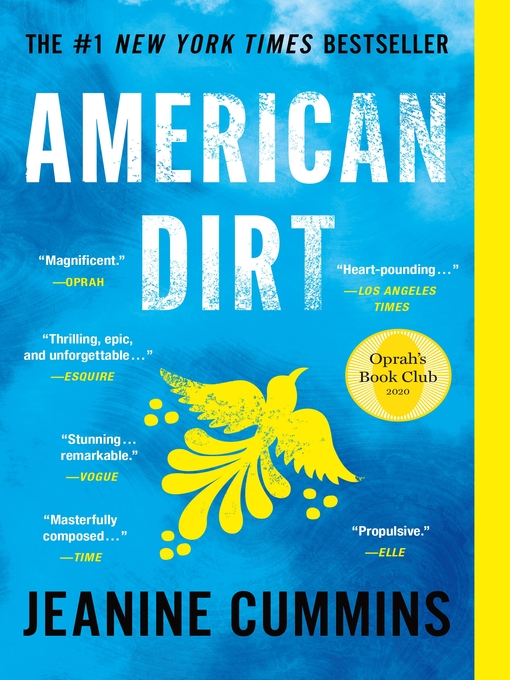
Preview Book
American Dirt by Jeanine Cummins ⭐⭐⭐½
This terrifying and tender novel is a blunt answer to the question of why immigrants from Latin America cross the U.S. border--and a testimony to the courage it takes to do it. Cummins (The Crooked Branch, 2013, etc.) opens this propulsive novel with a massacre. In a pleasant Acapulco neighborhood, gunmen slaughter 16 people at a family barbecue, from a grandmother to the girl whose quinceañera they are celebrating. The only survivors are Lydia, a young mother, and her 8-year-old son, Luca. She knows they must escape, fast and far. Lydia's husband, Sebastián, is among the dead; he was a fearless journalist whose coverage of the local cartel, Los Jardineros, is the reason los sicarios were sent, as the sign fastened to his dead chest makes clear. Lydia knows there is more to it, that her friendship with a courtly older man who has become her favorite customer at the small bookstore she runs is a secret key, and that she and her son are marked for death. Cummins does a splendid job of capturing Lydia's and Luca's numb shock and then panic in the aftermath of the shootings, then their indomitable will to survive and reach el norte--any place they might go in Mexico is cartel territory, and any stranger might be an assassin. She vividly recounts their harrowing travels for more than 1,000 miles by bus, atop a lethally dangerous freight train, and finally on foot across the implacable Sonoran Desert. Peril and brutality follow them, but they also encounter unexpected generosity and heroism. Lydia and Luca are utterly believable characters, and their breathtaking journey moves with the velocity and power of one of those freight trains. Intensely suspenseful and deeply humane, this novel makes migrants seeking to cross the southern U.S. border indelibly individual.
Preview Book
Courting Mr. Lincoln by Louis Bayard ⭐⭐⭐½
Historical thriller veteran Bayard (Lucky Strikes, 2016, etc.) finds suspense in the three-cornered relationship of Mary Todd, her awkward but compelling suitor, Abraham Lincoln, and his closest companion, debonair Joshua Speed.About to turn 21 when she arrives in Springfield in 1839, Mary teeters on the brink of old-maidenhood. She's too sharp-tongued and politically astute for the town's eligible men--including, she thinks regretfully, handsome merchant Joshua Speed, whom she initially finds more charming than his friend Lincoln, who is as tongue-tied with ladies as he is plainspokenly eloquent at the Illinois statehouse. But Mary becomes intrigued by Lincoln, a rising Whig politician who finds a woman with brains and savvy enticing rather than off-putting. She doesn't yet realize how destabilizing their budding romance is for Lincoln and Speed. For two years the men have shared a room and a bed, not in itself unusual for 19th-century bachelors, but as Lincoln hungrily learned the ways of polite society from his new friend, a deeper intimacy developed. By the time Mary appears, Lincoln and Speed, each profoundly lonely for his own reasons, share an unusually intense bond apparent to all. Alternating between Mary's and Joshua's points of view, Bayard chronicles the bumpy progression of the Lincoln-Todd courtship, its painful blow-up, and Lincoln's subsequent collapse into crippling depression. There are no villains in this acute and compassionate portrait: When Speed warns Lincoln that Mary "will drain [you] dry," we can see there's some truth in this statement but even more truth in Lincoln's retort, "Is it this girl you object to? Or is it any girl?" The author commendably refrains from imposing 21st-century sexual mores on the Lincoln-Speed relationship, profoundly loving but not physical in Bayard's depiction. Mary Todd, by contrast, gets a welcome contemporary reappraisal as a woman of spirit and will, not the needy hysteric painted by traditional historians.Not a lot of action, but in Bayard's skilled hands, three complicated people groping toward a new phase in their lives is all the plot you need.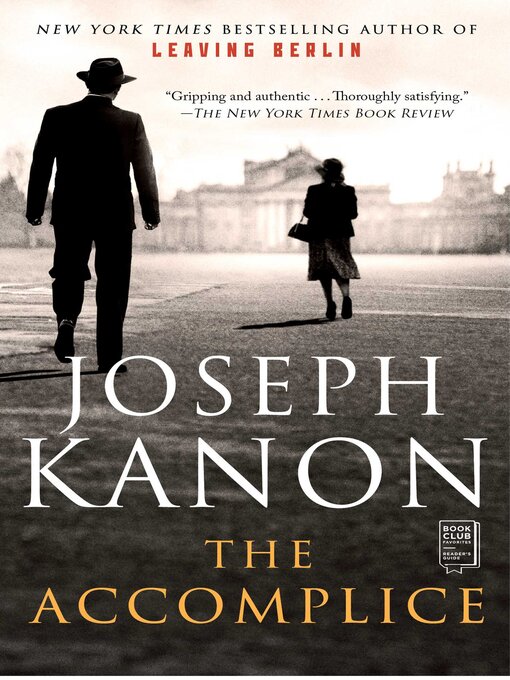
Preview Book
The Accomplice by Joseph Kanon ⭐⭐⭐
In 1962, the year of Adolf Eichmann's execution, CIA analyst Aaron Wiley, nephew of famed Nazi hunter Max Weill, tracks notorious concentration camp torturer Otto Schramm to Argentina--where Aaron becomes involved with Schramm's daughter. Max, a Holocaust survivor who was on the cover of Time magazine with his "old rival" Simon Wiesenthal, refuses to believe official accounts that Schramm is dead. Maybe another evil Nazi, but not the one with whom he once studied medicine and the one who conducted hideous experiments on children at Auschwitz. Not the Mengele associate who chatted with Max at the camp knowing Max's son was being led into the gas chamber. The Nazi hunter's skepticism is borne out when, joined by Aaron at an outdoor cafe in Hamburg, he spots Schramm, whom he recognizes from the way he walks. Max's failing health doesn't allow him to pursue Schramm, aka Helmut Braun, after his prey slips away. Reluctantly, Aaron takes his uncle's place. It doesn't take him long to get introduced to the daughter, Hanna, in Buenos Aires. Quickly attracted to her, he finds himself in the untenable position of secretly tailing her when not enjoying her considerable charms. Fueled by brilliant scenes of dialogue between Aaron and Hanna, who, at considerable psychological cost, has come to accept her father's evil past, Kanon's latest sophisticated thriller is teeming with suspense. Surrounded by aggressively anti-Semitic acquaintances of Hanna's who are hoping for a Fourth Reich and working with British and Israeli operatives with conflicting agendas, Aaron is an endangered odd man out. As fast as the pages turn, though, the novel stumbles with less-than-convincing character developments and plot turns. While elements of the Casablanca formula work well at first, ultimately they don't. A fast-paced, atmospheric thriller that works less well in reflecting on the banality of evil.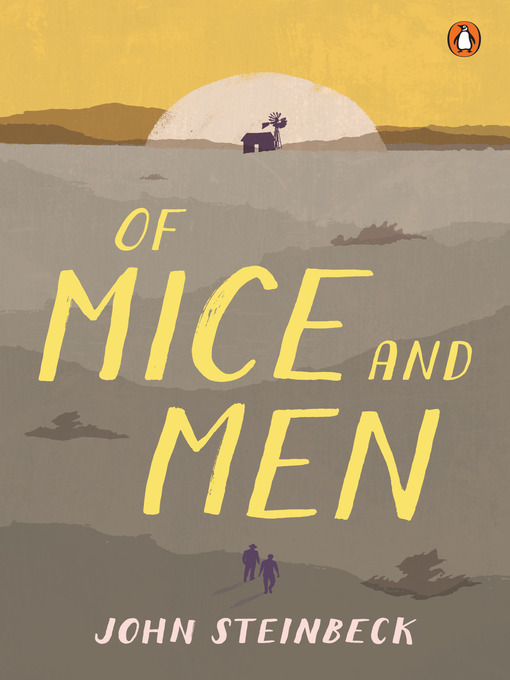
Preview Book
Of Mice and Men by John Steinbeck ⭐⭐⭐⭐
Steinbeck's tale of commitment, loneliness, hope, and loss remains one of America's most widely read and taught novels. An unlikely pair, George and Lennie, two migrant workers in California during the Great Depression, grasp for their American Dream. They hustle work when they can, living a hand-to-mouth existence. For George and Lennie have a plan: to own an acre of land and a shack they can call their own. When they land jobs on a ranch in the Salinas Valley, the fulfillment of their dream seems to be within their grasp. But even George cannot guard Lennie from the provocations, nor predict the consequences of Lennie's unswerving obedience to the things George taught him.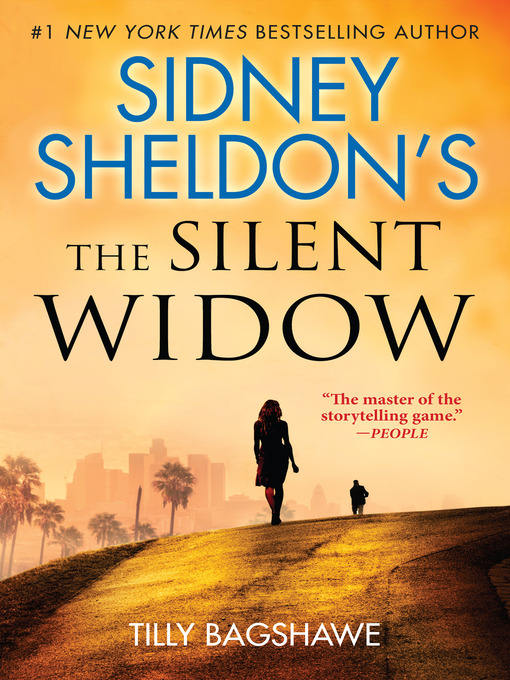
Preview Book
Silent Widow by Sidney Sheldon ⭐⭐⭐
Consulting psychologist Nikki Roberts takes on a host of bad guys—including vicious Russian mobsters, sadistic Mexican criminals, corrupt Los Angeles socialites, and greedy lawyers—in bestseller Bagshawe’s overwrought fifth contribution to the Sidney Sheldon franchise (after 2014’s Sidney Sheldon’s Chasing Tomorrow). When one of Nikki’s patients, a 28-year-old former model with an elderly billionaire boyfriend, is tortured and killed after she leaves Nikki’s office, the only clue to the perpetrator’s identity is a tiny bit of rotting human flesh found under the victim’s fingernails. Other murders follow, with the press dubbing them the Zombie Murders. LAPD detectives Goodman and Johnson, who take the concept of good cop/ bad cop to a new level, investigate. In particular, Johnson seems set on pinning the crimes on Nikki. Unfortunately, Nikki so consistently misjudges people and situations that it’s difficult to work up sufficient sympathy for her plight or make her professional role credible. Readers will struggle to follow who did what to whom and why. Only Sidney Sheldon buffs are likely to have fun.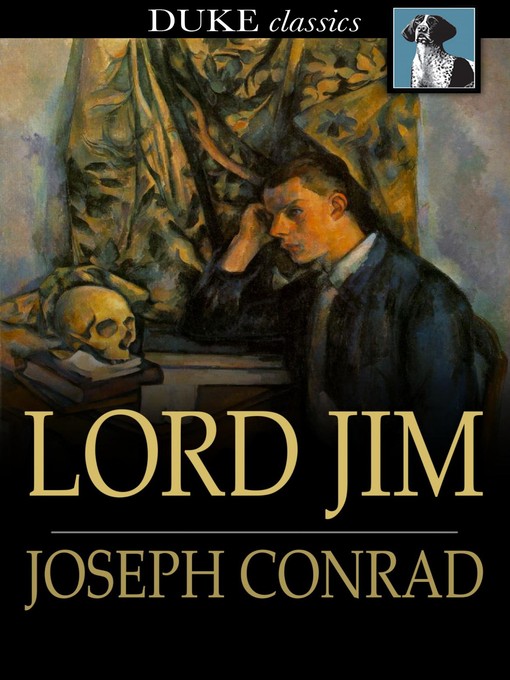
Preview Book
Lord Jim by Joseph Conrad ⭐⭐⭐
Conrad’s classic tale of one man’s desperate search for atonement is brought to life through an exceptional reading by Jerrom. The title character is a first mate on the small steamer Patna. A romantic, Jim holds dreams of being a hero. Those dreams are dashed when a disaster causes the crew to abandon the ship, with hundreds of passengers on board left to their own demise. Jim is subsequently brought to trial and stripped of his officer’s certificate, and the stigma of being a coward follows him, preventing him from finding any kind of peace. Jerrom delivers this story with the ease of an excellent after-dinner raconteur. His reading is relaxed, comfortable, and compelling. He expertly pulls the listener through Conrad’s dense intellectual ruminations to reveal a rich, multilayered novel about a person’s need, whatever the cost, for self-respect.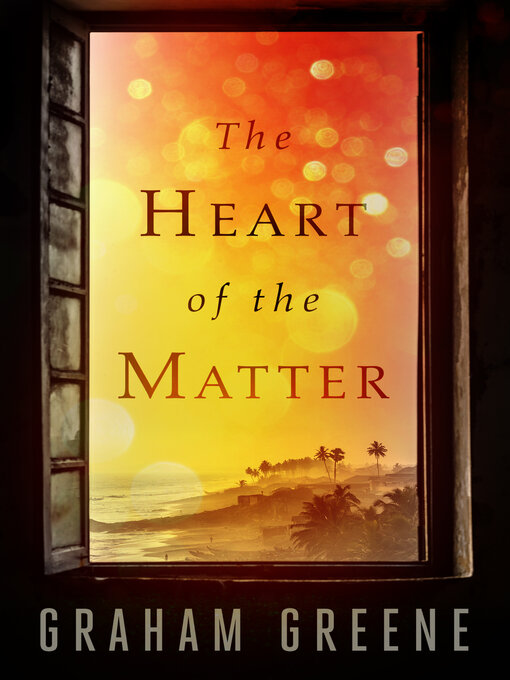
Preview Book
The Heart of the Matter by Graham Greene ⭐⭐⭐⭐
In a British colony in West Africa, Henry Scobie is a pious and righteous man of modest means enlisted with securing borders. But when he's passed over for a promotion as commissioner of police, the humiliation hits hardest for his wife, Louise. Already oppressed by the appalling climate, frustrated in a loveless marriage, and belittled by the wives of more privileged officers, Louise wants out.
Feeling responsible for her unhappiness, Henry decides against his better judgment to accept a loan from a black marketeer to secure Louise's passage. It's just a single indiscretion, yet for Henry it precipitates a rapid fall from grace as one moral compromise after another leads him into a web of blackmail, adultery, and murder. And for a devout man like Henry, there may be nothing left but damnation.
Drawn from Graham Greene's own experiences as a British intelligence officer in Sierra Leone, The Heart of the Matter is "a powerful, deep-striking novel . . . of a spirit lost in the darkness of the flesh"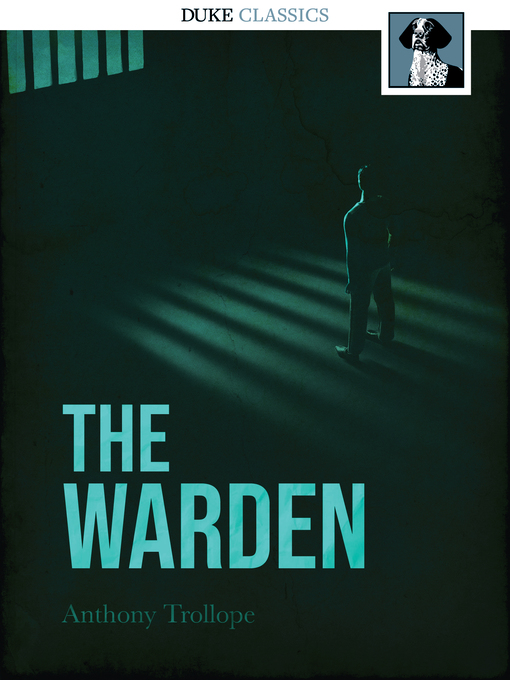
Preview Book
The Warden by Anthony Trollope
⭐⭐⭐⭐
The first of Anthony Trollope's works to receive widespread popular and critical acclaim, The Warden follows the career of Septimus Harding, the warden of an almshouse—an early form of subsidized housing for the poor—who is forced to adapt to looming social changes when a zealous young reformer comes on the scene. Confusion, crossed wires, and much hilarity ensue. A must-read for fans of witty social satire.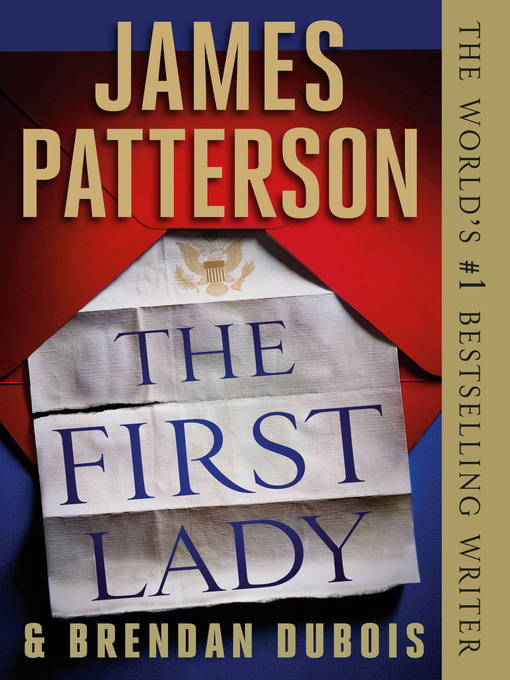
No Book Preview
The First Lady by James Patterson ⭐⭐⭐⭐
It's four weeks until the election for the new President. Current President Tucker is enjoying himself at a hotel in Atlanta with his girlfriend, while his wife and first lady, Grace Tucker, is fulfilling the duties of her office. When the President leave the hotel with his mistress, all hell breaks loose. There are reporters everywhere, there to catch the scandal. It's all just too much for the First Lady to handle, so she retreats to one of her favorite places and then, she turns up missing. Sally Grissom is the Secret Service Agent in charge of the presidential detail and doesn't know how the First Lady going missing isn't something she is told. Until she is called into the President's office and is asked to look for her secretively. What is going on? Something isn't right. And Sally has her eye on the President's Chief of Staff and his strange request. But Sally doesn't work for him, she serves the Office of the President and she will find the First Lady, no matter what.
This is a book I really enjoyed. It captured my attention from the start and had some twists and turns, I didn't see coming. There was only one drawback from this audio version of the book, the narrator. She did a fine job of reading the story and the voices, but her pronunciation drove me crazy. If you're not from the Washington, DC area, you might not notice, but it is so obvious. Pronouncing Maryland like Merry-Land. Potomac like Pot A Mack, and Arapaho like Air a pay ho. I cringed every time.
Imagine in this day and time with smart phones everywhere if the First Lady went missing. It would be all over the news. Why doesn't the Chief of Staff want to share this with the world, to help find her? Why isn't the FBI involved? Something is going on in the White House and Sally doesn't know if the President is aware at all. Or is his mistress and the election much more important to him than finding his wife.
Sally is going to do all she can to do her job even when she is asked to stand down. Even when it seems like there is always an obstacle there to stop her. Will she find the First Lady before it's too late? You'll have to read the book to find out. 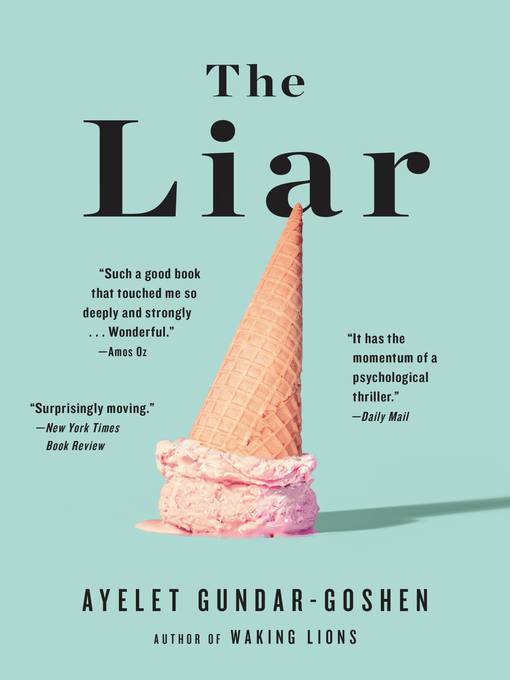
Preview Book
The Liar by Ayelet Gundar-Goshen ⭐⭐½
Lies take life in this excellent novel about a young Israeli girl who finds power in deceit. Nofar Shalev is 17, exceedingly unremarkable, and stuck in the shadow of her beautiful younger sister, Maya. She spends her summer evenings working at an ice cream parlor and hopes to be noticed by her high school crush. Instead, she encounters Avishai Milner, a winner of a televised singing contest who is now washed up and without future prospects. After Avishai lashes out verbally at Nofar, the teenage girl flees to the alley behind the shop, and Avishai follows and grabs her, causing Nofar to scream. When asked by police if she had been assaulted, Nofar says yes. This lie snowballs into an unstoppable force, garnering media attention and sweeping up friends and family members along with it as Nofar battles between her building guilt and her fear of rejection if she comes clean. Though some characters fall to the wayside and leave the reader curious as to their purpose in the story, Nofar’s internal journey makes up for it. This tender and satisfying coming-of-age story leads readers to question how a split second can change lives.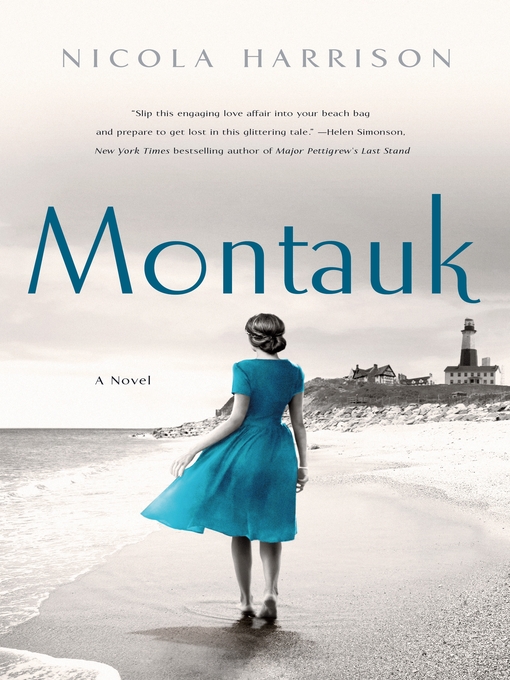
Preview Book
Montauk by Nicola Harrison ⭐⭐⭐
Harrison's historical fiction debut transports readers to a Long Island resort in 1938, where high-society ladies, occasionally joined by their husbands, spend summer days socializing and gossiping, and main character Beatrice Bordeaux longs for more. While Bea deals with infertility, the untimely death of her brother, and her husband's aloofness, she and the wealthy women around her swan through the tail end of the Great Depression in glittering dresses and fancy hats. The rich New Yorkers play tennis and sip cocktails at their posh resort, but Bea explores the nearby fishing village and befriends several year-round residents who barely make ends meet as laundresses and lobster fishermen. As she ventures further from the beau monde, she falls in love and works to find her place in the world around her. 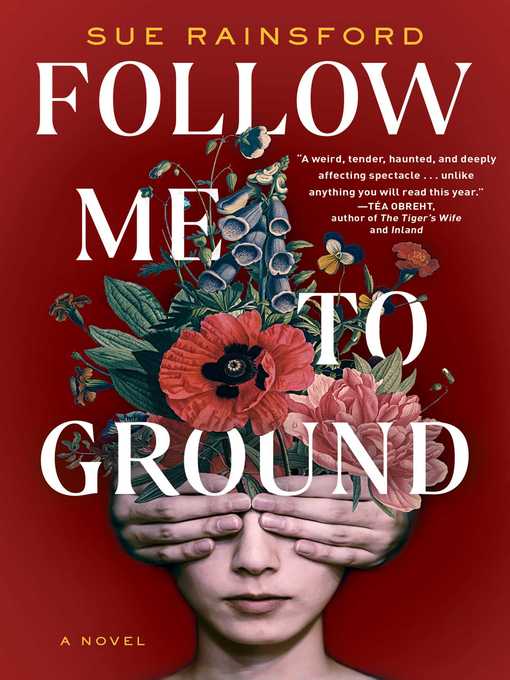
Preview Book
Follow Me to Ground by Sue Rainsford ⭐⭐⭐½
Brimming with dark folklore and underworld energy, Rainsford’s stellar debut features a memorable heroine chafing against her monstrous isolation. Ada and her father are vegetal creatures born of the Ground, a special patch of hungry earth that “gorge on bodies” and shapes “them to its own liking.” They are strange, slowly aging beings who live apart from the human population, or “Cures,” but are tolerated for their extraordinary healing capacity. Ada and her father can open up bodies and sing away sickness; the most serious cases are put into the Ground to heal, though the results are unpredictable. Rainsford excels in describing the grotesque beauty of this alternative medicine in which the humming healers feel their “way to the pitch of hurt.” The novel alternates between short sections in which various Cures describe their impressions of Ada, the lonely young creature with an “unseeded” heart, and Ada’s own narration of her rapturous affair with a young man named Samson. Ada tries to hide the romance from her disapproving father, who sees Samson’s longing for Ada, as well as his intense relationship with his pregnant sister, Olivia, as indicative of a diseased nature—too poisonous even for the Ground to cleanse. This is a subtle, unsettling novel in which desire is an ineradicable sickness that can be preferable to health.
Preview Book
Long Road to Mercy by David Baldacci ⭐⭐⭐⭐
Good news, Baldacci fans; here's a new series starring Atlee Pine, an FBI special agent who plies her trade in America's Western wilds as a criminal profiler specializing in serial killers. Now she's investigating the slashed-up carcass of a mule in the Grand Canyon, hoping to find the rider--and to solve a glut of missing persons cases in the canyon.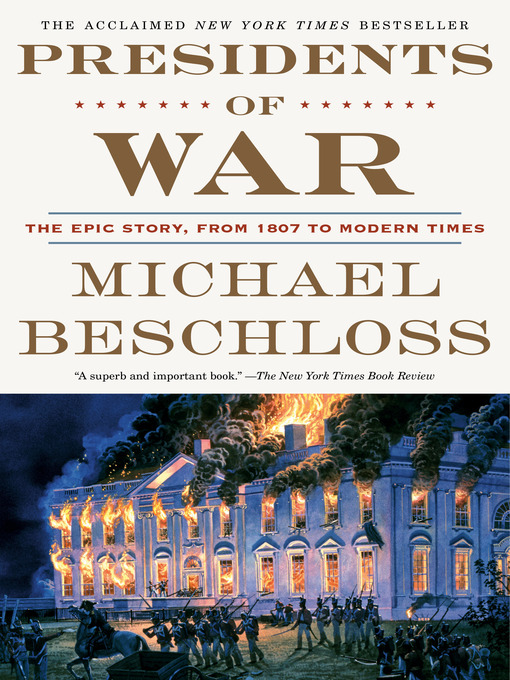
Preview Book
Presidents of War by Michael Beschloss ⭐⭐⭐⭐
Presidential historian Beschloss (Presidential Courage: Brave Leaders and How They Changed America, 1789–1989) offers a sweeping history of American presidents seeking and waging war from the War of 1812—the first major conflict conducted by the executive office under the Constitution—through the conclusion of the Vietnam War. He provides insight into the motivations of American leaders; presidents’ battles with other branches of government; their degree of respect for civil liberties; and the role of personality, emotion, and the general political climate as American commanders-in-chief executed the power of the country’s military forces. Beschloss reviews the historical record from an American-expansionist yet not necessarily prowar perspective; he writes, for example, that President Polk “deserves credit for adding almost a million square miles to the United States,” referring to the U.S. conquest of much of Mexico during the Mexican–American War, but that “a major, bloody war... should have been his last resort,” in keeping with the founders’ intentions. With ample detail and enticing storytelling, this readable work will be enjoyed by students and American history buffs. 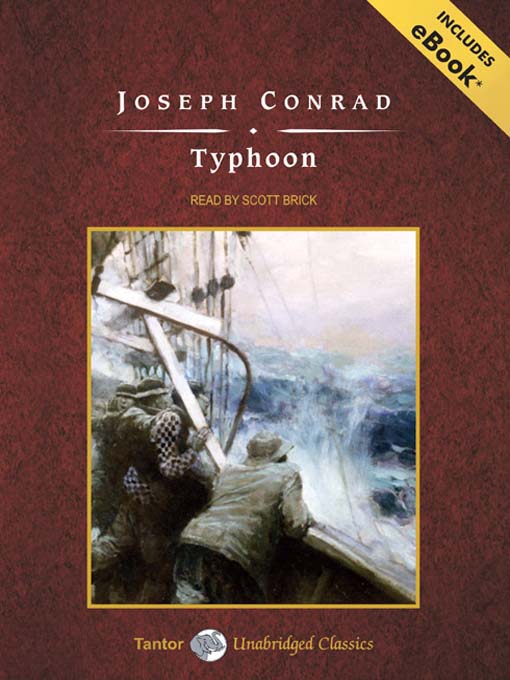
Preview Book
Typhoon by Joseph Conrad ⭐⭐⭐½
This classic sea yarn of 1903, in which a fairly stupid captain somehow pilots his steamer through a horrendous storm, is remarkable for its evocation of life aboard ship, its quirky eloquence, and its psychological insight. 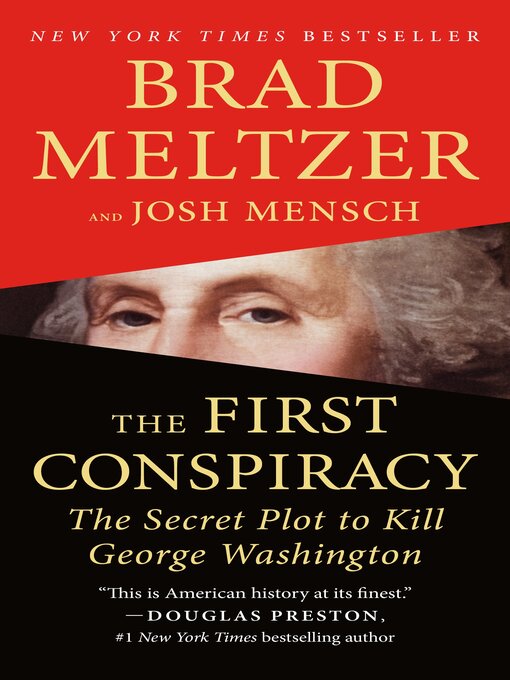
Preview Book
The First Conspiracy by Brad Meltzer ⭐⭐⭐⭐
An atmosphere of distrust and subterfuge pervaded the Colonies on the eve of war.In brisk, tense chapters, Meltzer (The Escape Artist, 2018, etc.) and documentary TV producer Mensch relate a tale of spies and treason, conspiracy and counterintelligence at the start of the colonists' war against Britain. Using present tense, the authors create a sense of immediacy and peril: Patriots are being hastily formed into a ragtag, rowdy army; the British, with its incomparable navy, are mounting a well-orchestrated campaign, sending hundreds of ships to assail Manhattan; and the clock, as clocks do in such thrillers, is ticking. Central to the convoluted plot is the fate of George Washington, portrayed by the authors as a paragon of leadership and perfection: "perfect poise, perfect manners, perfect horsemanship, perfect appearance." He faces a population of "divided loyalties and shifting allegiances...ripe for treachery, spying, and double-crossing." Farmers and townsfolk are lured into fighting for the king and conveying secret information. New York Gov. William Tryon and the city's mayor, David Mathews, are conspirators, Tryon masterminding treachery from aboard a British ship docked in New York's harbor. Shocked by rumors, Washington decides to assemble an elite band of soldiers enjoined to protect him. Their nickname was the Life Guards. In addition, he convenes "a dedicated team who can uncover the enemies' secret activities," learn their plans, and thwart them. The secret Committee of Intestine Enemies, the authors assert, will become, two centuries later, the CIA: "the domain of dedicated agencies with well-trained experts and sophisticated technologies." As rudimentary as it was, however, Washington's clandestine committee ferreted out important information: Among turncoats were members of Washington's Life Guards and, astonishingly, his housekeeper. The authors acknowledge that some elements of the plot remain mysterious: Washington's housekeeper, for example, left his employ suddenly, but no records point to her involvement. Nevertheless, the conspiracy is foiled, and in July 1776, Washington's public reading of the Declaration of Independence finally energizes his soldiers.A lively political thriller.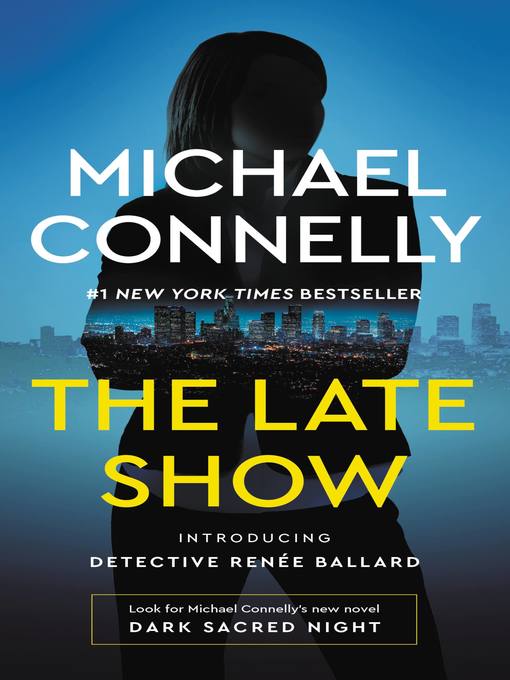
Preview Book
The Late Show by Michael Connelly ⭐⭐⭐⭐
The title of this excellent series launch from bestseller Connelly (The Wrong Side of Goodbye and 20 other Harry Bosch novels) refers to the midnight shift at LAPD’s Hollywood Division. Det. Renée Ballard has landed there in retribution for filing sexual harassment charges against her former boss, Lt. Robert Olivas. Two major crimes soon concern Ballard: the vicious beating of a woman, who says she was assaulted in the “upside-down house” but passes out before she can explain, and a nightclub shooting that kills five people. Though most “late show” cops hand off cases to their day shift counterparts, Ballard personally investigates the assault (with official approval) and the nightclub shooting (without). Olivas, who’s leading the latter investigation, wants her nowhere near the case. What follows is classic Connelly: a master class of LAPD internal politics and culture, good old-fashioned detective work, and state-of-the-art forensic science—plus a protagonist who’s smart, relentless, and reflective. Talking about the perpetrator of the assault, Ballard says, “This is big evil out there.” That’s Connelly’s great theme, and, once again, he delivers.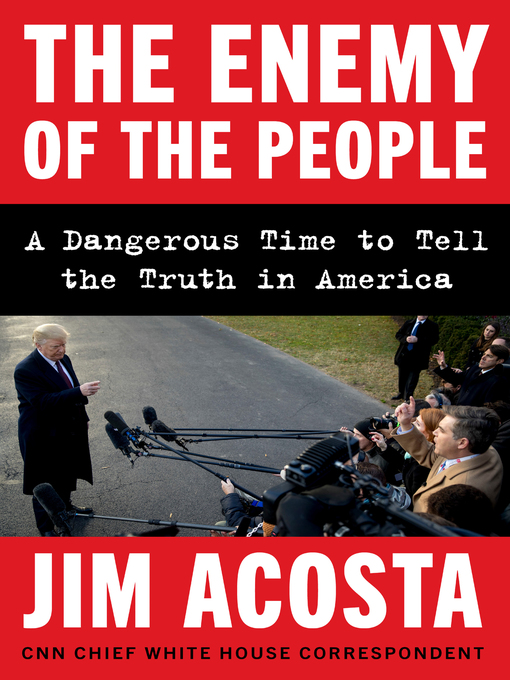
Preview Book
The Enemy of the People by Jim Acosta ⭐⭐⭐
CNN’s chief White House correspondent takes on an anti-media president in this passionate memoir. Acosta recounts the challenges of reporting after President Trump labeled CNN and him personally as purveyors of “fake news” and “enemies of the people,” which precipitated death threats, confrontations with foul-mouthed Trump supporters at political rallies, and pipe bombs delivered to CNN headquarters. The narrative recounts the big stories from the Trump campaign and administration—probing the investigation into Russian collusion, the travel ban on people from majority-Muslim countries, immigration policy, and the soap opera of White House infighting—with the focus on Acosta and his tenacious efforts at briefings and press conferences to get his confrontational questions answered, to the point of getting his press pass temporarily revoked in 2018. (“Where does it say in the Bible that it’s moral to take children away from their mothers?” he asked White House press secretary Sarah Sanders about Trump’s border policies after then–attorney general Jeff Sessions used Bible passages to support the separation of migrant families at the U.S. border.) Framing modern-day political journalism as a truth-vs.-Trump showdown, Acosta is forthrightly opinionated, writing that “neutrality for the sake of neutrality doesn’t really serve us in the Age of Trump.” Fans of the author’s hard-hitting reporting will love it, but critics who have accused him of grandstanding and bias may not have their suspicions allayed. 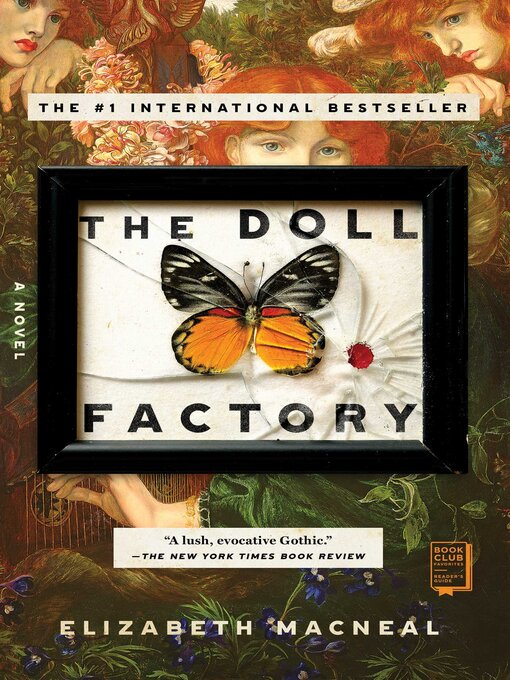
Preview Book
The Doll Factory by Elizabeth Macneal ⭐⭐⭐½
MacNeal’s lively debut finds a fresh way to dramatize the Pre-Raphaelite Brotherhood of revolutionary, mid-19th-century British painters. In addition to William Holman Hunt, John Everett Millais, and Dante Gabriel Rossetti, MacNeal creates a fictitious PRB member, Louis Frost, who meets Iris Whittle, the heroine, a painter of miniature faces at Mrs. Salter’s Doll Emporium. Dismissed for being a woman, Iris longs to be seen as a real painter, and when she meets Frost, he proposes a deal: if she poses for him, he will give her art lessons. At the same time, Iris also comes to the attention of Silas Reed, a taxidermist who sells stuffed animals to artists as props for their paintings. Unbeknownst to Iris, he stalks her with the intention of possessing her like an object. Louis turns out to be a generous mentor and Iris ends up falling for him. Only Albie, a light-fingered street urchin befriended by Iris, is aware of how much danger she is in from the obsessed Silas. Told against the backdrop of the Great Exposition at the Crystal Palace and its industrial wonders, MacNeal’s consistently enjoyable novel reads like an art history lecture co-delivered by Wilkie Collins and Charles Dickens and read from a revisionist feminist script. This debut is a blast; it enticingly vacillates between a realistic depiction of the Pre-Raphaelite Brotherhood’s London and lurid Victorian drama.
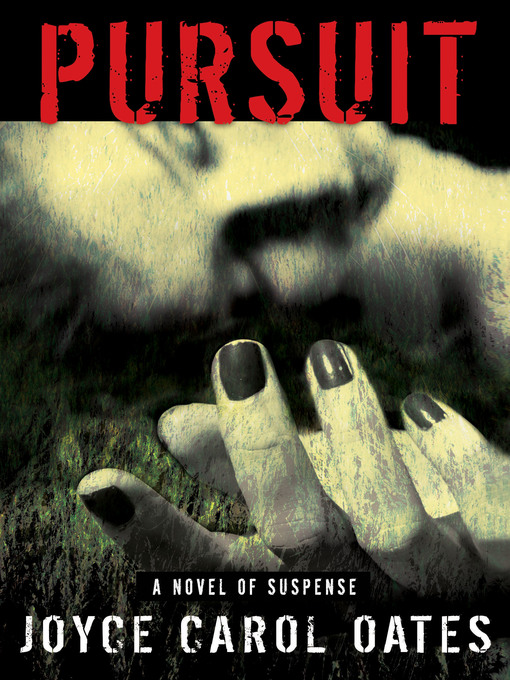
Preview Book
Pursuit by Joyce Carol Oates ⭐⭐½
A young woman is haunted by a past she doesn't understand in this brief but powerful story of domestic violence. In her latest novel, Oates (My Life as a Rat, 2019, etc.) is in full domestic gothic mode. Like any bride, Abby Hayman is hopeful that she's stepping into a new and happy life. But she has more reason than most to long for transformation. Her parents disappeared when she was 5 years old. After a haphazard upbringing, at 20 she's pulling her life together. She's even put behind her the terrifying nightmares of skeletons hidden in tall grass that tormented her childhood--or so she thinks. Those visions return with a vengeance just before she marries Willem Zengler, a devoutly Christian pre-med student. The day after their wedding, she gets off a bus, then steps in front of it. Was it an accident or a suicide attempt? She's so seriously injured she can't answer the question, spending nine days in a coma and still feeling confused when she awakes. When Willem says, "We need to get to that moment, Abby. When you can tell me what you see," he might be talking about the accident--or about her screaming nightmares. The first part of the book focuses on Abby and her shadowy memories. It intensifies as Oates switches to the points of view of Abby's parents. Her mother married young and raised her baby alone while her husband was serving in the military in Iraq. When he returns, his wife hardly knows him: In the Army "he'd cultivated a cruel use of seemingly ordinary speech, given a mock-Southern inflection. Like a butter knife honed razor-sharp." That cruelty will quickly escalate into PTSD-fueled madness. The book is so submerged in the nightmares that intrude on Abby's life that it's a little shocking to be reminded, by such prosaic items as iPhones and MRIs, that the story takes place in the present, in the real world. A compelling domestic horror story reaches into a young woman's nightmares of her childhood in search of what's real.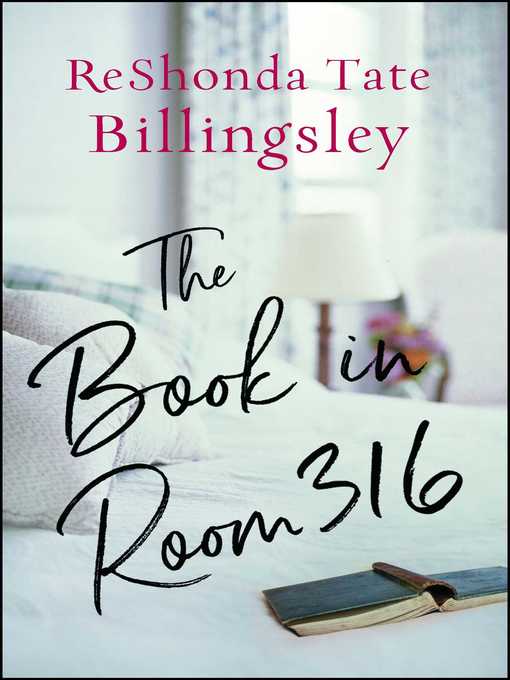
Preview Book
The Book in Room 316 by ReShonda Tate Billingsley ⭐⭐⭐
Savannah Graham thought she had the perfect marriage...until grief drove her husband into the arms of his best friend's wife. Now, she believes revenge is the only way her heart can heal from the betrayal.For fifty-two years, Ollie Moss lived side by side with the love of his life, his wife Elizabeth. But now that she's gone, so is his desire to live, despite the love from his children, and his beloved grandson Samuel. Can anything save Ollie's life?
Anna Rodriguez just wants to work and provide for her three children by any means necessary. But her decision to break the law in order to get a job is threatening life as she knows it.
Trey Brown is known in his neighborhood as a hustler, so much so that the gangs want him to join their ranks...but there's a reason the nineteen-year-old does what he does—he's the only one left who can save his little brother.
Different circumstances lead each of them to The Markham Hotel, where they hope to find solace, comfort, and answers. Told from multiple perspectives, The Book in Room 316 will renew your strength and faith that there is always a way forward.
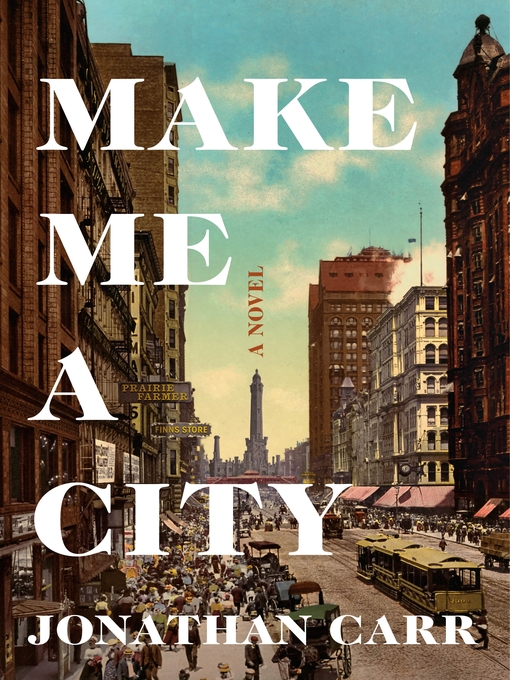
Preview Book
Make Me a City by Jonathan Carr ⭐⭐½
What is the history of a city if not an amalgamation of myths, stories, and archival documents? Carr's debut novel is an impressive literary experiment blending epistolary narratives, fragmented journal entries, and historical book chapters into a sprawling chronicle about the founding and development of Chicago in the 19th century. The story begins with Jean Baptiste Point du Sable (of African descent) establishing a settlement in 1785 and then proceeds chronologically, focusing on the key figures in Chicago's accelerated growth. Because chapters rotate between literary forms and time periods, readers may find the narrative structure challenging to follow. However, Carr effectively weaves the stories of his sprawling cast of minor and major figures to underscore the city's myriad threads of development: economic, political, and social. With minimal dialog, he melds the historical construction of the railroad and canals with a population struggling to define its political and social stratification during the Civil War. VERDICT An ambitious literary debut that occupies a space between alternative history and experimental literature.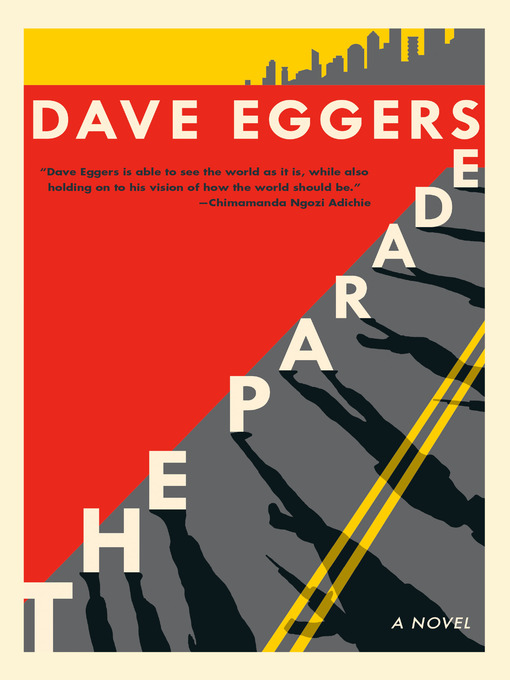
Preview Book
The Parade by Dave Eggers ⭐⭐⭐½
A plan to lay down a roadway runs into a few barriers in this parable of friendship and politics.The pared-down style and global themes that Eggers has embraced since A Hologram for the King (2012)--he may be the only living American writer for whom the term "Hemingway-esque" meaningfully applies--have restricted him to writing two kinds of novels. Eggers the Compassionate Realist focuses on men and women forced to adapt to economic shifting sands (Hologram; Heroes of the Frontier, 2016); Eggers the Dour Lecturer focuses on social justice concerns in ways that smother his characters (The Circle, 2013). This short novel showcases the virtues of the former, though there's a whiff of pedagogy in the prose. Two men, Four and Nine, have been assigned to pave a road in an unnamed country recovering from civil war. Four is an experienced, by-the-book type, concerned only with meeting his deadline before a celebratory parade. Nine is a reckless newbie, neglecting cautions against eating local food, swimming in a local river, and carousing. Eggers doesn't play this for comedy, Odd Couple-style, not even a little; we're mostly in Four's increasingly infuriated mind, and we know that the country is unstable enough that Nine's antics court serious consequences. But when it does, Eggers ably weaves in a host of ethical questions over one man's responsibility to the other, what makes help transactional versus simply kind, and whether the road itself will truly "bring safety and progress to the provinces at seventy miles an hour." The closing paragraphs of this short novel take an abrupt turn into Dour Lecturer territory, but the shift is earned; Eggers is determined to counter the notion that social and economic improvement work hand in hand, and Four and Nine ultimately resonate as characters as much as archetypes.An unassuming but deceptively complex morality play, as Eggers distills his ongoing concerns into ever tighter prose.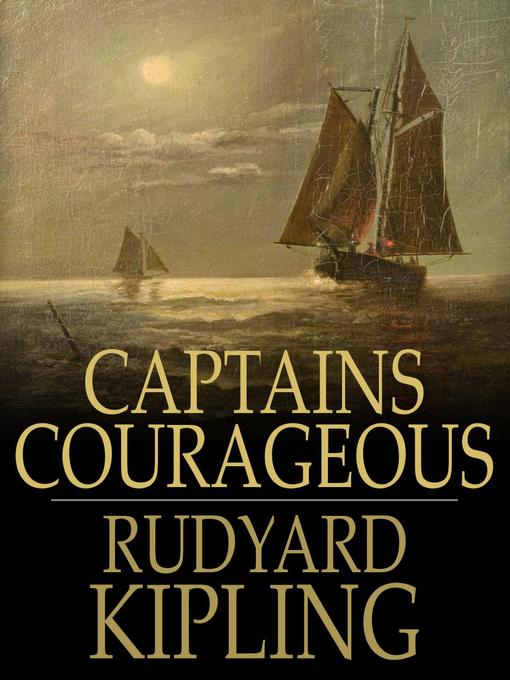
Preview Book
Captains Courageous by Rudyard Kipling ⭐⭐⭐⭐
Refreshing; a transport back to a time and place when hard work is required, children mature quickly, reversals of fortune are dramatic, and where the least of us has an important role to play in the overall scheme of things. Life aboard a commercial fishing vessel in the nineteenth century was brutal: requiring hard, hard work, sleeplessness, constant physical danger, unforgiving conditions, and where the workplace is populated by sturdy, ruthless people. Big business interests, similarly. A story of survival at the school of hard knocks.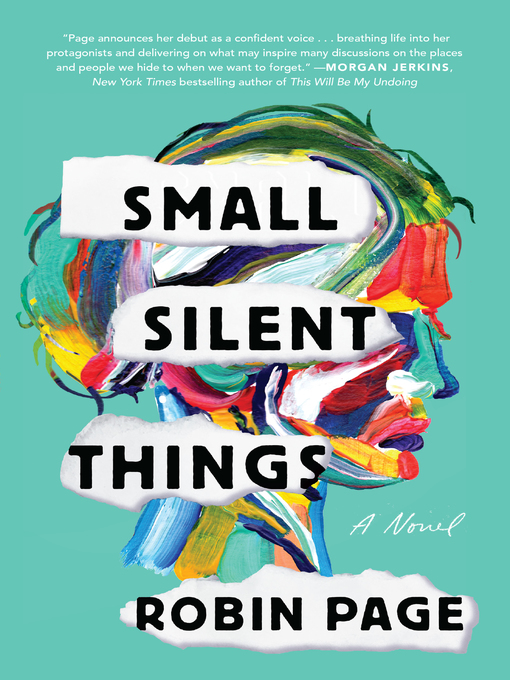
Preview Book
Small Silent Things by Robin Page ⭐⭐½
Page’s moving debut explores how tragedy forces surprising changes for a woman who feels out of place in her privileged life. When Jocelyn Morrow’s mother dies, a flood of pent-up emotions and memories of her physically and emotionally abusive childhood are released. Slowly, the dark emotions bleed into her daily life, as she feels increasingly detached from her six-year-old daughter, Lucy. Meanwhile, Jocelyn becomes attracted to her tennis instructor, Kate, and she notices feelings of sexual energy she hasn’t experienced in years. Concerned by Jocelyn’s melancholy, her husband asks her to start therapy. As she dredges up painful memories, she questions herself as a mother and frets over Lucy’s future; Lucy, like Jocelyn, is biracial, and Jocelyn fears Lucy will face many of the same challenges she did. Jocelyn also begins speaking with neighbor Simon, an architect and refugee of the Rwandan genocide who is tormented by the loss of his family. When Simon receives a letter from someone claiming to be his daughter, he must decide how to respond. As Jocelyn’s marriage slowly deteriorates, she forms a bond with Simon that helps her regain a sense of hope. Though several threads of the story feel incomplete, the climactic final scene makes for a dramatic finish. The plot is frustratingly circuitous, but Jocelyn’s electric voice and heartrending battle with depression make this a profound and pleasing character study.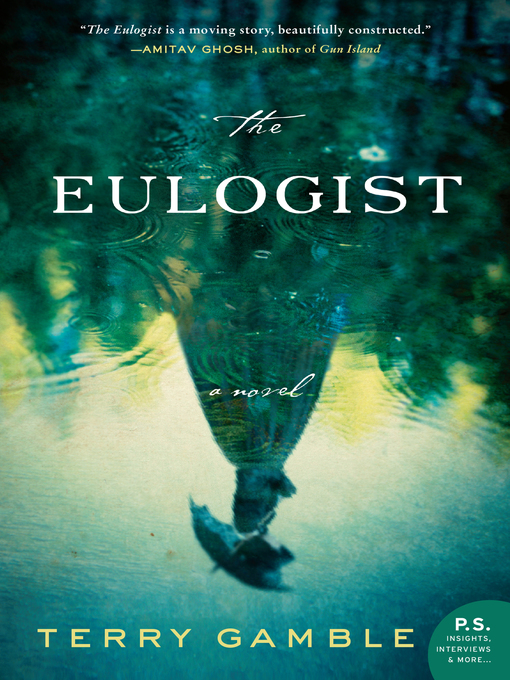
Preview Book
The Eulogist by Terry Gamble Loan ⭐⭐⭐
Gamble’s third novel (after Good Family) concerns the lives of the Givens siblings, Irish immigrants who start over in 1819 Cincinnati. Olivia, the book’s strong-willed narrator, takes a shine to like-minded doctor Silas Orpheus, who admires her distaste for religion and allows her to surreptitiously dissect corpses with him. Olivia’s older brother, James, a successful candle maker who married rich, is initially reluctant to give his blessing for their marriage, as Silas’s disreputable brother, Eugene, sends a slave, Tilly, in lieu of a proper dowry. Olivia and Tilly become friendly, and Tilly helps her set up her own business doing hair. Olivia’s ambivalence toward slavery dissipates when Silas dies and she meets Eugene’s family on their Kentucky property. When Olivia enlists the help of her younger brother, Erasmus, now a Methodist preacher living on a river encampment, to help lead one of the slaves to freedom, Eugene retaliates by demanding that Tilly be returned. Since Ohio is a free state, an ill-fated trial ensues. Olivia and her family are thereafter pulled into the movement to smuggle slaves to freedom. Gamble adeptly chronicles Olivia’s transformation from a free-thinking but unaffected young woman into a determined widow who wants to indirectly avenge Tilly. This is a standout depiction of family dynamics, and will appeal to fans of fiction set in pre–Civil War America.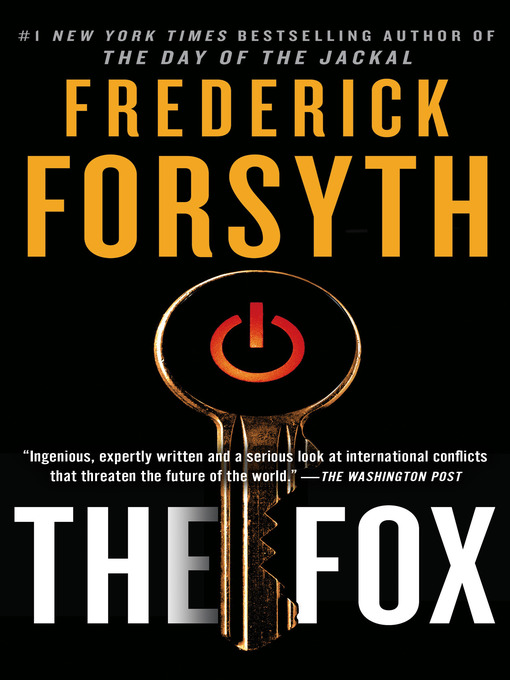
Preview Book
The Fox by Frederick Forsyth ⭐⭐⭐⭐
A lifetime of experience from both bestseller Forsyth (The Day of the Jackal) and his lead character, Sir Adrian Weston, informs every page of this terrifically entertaining spy thriller in the classic tradition. Sir Adrian may be retired from the British Secret Intelligence Service, of which he was once deputy chief, but he remains Prime Minister Marjory Graham’s personal adviser on matters concerning national security. When the U.S. National Security Agency is hacked, and it turns out that the perpetrator is Luke Jennings, an 18-year-old computer genius in the U.K., Adrian not only offers advice but comes up with a plan. After convincing the American president, a thinly disguised stand-in for Donald Trump, that there’s a major espionage opportunity here, Adrian initiates Operation Troy, whose object is “the greatest deception in the history of the cyberworld.” Adrian ensconces Luke, now known as the Fox, with his computer and his mother in a series of British safe houses while the spymaster concocts devilishly clever online attacks on the Russians, Iranians, and North Koreans. The risks for Adrian and Luke increase with each operation. That these attacks seem to explain some real-life events make the book even more fascinating. Along the way, Forsyth details the nuts and bolts of modern espionage. Genre fans will be enthralled. 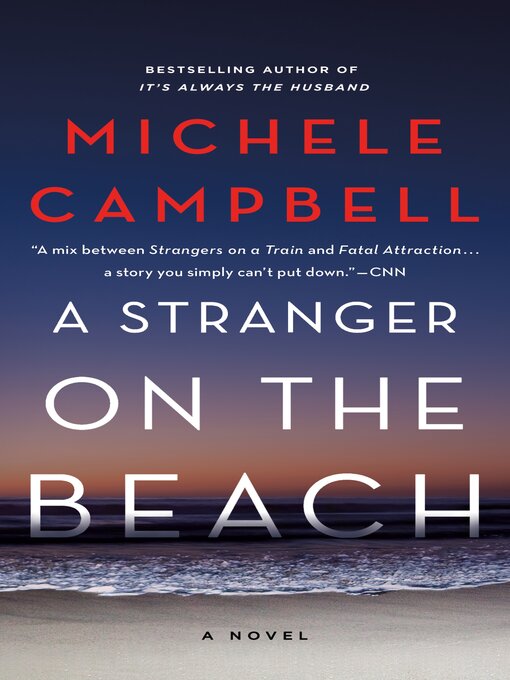
Preview Book
A Stranger on the Beach by Michele Campbell ⭐⭐⭐½
Well-to-do New Yorker Caroline Stark, the narrator of this engrossing, if flawed, thriller from Campbell (She Was the Quiet One), loses everything starting the night her husband, Jason, arrives late for the housewarming party at their new beach house followed by a Russian woman he claims is a business associate. Caroline knows the woman is his mistress, and their marriage falls apart. Soon the bank accounts are empty, the credit cards are canceled, and Caroline’s college-age daughter is siding with Jason. Drunk and despondent, Caroline has an impetuous fling with a bartender, Aiden Callahan, who has a history of violence. Aiden becomes obsessed with Caroline and her house, which is built on land that was once owned by his family. Meanwhile, Jason disappears and suspicion falls on Caroline that she murdered him. The fast pace and strong characters, especially secondary ones such as Aiden, will help the reader overlook the plot holes (some Russian mobsters show unconvincing restraint).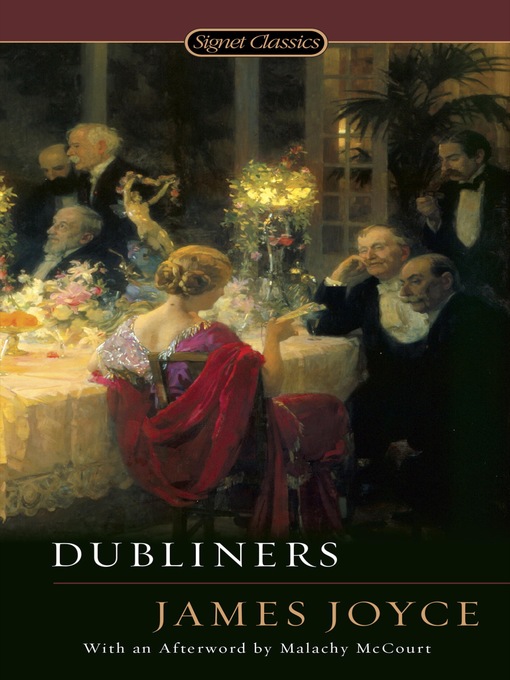
Preview Book
Dubliners by James Joyce ⭐⭐⭐⭐
James Joyce paints vivid portraits of the poorer classes of Dublin in a collection of stories whose larger purpose, he said, was to depict a "moral history of Ireland." From the first story, in which a young boy encounters death, to the haunting final story involving the middle-aged Gabriel, the book gives an unflinchingly realistic portrayal of the author's own "dear, dirty Dublin" in the early twentieth century.Joyce's first published work in prose, this brilliant study is by turns bawdy, witty, and tragic. Said Joyce of the work: "I am trying...to give people some kind of intellectual pleasure or spiritual enjoyment by converting the bread of everyday life into something that has a permanent artistic life of its own...Do you see that man who has just skipped out of the way of the tram? Consider, if he had been run over, how significant every act of his would at once become." .
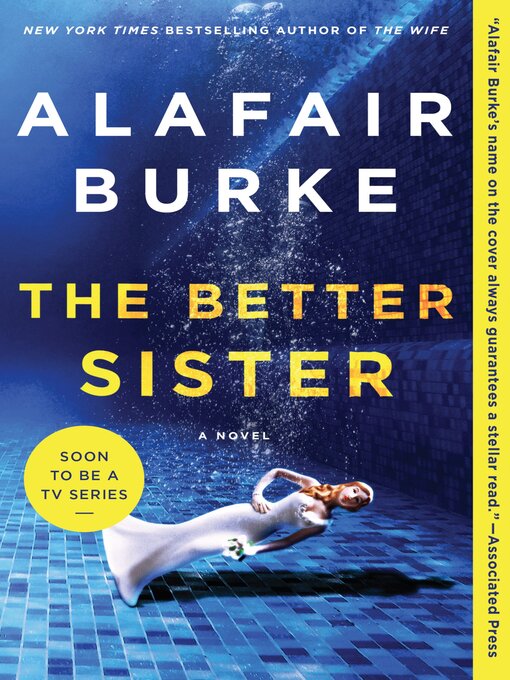
Preview Book
The Better Sister by Alafair Burke ⭐⭐⭐½
Chloe Taylor is married to her estranged sister Nicky's handsome ex-husband Adam Macintosh, and raising her sister's son, Ethan, as her own. She's also the editor-in-chief at a women's magazine and has recently gained significant recognition--both good and bad--for a series highlighting everyday women and the #MeToo movement. By all appearances, she's super successful, with a loving spouse, a two-book deal, and a well-paying job. Then Adam is murdered, and a staged crime scene and an inconsistent account of Ethan's whereabouts leads to his arrest. Not sure whom she can trust, Chloe reluctantly lets Nicky back into her life. Together, they deal with the consequences of having their secrets exposed during a high-profile trial while also confronting the truth about the man they both once loved. VERDICT Burke (The Wife; The Ex) writes a straightforward and uncomplicated character-driven mystery that also delves into the topics of sisterhood and abuse. Vague references to current events might eventually date the story, but mystery lovers will find much to enjoy in this fast-moving whodunit.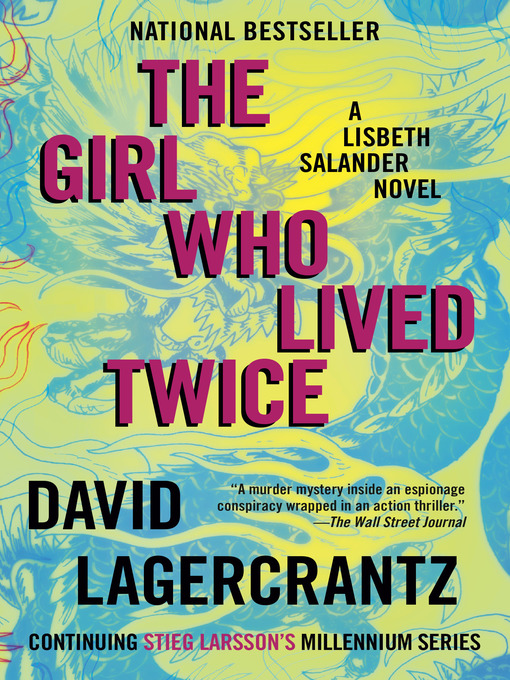
No Book Preview
The Girl Who Lived Twice by David Lagercrantz ⭐⭐⭐½
Swedish journalist Mikael Blomkvist takes center stage in Lagercrantz’s exciting third addition to Stieg Larsson’s Millennium series (after 2017’s The Girl Who Takes an Eye for an Eye). Lisbeth Salandar, the girl with the famous dragon tattoo, has been off traveling around Europe and not responding to Blomkvist’s emails, which has left him working halfheartedly on a story about Russian computer trolls. Then he receives a phone call from a medical examiner who tells him a dwarf has been found dead on a Stockholm street with Blomkvist’s phone number in his pocket. This is far more interesting than Russian trolls, and after Blomkvist enlists Lisbeth’s help, she figures out that the man was not a dwarf, but a Sherpa, which leads them to a deadly Everest expedition involving the Swedish defense minister. When Blomkvist gets into trouble, Lisbeth comes to his rescue. Lisbeth’s plan to kill her evil twin sister, Camilla, provides a diverting subplot. A tantalizing ending hints at important changes for Blomkvist and Lisbeth ahead. Series fans will be pleased with the thoughtful way Lagercrantz develops the character of their beloved action heroine in this worthy outing. 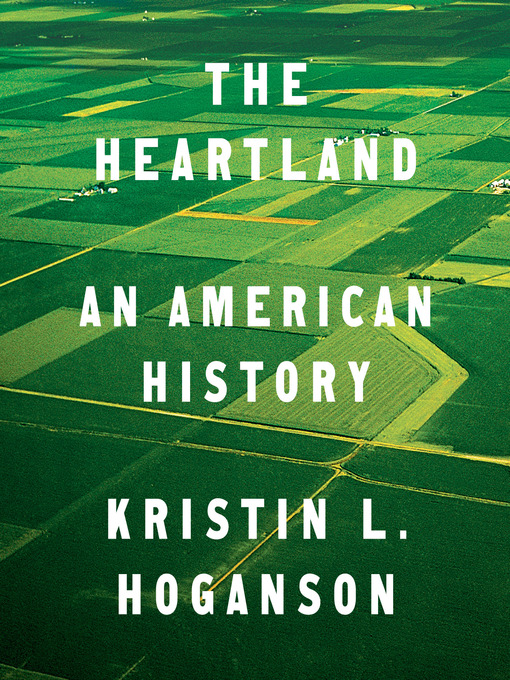
Preview Book
The Heartland by Kristin L. Hoganson ⭐⭐⭐½
In this sophisticated, complex work, history professor Hoganson (Consumers’ Imperium) uses the history of Champaign County, Ill., to explore and question the American myth of its “heartland” as a safe, insulated, provincial place—“the quintessential home referenced by ‘homeland security.’” The first chapter shows how white settlers in 1700s and 1800s emphasized local settlement to justify taking land from the mobile Kickapoo population of Central Illinois. Hoganson uses the raising of cattle and hogs in Champaign to trace shifting borders on the North American continent in the 19th and early 20th centuries. Then she dismantles the myth of the isolationist heartland with an analysis of Champaign’s involvement with organizations such as the Inter-Parliamentary Union and the International Institute of Agriculture. And she flips the “flyover country” cliché, looking at how Champaign citizens are connected to the rest of the world by telegraph wires, the weather, migratory birds, and military planes. The final chapter follows the Kickapoo people’s experiences into the 20th century, demonstrating that, contrary to myth, nothing about the heartland’s geography makes it a safe place. Deeply researched with a well-proven argument, Hoganson’s book will attract many scholars as well as general readers who like innovative, challenging history.
Preview Book
Where the Crawdads Sing by Delia Owens ⭐⭐⭐⭐½
A wild child's isolated, dirt-poor upbringing in a Southern coastal wilderness fails to shield her from heartbreak or an accusation of murder."The Marsh Girl," "swamp trash"--Catherine "Kya" Clark is a figure of mystery and prejudice in the remote North Carolina coastal community of Barkley Cove in the 1950s and '60s. Abandoned by a mother no longer able to endure her drunken husband's beatings and then by her four siblings, Kya grows up in the careless, sometimes-savage company of her father, who eventually disappears, too. Alone, virtually or actually, from age 6, Kya learns both to be self-sufficient and to find solace and company in her fertile natural surroundings. Owens (Secrets of the Savanna, 2006, etc.), the accomplished co-author of several nonfiction books on wildlife, is at her best reflecting Kya's fascination with the birds, insects, dappled light, and shifting tides of the marshes. The girl's collections of shells and feathers, her communion with the gulls, her exploration of the wetlands are evoked in lyrical phrasing which only occasionally tips into excess. But as the child turns teenager and is befriended by local boy Tate Walker, who teaches her to read, the novel settles into a less magical, more predictable pattern. Interspersed with Kya's coming-of-age is the 1969 murder investigation arising from the discovery of a man's body in the marsh. The victim is Chase Andrews, "star quarterback and town hot shot," who was once Kya's lover. In the eyes of a pair of semicomic local police officers, Kya will eventually become the chief suspect and must stand trial. By now the novel's weaknesses have become apparent: the monochromatic characterization (good boy Tate, bad boy Chase) and implausibilities (Kya evolves into a polymath--a published writer, artist, and poet), yet the closing twist is perhaps its most memorable oddity.Despite some distractions, there's an irresistible charm to Owens' first foray into nature-infused romantic fiction.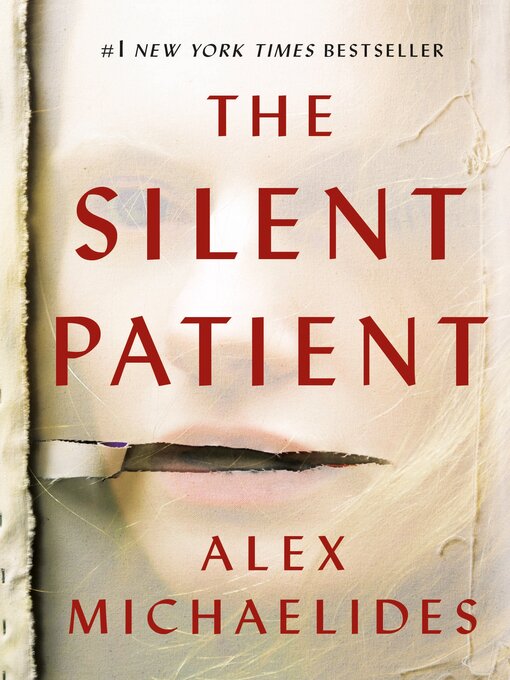
Preview Book
The Silent Patient by Alex Michaelides ⭐⭐⭐⭐
A woman accused of shooting her husband six times in the face refuses to speak."Alicia Berenson was thirty-three years old when she killed her husband. They had been married for seven years. They were both artists--Alicia was a painter, and Gabriel was a well-known fashion photographer." Michaelides' debut is narrated in the voice of psychotherapist Theo Faber, who applies for a job at the institution where Alicia is incarcerated because he's fascinated with her case and believes he will be able to get her to talk. The narration of the increasingly unrealistic events that follow is interwoven with excerpts from Alicia's diary. Ah, yes, the old interwoven diary trick. When you read Alicia's diary you'll conclude the woman could well have been a novelist instead of a painter because it contains page after page of detailed dialogue, scenes, and conversations quite unlike those in any journal you've ever seen. " 'What's the matter?' 'I can't talk about it on the phone, I need to see you.' 'It's just--I'm not sure I can make it up to Cambridge at the minute.' 'I'll come to you. This afternoon. Okay?' Something in Paul's voice made me agree without thinking about it. He sounded desperate. 'Okay. Are you sure you can't tell me about it now?' 'I'll see you later.' Paul hung up." Wouldn't all this appear in a diary as "Paul wouldn't tell me what was wrong"? An even more improbable entry is the one that pins the tail on the killer. While much of the book is clumsy, contrived, and silly, it is while reading passages of the diary that one may actually find oneself laughing out loud.Amateurish, with a twist savvy readers will see coming from a mile away.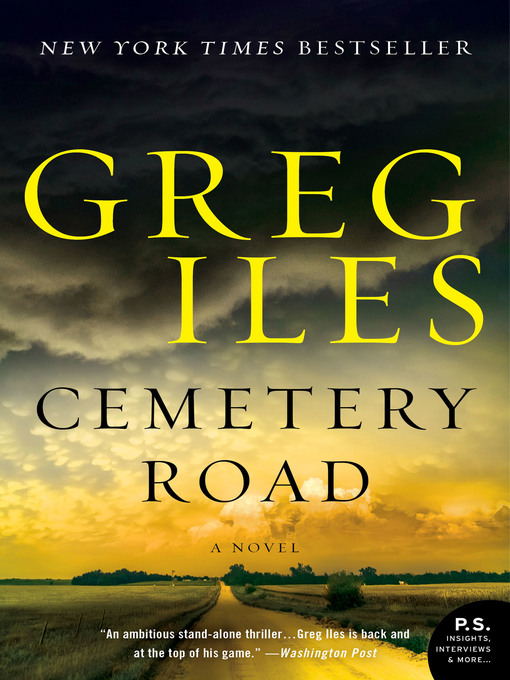
Preview Book
Cemetery Road by Greg Iles ⭐⭐⭐⭐
Bad things are astir on the banks of the Big Muddy, hallmark territory for homeboy Iles (Mississippi Blood, 2017, etc.)."Buck's passing seems a natural place to begin this story, because that's the way these things generally start." Yep. This particular bit of mischief starts when a Scoutmaster, surrogate father, and all-around good guy gets his head bashed in and his body dumped into the Mississippi. And why? That's the tangled tale that Iles weaves in this overlong but engaging yarn. Thanks to the back-room dealing of a bunch called the Poker Club, the little river-bluff city of Bienville has brought a Chinese paper pulp mill to town and, with it, a new interstate connection and a billion dollars--which, a perp growls, is a billion dollars "in Mississippi. That's like ten billion in the real world." But stalwart journalist Marshall McEwan--that's McEwan, not McLuhan--is on the case, back in town after attaining fame in the big city, to which he'd escaped from the shadow of his journalist hero father, now a moribund alcoholic but with plenty of fire left. Marshall's old pals and neighbors have been up to no good; the most powerful of them are in the club, including an old girlfriend named Jet, who is quick to unveil her tucked-away parts to Marshall and whose love affairs in the small town are the makings of a positively Faulknerian epic. Iles' story is more workaday than all that and often by the numbers: The bad guys are really bad, the molls inviting ("she steals her kiss, a quick, urgent probing of the tongue that makes clear she wants more"), the politicians spectacularly corrupt, the cluelessly cuckolded--well, clueless and cuckolded, though not without resources for revenge. As Marshall teases out the story of murder most foul, other bodies litter the stage--fortunately not his, which, the club members make it plain, is very much an option. In the end, everyone gets just deserts, though with a few postmodernly ironic twists.Formulaic but fun.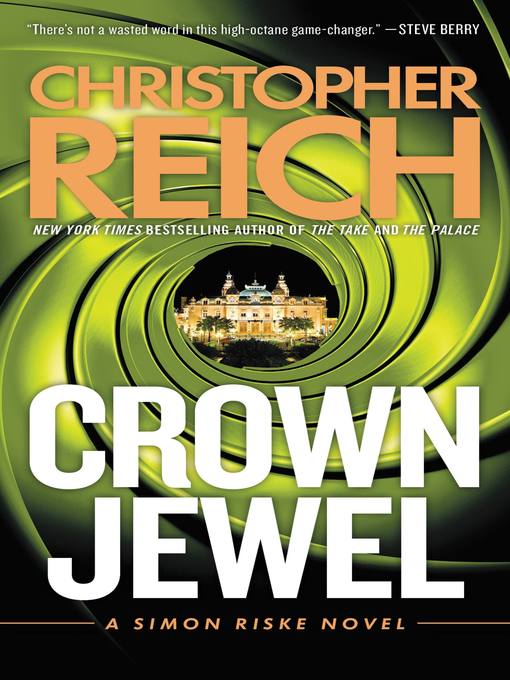
Preview Book
Crown Jewel by Christopher Reich ⭐⭐⭐½
Simon Riske returns for another car-studded adventure.Riske is a restorer of high-end automobiles--Ferraris, Bugattis, that sort of thing--who moonlights as a problem-solver to the wealthy, and this second caper (The Take, 2018) takes him to southern France and Monaco in the service of Toby Stonewood, managing partner of the Casino de Monte-Carlo. Toby has been losing money, millions of dollars, from his casino, and he wants Riske to try to uncover how he is being cheated and who is doing it. Riske is well-qualified to undertake this assignment, having spent his younger years with the Corsican mob and being familiar with the ways of gangsters. His cover will be that he is to take part in the Concours d'Élégance scheduled there and drive in a time trial. When fate drops a Ferrari Daytona in his figurative lap, Riske is off to the races. After minor complications on French highways, Riske arrives in Monte Carlo and quickly identifies the individuals involved in the casino scam. In addition, he makes the acquaintance of Vika, a particularly compelling woman, and allows himself to become involved in her problems. Vika's mother has recently died in an automobile accident--the authorities rule it suicide, but Vika knows that cannot be correct, because her mother had poor vision and rarely drove at all and never at night. Further, Vika's mother left Vika a disturbing voicemail that suggests she felt herself to be in some danger. Riske and Vika meet circumstantially, and Riske helps Vika try to sort out what really happened. After Vika is threatened, then assaulted, Riske intervenes and learns she is in fact a princess and also that her assailants are members of the same Bosnian gang that is bleeding the casino. Unraveling the connection, rescuing the princess, and driving fast cars exceedingly well keep Riske busy. Falling in love, even with a princess, seems a little déclassé for Simon Riske, whose loner identity was molded in a French prison, but Vika seems a pretty nice girl, and she's worth billions.Monaco, fast cars, rich women, bad Bosnians--what more is there?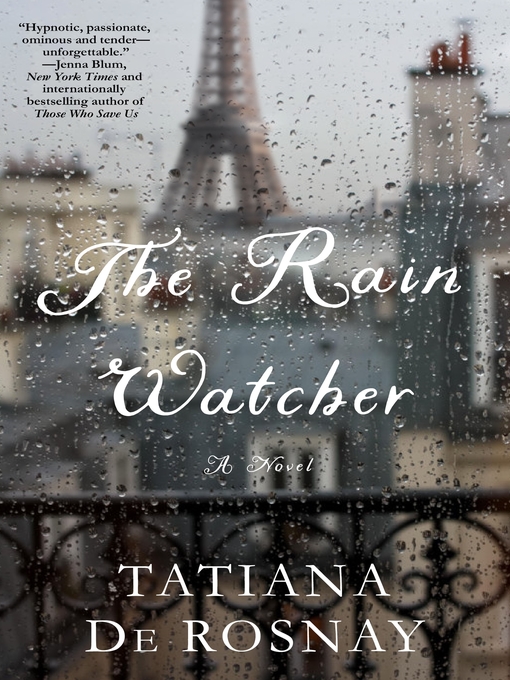
Preview Book
The Rain Watcher by Tatiana de Rosnay ⭐⭐⭐
The triumphant 11th novel from de Rosnay (Sarah’s Key) follows the unraveling of long pent-up frustrations within the Malegarde family against the backdrop of a natural disaster. Linden Malegarde, a Franco-American photographer, travels to Paris to celebrate the 70th birthday of his father, Paul. But when Paul suffers a stroke and is hospitalized, Linden decides to stay indefinitely. As Paul’s health ebbs, the river Seine floods the city, relentlessly rising due to driving rain. For Linden, the Paris he knows so well becomes “hardly identifiable, yet painfully familiar,” paralleling his own feelings and memories of his adolescence. Fearing more of the rejection and bigotry he’s experienced throughout his life, Linden, who is in his late 30s, has yet to come out as gay to his father or introduce him to his longtime partner, Sacha. During the days of unexpectedly close quarters with his father, mother, and sister, Linden begins to open up and discovers that each family member has secrets and emotional wounds just as intense as his own. Throughout, de Rosnay stokes the Malegardes’ histories with raw and powerful reminisces and gorgeous descriptions. This is an emotional tour de force and a thoughtful, deliberate examination of personal tragedy and the possibility of redemption.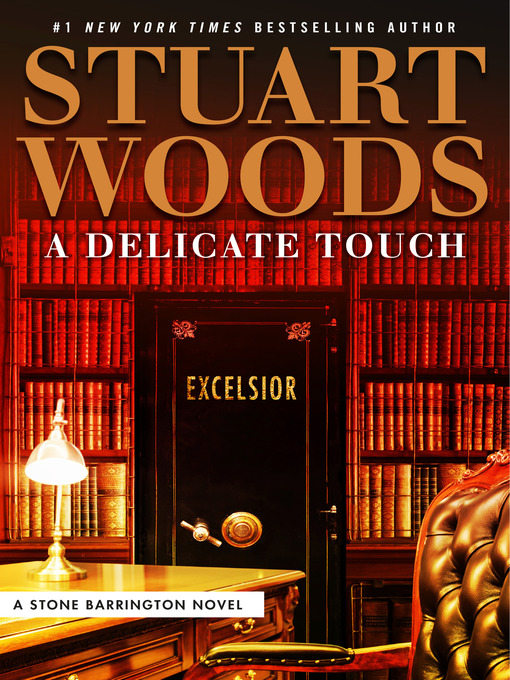
Preview Book
A Delicate Touch by Stuart Woods ⭐⭐⭐⭐
A long-hidden safe turns out to contain enough material to juice the next half-dozen adventures of jet-setting lawyer Stone Barrington.Mary Ann Bianchi Bacchetti, the ex-wife of Stone's ex-NYPD partner Dino Bacchetti, who's now the police commissioner, calls Stone because she needs to open an Excelsior safe she's found in the library of her late father, reformed Mafioso Eduardo Bianchi, before turning the place over to its new buyer the next day. So Bob Cantor, Stone's tech guru, locates Solomon Fink, at 104 one of the last surviving members of the Excelsior firm, who opens the safe during a brief break from his nursing home, to reveal a prodigious sum of cash, documents leading to even more millions, and some detailed files on some very dangerous criminals. Since much of the money is earmarked for Dino, it looks at first as if this will be nothing more than another exercise in unbridled consumer spending, as Dino and his current wife, Viv, race to rival the conspicuous consumption that's marked Stone's recent outings (Desperate Measures, 2018, etc.). But the file on Jack Thomas, ne Gianni Tommassini, promises more interesting developments, from his initial and predictably unsuccessful attempts to silence everyone who knows about the file to his deep-laid plans to help his son, Congressman Henry Thomas II, become president by running as an independent against Secretary of State Holly Barker, one of Stone's many once and future lovers. Armed with a formidable bank of computers and a staff whose loyalty isn't limited by inconvenient notions of personal morality, the Thomases are formidable opponents. But Stone, Dino, Holly, Bob Cantor, and even Solomon Fink, who returns for a closing bow, are fighting for truth, justice, and the American way.The best of Woods' recent thrillers, a primer on election rigging that plays to both Democrats' recent alarm and Republicans' attachment to the material perks of the good life.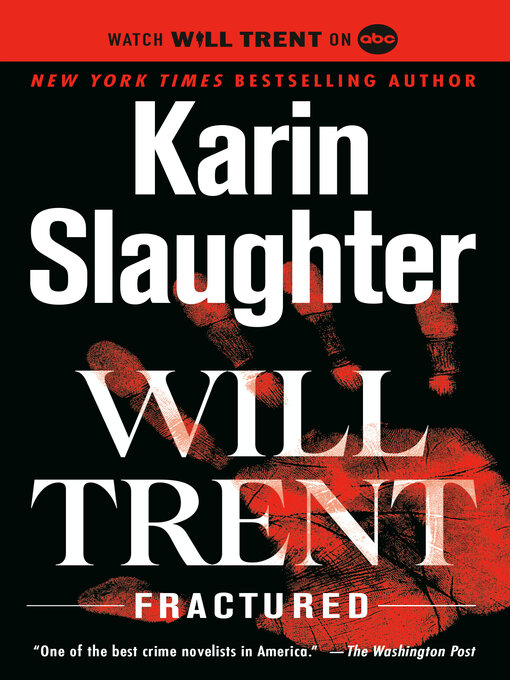
Preview Book
Fractured by Karin Slaughter ⭐⭐⭐⭐
At the start of bestseller Slaughter's heart-pounding sequel to 2006's Triptych, wealthy housewife Abigail Campano returns home one day to Atlanta's posh Ansley Park neighborhood to find a dead girl in the mansion's upstairs hallway, the apparent killer nearby. Thinking that the girl is her teenage daughter, Emma, the distraught Abby kills the alleged attacker only to realize that the murdered girl is not Emma, but Emma's friend, Kayla Alexander. Agent Will Trent of the Georgia Bureau of Investigation soon determines that he has a murder and kidnapping on his hands. Paired with Det. Faith Mitchell, Trent scrambles to put the pieces together and find Emma before it's too late.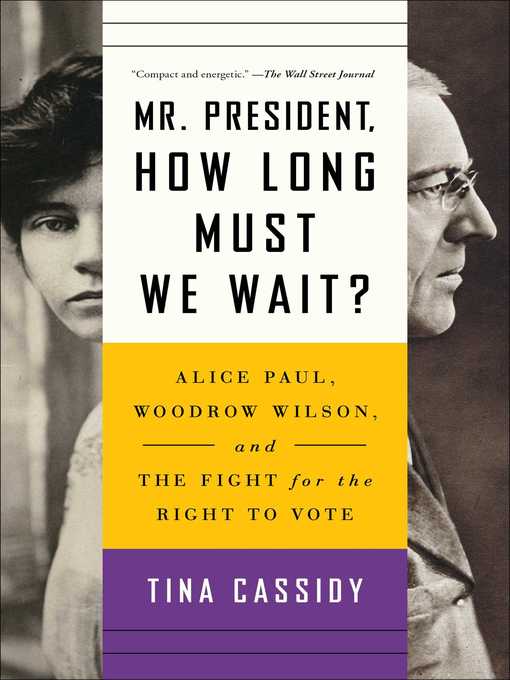
Preview Book
Mr. President, How Long Must We Wait? by Tina Cassidy ⭐⭐
Journalist Cassidy’s vivacious biography of militant activist Alice Paul, one of the undersung heroes of the American women’s suffrage movement and a key player in the adoption of the 19th Amendment, looks at her in the context of and in contrast to President Woodrow Wilson, whom Paul and her peers considered their primary antagonist. Cassidy highlights, with clear admiration, Paul’s energy, vision, and persistence, crediting her with pushing for methods of engagement that are still key to protestors today—marches, picketing at the White House, lobbying, silent protest, noncooperation with arresting officers, and hunger strikes. Her radical push for a constitutional amendment put her in conflict with others in the movement like Carrie Chapman Catt, who preferred a slow, state-by-state approach grounded in the willingness of men to accept the idea of women voting. The depiction of Wilson is conflicted, sympathizing with his stress and fatigue, but ultimately painting him as a failure and an unworthy opponent. Cassidy’s descriptions of the protests and marches led by Paul and her supporters are delightful, full of boisterous color and drama, and featuring the full texts of the wordy (and cheeky) banners used. This engaging history brings the suffrage struggle to life. 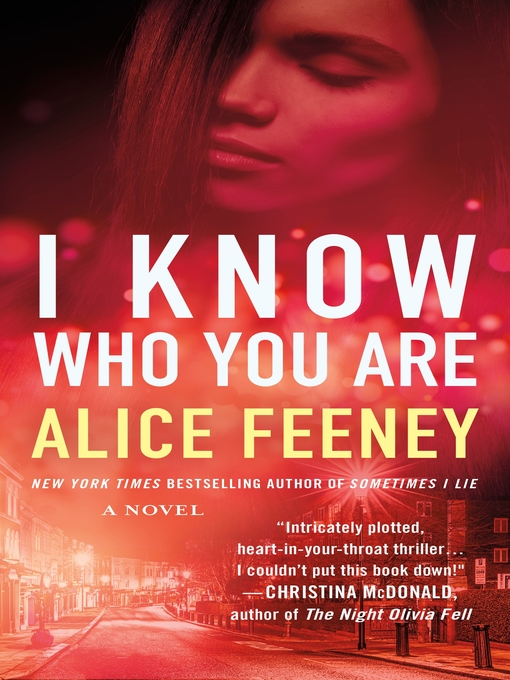
Preview Book
I Know Who You Are by Alice Feeney ⭐⭐⭐½
For most folks, being suspected in the disappearance of their spouse would be about as bad as it gets, but not for London actress Aimee Sinclair, the narrator of bestseller Feeney’s shock-filled second thriller (after 2018’s Sometimes I Lie). Aimee’s past is much darker than the disturbing film with a famous director for which she desperately wants to audition—and her future seems to be barreling full tilt toward the stuff of nightmares. For starters, Aimee’s husband of two years, journalist Ben Bailey, vanishes from their Notting Hill town house the day after they have a fight and she asks him for a divorce. The balance of their joint bank account also disappears, and there’s security footage of a woman who could be her doppelgänger making the withdrawal. Feeney displays her linguistic flair in the chapters devoted to her heroine’s harrowing early years, but this affecting backstory seems part of a different, better novel than the present-day story with its cardboard characters on a plot-powered roller coaster. The action speeds toward a finale that’s about as subtle as an ax. Fans of over-the-top psychological thrillers will be satisfied. 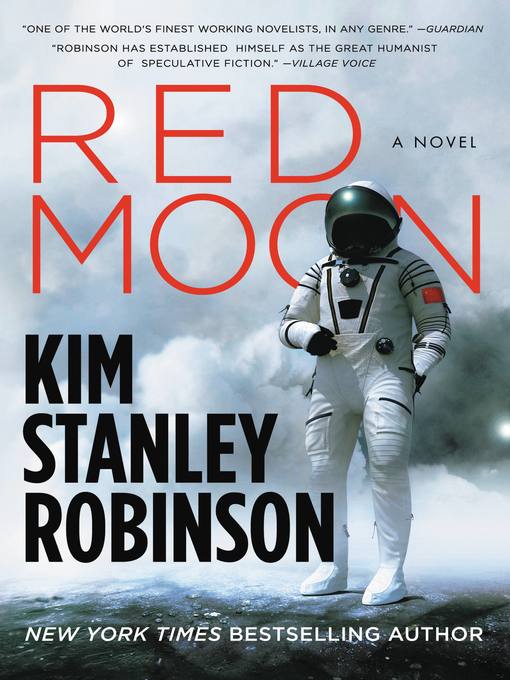
No Book Preview
Red Moon by Kim Stanley Robinson ⭐⭐⭐½
The murder of a Chinese politician on the moon in the mid-21st century sends a mismatched couple on the run and signals a looming crisis on Earth.American Fred Fredericks is delivering a secure quantum-entangled phone to Chang Yazu, chief administrator of the Chinese Lunar Authority, but the two have barely shaken hands when Chang slumps to the ground, dead by poison. The confused Fred is accused of the crime, a pawn in a power struggle among various Chinese government factions, who also seek control of Chan Qi, the pregnant daughter of a top party official and the leader of a migrant workers rights movement. The two bounce between the Earth and moon and back in search of a safe refuge, aided at times by poet and "cloud star" Ta Shu, a friend of Peng Ling, the strong contender to become China's first woman president. The title initially seems like a call back to the first entry in Robinson's terraforming trilogy, Red Mars, but while the lunar landscape is a source of beautifully described detail and the lower gravity acts as obstacle and asset, this is not a hard sci-fi novel. Rather, it's a political thriller where the moon is a backdrop and game piece for both China and the United States, two powerful nations facing significant political and economic unrest. A white man writing about Chinese politics and mainly Chinese characters could seem questionable in a publishing milieu that still lacks sufficient diverse voices; all one can say is that as per usual for Robinson, it seems well-researched. It is unfortunate that Chan Qi's primary qualities are being pregnant and cranky; while tough and passionate, there's little sign of the charisma typically associated with a populist leader. The more well-rounded Ta Shu is still mostly a plot device: He writes the occasional profound-seeming poem, but he's mainly there to rescue our heroes at various moments and provide the author's desired infodumps on physics and Chinese politics. Fred Fredericks (the white man) is the most intriguingly drawn character. While no explicit diagnosis is given, the author offers a vivid and relatively plausible depiction of a man on the spectrum, with social difficulties and a sensory processing disorder.Not Robinson's (New York 2140, 2017, etc.) strongest work, but not without interest, either.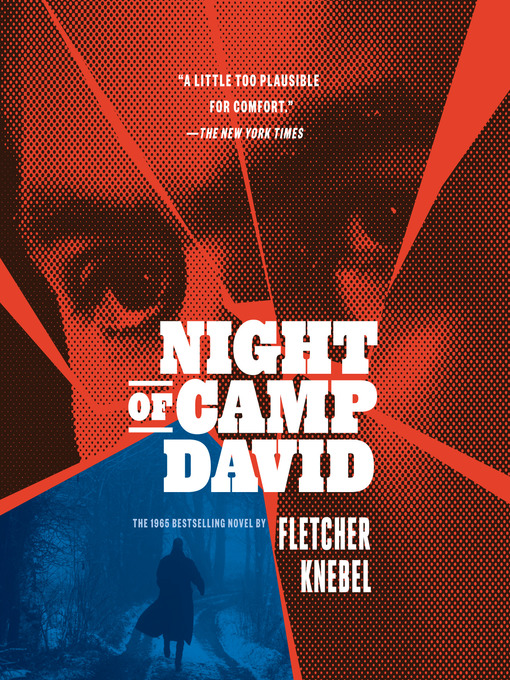
Preview Book
Night of Camp David by Fletcher Knebel ⭐⭐⭐½
This one is an old classic, and no reader who enjoys political thrillers should miss it. The premise is simple enough -- what to do if a President of the United States is seriously unbalanced. I first read this one in the early 1970s and re-read it today (2016) and it is as relevant now as it was then. Knebel's writing is very good, the plot moves along smartly to a satisfying conclusion (no spoilers here.)One of the things that comes through reading this book is how much less corrupt and vicious politics was in the 1960s-1970s as opposed to now. In my opinion this book indirectly corroborates my own belief that Vietnam and Watergate polarized American politics to an extent that did not previously exist. All of the politicians portrayed in this novel appear to be reasonably honest, if flawed. I doubt anyone thinks that this is true in 21st Century American politics. (Partisan comments omitted here.)
Please forgive the tangent, but the above is one of the unintended benefits of reading, in 2016, a political thriller written many decades ago. In any event, this one has aged well and most readers will find it to be an enjoyable and worthwhile read.
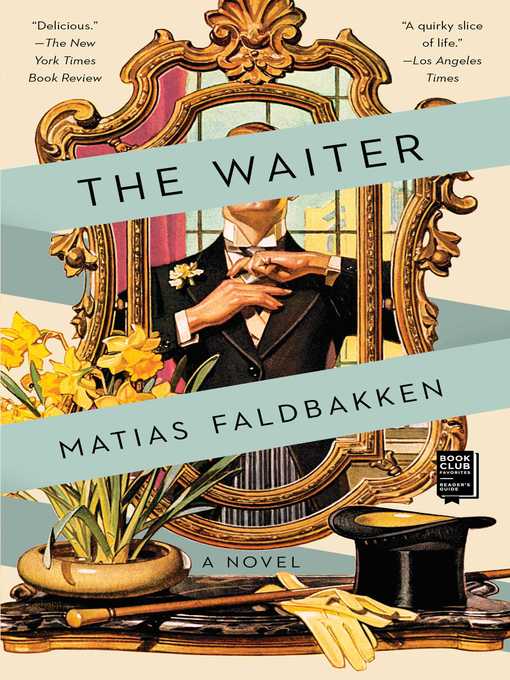
Preview Book
The Waiter by Matias Faldbakken ?
Faldbakken’s English-language debut is an ambitious, contained story set entirely in a grand old restaurant in Oslo called The Hills, narrated by a seasoned waiter over the course of a few gorgeous meals. The waiter and others on the staff—the nosy bar manager mixing drinks, the snooty maitre d’ sneaking drinks, the silent chef—find themselves ever more scandalized by the uncharacteristic behavior of their usually impeccably mannered clientele (one even takes out his phone) after a beautiful young woman joins the intimate setting. The waiter becomes so unsettled by the disruption of his establishment’s quotidian rituals that he finds himself in the kitchen smashing all the chef’s cherry tomatoes in the garlic press. He is almost completely undone when another patron asks to leave his daughter at the restaurant while he goes on a day trip, but the waiter musters enormous kindness by entertaining the child with an unusual-looking cauliflower. The story is absurd—when the scents of two diners mix, it is “equivalent to the miracle of mayonnaise... something completely new and special occurs between them”—about nothing, and everything. Faldbakken’s story vandalizes the old world the restaurant represents by revealing its inanities, while at the same time eulogizing it by making it his subject, resulting in a clever, striking novel.
Preview Book
Cari Mora by Thomas Harris ⭐⭐⭐
Morbid mysterian Harris (Hannibal Rising, 2006, etc.) returns with a trademark mix of murderous psychopaths and morally iffy good guys. Lesson No. 1: Don't mess with a determined Colombian woman, especially not one with combat experience and no fear of dying. The title character is a case in point: 25, pretty, though with scars that speak to a terrible past. Under the watchful eye of the immigration authorities, she works several jobs, including managing a luxurious Miami property with a murky title, a property that was once owned by drug lord Pablo Escobar and under which he tucked away a trove of gold ingots. Enter Hans-Peter Schneider, a decidedly nasty fellow in the tradition of other Harris villains. Hans-Peter has fangs with "silver in them that shows when he smiles" and is otherwise rather vampiric in aspect, and he has a thing for harvesting organs and selling women into slavery. He's after that gold, and Cari is a mere inconvenience to be dealt with in due time, minus a limb or two, perhaps. So it is with Cari's pool cleaner friend Antonio, anyway, who winds up an object of Hans-Peter's attention: "These were Antonio's legs. That was Antonio's torso. His head was missing." Things get ickier still as heads explode, bob around in liquid cremation machines, and otherwise undergo assorted unpleasantries. Hans-Peter isn't the only one after the gold, of course, and then there are the rising waters thanks to climate change, waters that have burrowed their way under the mansion. It's a race against time--and crocodiles, and all the other ways of dying unhappily in South Florida. It's vintage Harris, with nice twists and elegant ways of expressing just how bad bad people can be. Suffice it to say that, as the story winds to a blood-soaked close, some of the principals probably won't be showing up in a sequel. Refreshingly, entertainingly creepy and with nary a fava bean in sight.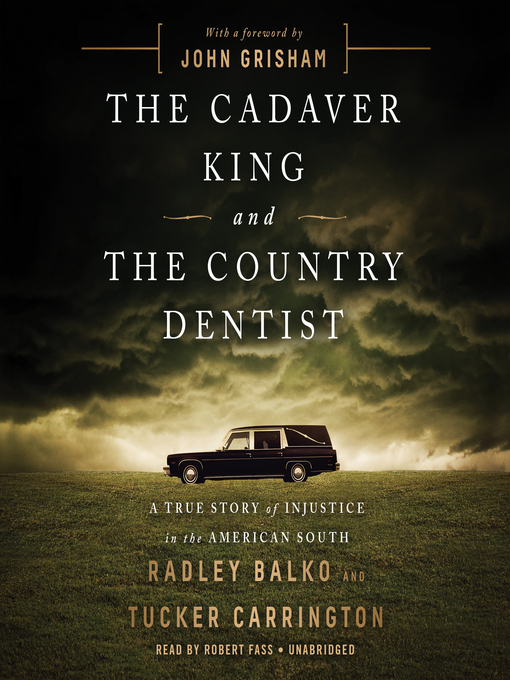
Preview Book
The Cadaver King and the Country Dentist by Radley Balko ⭐⭐⭐½
Investigative reporter Balko and former criminal defense lawyer Carrington offer a clear and shocking portrait of the structural failings of the U.S. criminal justice system in this account of two medical professionals—Steven Hayne, Mississippi’s “former de facto medical examiner,” and his friend Michael West, a forensic dentist—who, in turn, built successful careers off of a broken system. The book focuses on the doctors’ roles in the trials of Kennedy Brewer and Levon Brooks, who were both wrongly convicted of crimes involving the sexual assault and murder of minors in the 1990s (both men were exonerated in 2007). The authors methodically dissect the doctors’ testimonies in the trials of the two men and point to major flaws; such as when, during Brooks’s trial, Hayne asserted that marks on the corpse were definitely human bite marks, despite the condition of the body, which had been submerged in water and was badly decomposed. The authors make clear that these two false convictions resulted from the willingness of Mississippi authorities to overlook legitimate questions about the quality of Hayne’s and West’s work; for example, Hayne, who performed 80% of the state’s autopsies for more than two decades, once wrote that he had removed the uterus and ovaries from a male cadaver. This eminently readable book builds a hard-to-ignore case for comprehensive criminal justice reform.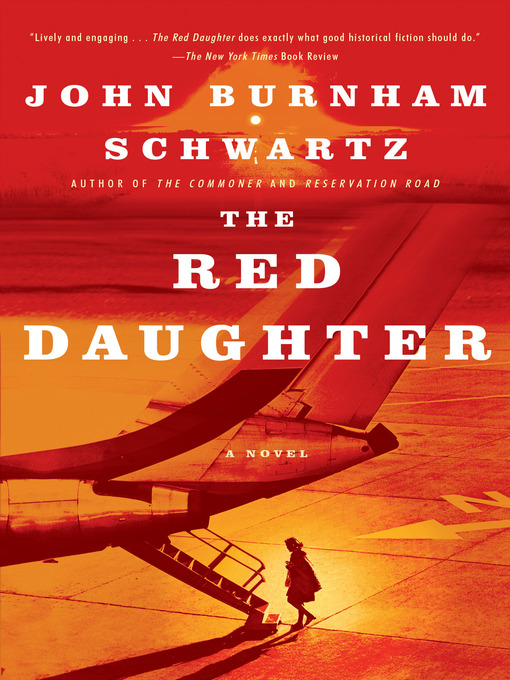
Preview Book
The Red Daughter by John Burnham Schwartz ⭐⭐
In this gripping historical about the defection of Stalin’s only daughter, Svetlana Alliluyeva, Schwartz (The Commoner) explores the wider political context that sharpens private tragedy. In 1967, the author’s father, lawyer Alan U. Schwartz, accompanied Alliluyeva from Switzerland to the U.S., setting off a firestorm of media attention and controversy. Told via Svetlana’s fictionalized journals, the story follows Svetlana, who, at age 41, abruptly abandons her homeland for the U.S., leaving her two children behind in hope that they can have a fresh start under a new identity. While attempting to hide her past from those she meets in the U.S., Svetlana also longs for connection. But after a short time working in Princeton, N.J., where she writes and gives lectures, she impulsively accepts an invitation to the cultlike fellowship run by Franklin Lloyd Wright’s widow at Taliesin West in Arizona. While Alliluyeva gains lovers, friends, and has another child, she never fills the void created when she left Russsia and her family behind. With CIA minders never far, the fraught political relationship between Alliluyeva and the U.S. government provides another layer of intrigue. But this lovely novel’s strength is the aching portrait of Svetlana: “not American, not Russian, neither this thing or that thing but always now between these things, which is the tragedy of my life.” Filled with historical details that enliven and ground the fictionalized elements, Schwartz’s elegant novel captures the emotion and strain of Alliluyeva’s second life in the U.S..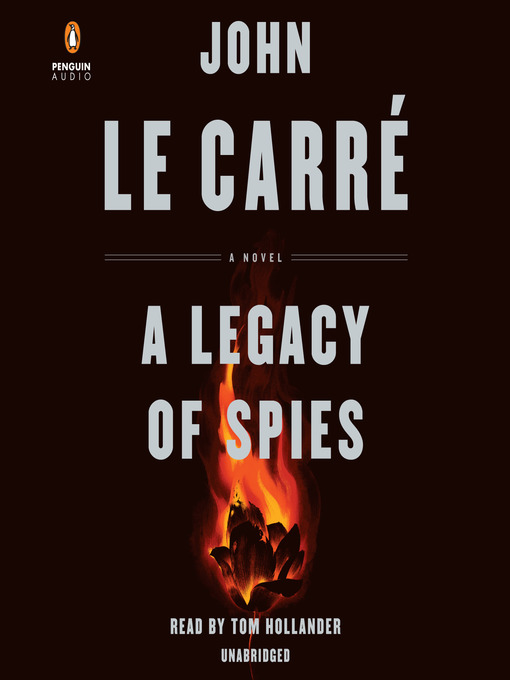
Preview Book
A Legacy of Spies by John le Carré ⭐⭐⭐½
After having turned from his peerless chronicles of George Smiley and his fellow spies to the tale of his own life (The Pigeon Tunnel: Stories from My Life, 2016), le Carre returns to put yet another spin on the events of The Spy Who Came in from the Cold (1963).Looking back from half a century later, Peter (ne Pierre) Guillam resolves to tell the truth of how his senior colleague Alec Leamas met his death along with his lover, Elizabeth Gold, that fatal day at the Berlin Wall. More than an old man's memories prompt this valediction. When Peter, long retired from the British Intelligence Service to a Brittany farm, is summoned back to London, the Service's chief lawyer, a man who introduces himself only as Bunny, informs him that Christoph Leamas, Alec's bastard son, has discovered Liz's daughter, Karen, and made common cause with her, threatening a lawsuit against the Service and correspondingly ruinous publicity for leading their parents to their deaths through misdirection, falsehood, and professional betrayal. Many of the documents that might help explain the circumstances, Bunny notes with asperity, have gone suspiciously missing; what troubles Peter even more is the documents that survive, which root Alec's and Liz's fatal shootings not only in Alec's long-known battle of wits against Stasi Deputy Head Hans Dieter Mundt, but also Alec's well-concealed and institutionally unauthorized attempt to smuggle out of East Germany his most recent supplier of information, Doris Gamp (codenamed Tulip), the put-upon assistant to senior Stasi official Dr. Emmanuel Rapp who's been passing on photographs of classified documents her husband, ambitious Stasi functionary Lothar Quinz, has brought home. Any reader who knows le Carre's earlier work, and quite a few who don't, will assume that any attempt to second-guess the mandarins of the Service will backfire. The miracle is that the author can revisit his best-known story and discover layer upon layer of fresh deception beneath it.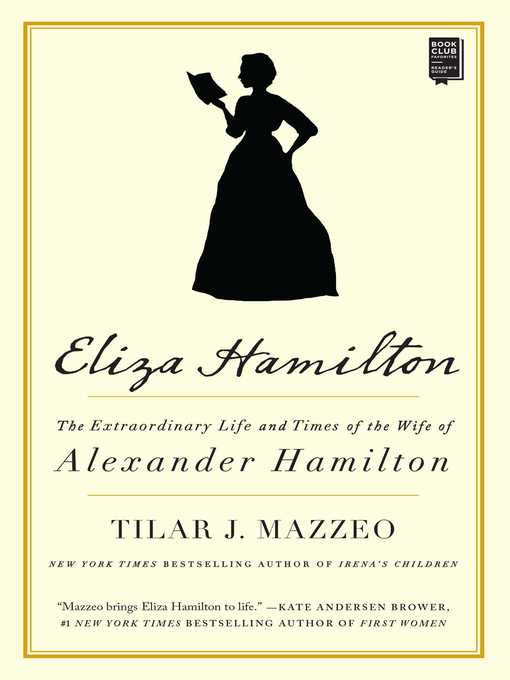
Preview Book
Eliza Hamilton by Tilar J. Mazzeo ⭐⭐⭐⭐
Mazzeo (Irena’s Children) centers love and devotion in this satisfying cradle-to-grave biography, the first written about the wife of the first U.S. secretary of the treasury. Drawing from an impressive breadth of sources, Mazzeo shows what made Eliza, in the words of her husband, Alexander, the “best of wives, best of women.” Born into a prominent New York family in 1757, Eliza Schuyler’s young life was dominated by war, especially the American Revolution. That war netted her a husband, the hardworking, ambitious Colonel Hamilton, who later served as President Washington’s secretary of the treasury. Mazzeo convincingly argues that Eliza’s determination to emulate the sacrifice and loyalty of classical Roman wives is key to understanding their marriage and the truth about Alexander’s infamous affair with Maria Reynolds, later revealed to be a coverup for financial misconduct that if revealed could have harmed not only the family but the Washington administration. After Alexander’s death in the 1804 duel, Eliza still had half her life ahead of her. Mazzeo gives less attention to the years during which Eliza exercised her widow’s independence, which is disappointing. Nevertheless, this is an expertly told story that’s certain to captivate Hamilton fans and intrigue anyone interested in early U.S. history.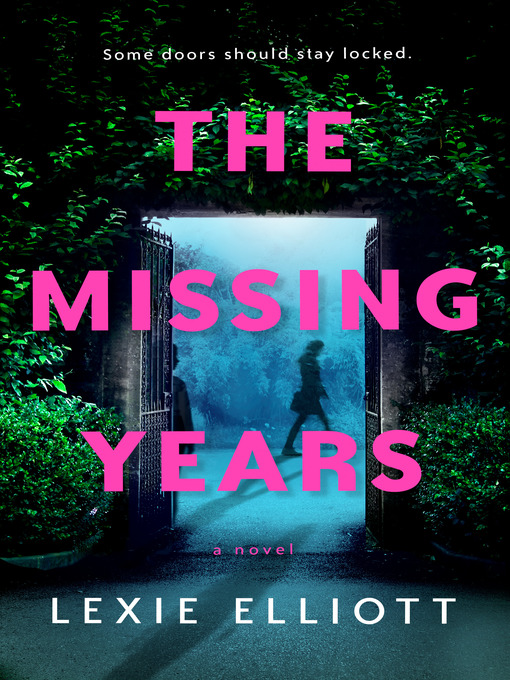
Preview Book
The Missing Years by Lexie Elliott ⭐⭐⭐½
Ailsa Calder has inherited half of a house. The other half belongs to a man who disappeared without a trace twenty-seven years ago—her father.Leaving London behind to settle the inheritance from her mother's estate, Ailsa returns to her childhood home, nestled amongst the craggy peaks of the Scottish Highlands, joined by the half-sister who's almost a stranger to her.
Ailsa can't escape the claustrophobic feeling that the house itself is watching her— as if her past hungers to consume her. She also can't ignore how the neighborhood animals refuse to set one foot within the gates of the garden.
When the first nighttime intruder shows up, Ailsa fears that the manor's careless rugged beauty could cost her everything.
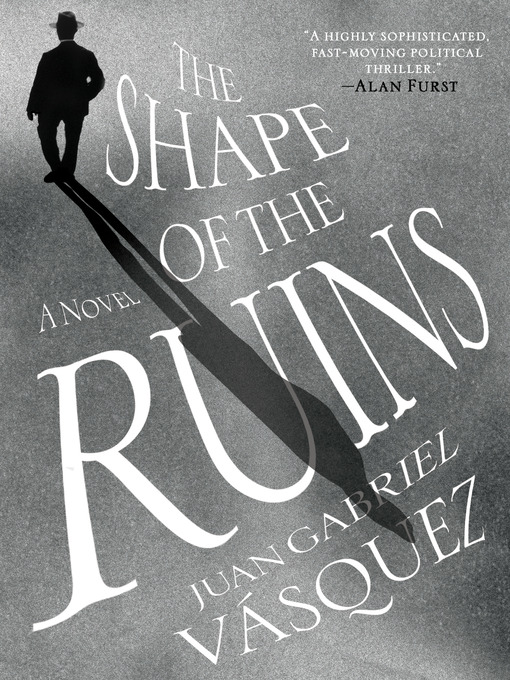
Preview Book
The Shape of the Ruins by Juan Gabriel Vasquez ⭐⭐⭐
Colombian novelist Vásquez (Reputations) is author, narrator, and protagonist of this clever, complex novel about political crimes, cover-ups, conspiracies, and conspiracy theories. In 2005, Vásquez meets conspiracy enthusiast Carlos Carballo at a respected Bogotá surgeon’s home. Carballo voices suspicions regarding 9/11, Princess Di, and Vásquez’s uncle. During their next encounter, Carballo reveals obsessions with assassinations, Orson Welles, and writing a novel. When the surgeon asks Vásquez to befriend Carballo in order to find out if Carballo has stolen assassination artifacts from the surgeon’s collection, Vásquez makes a guest appearance on Carballo’s talk radio program, then agrees to write the novel Carballo envisions, which will expose links between Colombian conservatives and two assassinations: presidential candidate Jorge Eliécer Gaitán (1948) and General Rafael Uribe Uribe (1914). As he explores suppressed evidence, vanished witnesses, and distorted reports, Vásquez is left with more questions than answers. The novel, bolstered by humor and irony, includes photos, literary references, and intimate family moments, but the most memorable passages depict the assassinations and their aftermath. Vásquez’s captivating, disquieting account of a writer’s journey through the shadowy terrain of his country’s past dynamically illustrates how violence damages survivors, lies erode society, and fiction can convey truths history omits
Preview Book
The Last Equation of Isaac Severy by Nova Jacobs ⭐⭐⭐½
Just days after mathematician and family patriarch Isaac Severy dies of an apparent suicide, his adopted granddaughter Hazel, owner of a struggling Seattle bookstore, receives a letter from him by mail. In it, Isaac alludes to a secretive organization that is after his final bombshell equation, and he charges Hazel with safely delivering it to a trusted colleague. But first, she must find where the equation is hidden.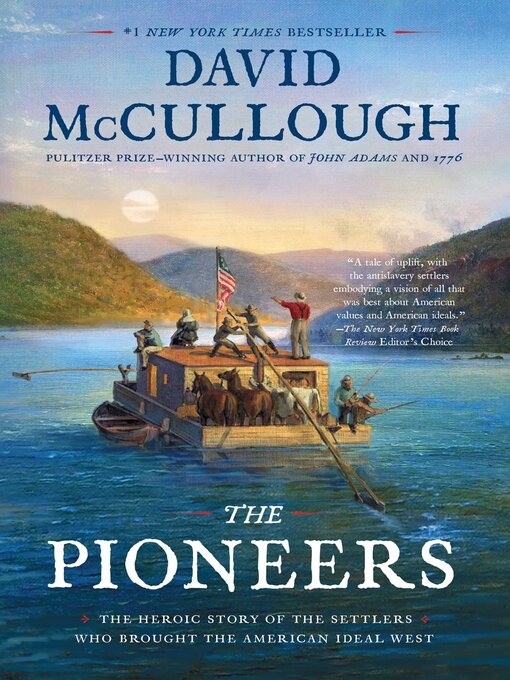
Preview Book
The Pioneers
The Heroic Story of the Settlers Who Brought the American Ideal West by David McCullough ⭐⭐⭐½
Popular historian McCullough (1776) uses his well-crafted writing style and thorough research to highlight the evolution of the “Ohio territory” (now Illinois, Indiana, Michigan, Ohio, Wisconsin) from late-18th-century settlement to well-regarded American cities (Marietta, Cincinnati) by the 1860s. He follows members of a few optimistic, well-connected families whose impact on the region spanned generations, admiringly portraying their efforts to create a new England on the frontier. Settler leaders Rufus Putnam and Manasseh Cutler veered between Eastern political maneuvering for approval (including that of George Washington) for private purchase of the land they wanted and surviving the pioneer trials of wildlife, starvation, and violence between settlers and native Americans (which is treated as a minor subplot). The swiftly moving narrative also shines light on the territory’s consistent antislavery position beginning with the 1787 Northwest Territory Ordinance and leading to the first black vote in 1802. While some readers may be put off by the near-omission of the native people’s perspective, those seeking a pro-colonial history will find this is a fascinating and well-written look at the Cutler families and the Americanizing of Ohio. 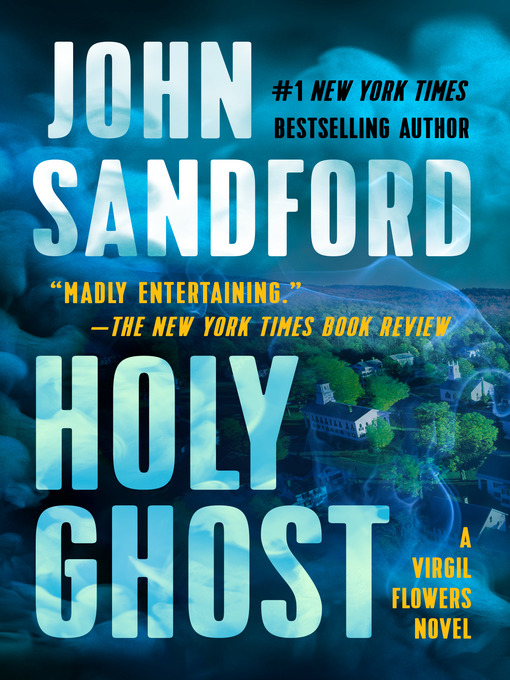
Preview Book
Holy Ghost
Virgil Flowers Novel by John Sanford ⭐⭐⭐⭐
In bestseller Sandford’s wickedly enjoyable 11th outing for Minnesota Bureau of Criminal Apprehension agent Virgil Flowers (after 2017’s Deep Freeze), Wardell Holland, the maverick mayor of Wheatfield (pop. 650), and his 17-year-old sidekick, John Jacob Skinner, decide the town needs an economic boost, so they contrive for the Virgin Mary to appear at St. Mary’s Catholic Church, with one of Skinner’s many sexual conquests, Jennie Fischer, in the Mary role. The Marian Apparition succeeds in bringing flocks of tourists to Wheatfield. Then sniper-like shootings that wound two citizens threaten the bonanza. Flowers’s subsequent investigation turns up suspects ranging from a few would-be Nazis to a farmer/gun range owner and Jennie’s porn-loving boyfriend. When the shootings turn deadly, Flowers gets help, which he badly needs as he comes to realize that he must outwit a clever killer who proves one of his maxims: “If it’s criminal, it’s either stupid or crazy.” Sandford’s trademark sly humor shines throughout.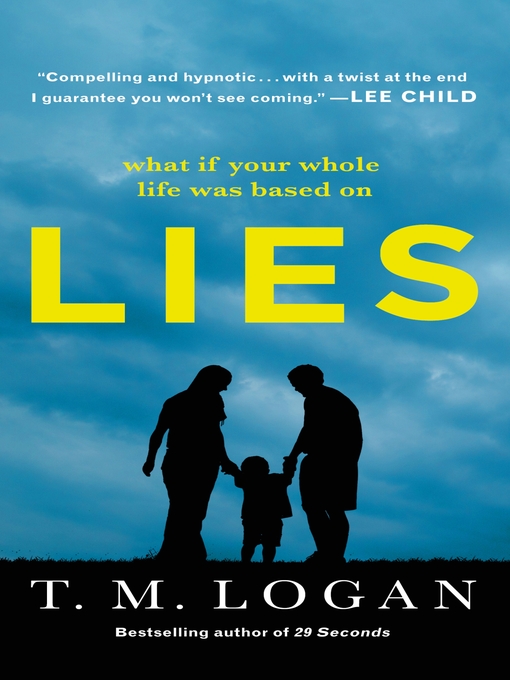
Preview Book
Lies by T. M. Logan ⭐⭐⭐⭐
A spur-of-the-moment detour leads to disaster in this psychological thriller debut.Joseph Lynch and his 4-year-old son, William, are navigating North London traffic when William spots his mother's car exiting the highway. William wants to surprise Melissa, so they follow her to the Premier Inn, where Joe assumes she's meeting a client; instead, they find Mel in the hotel bar, arguing with her best friend's husband, tech millionaire Ben Delaney. Mel flees before Joe can flag her down, so he confronts Ben, who denies having seen Mel. The ensuing scuffle ends with Ben's striking his head on the parking garage floor and losing consciousness. Joe takes William home and then returns to the hotel, but Ben and his vehicle are gone. Also missing is Joe's phone, which he lost in the fray. Later that night, Joe interrogates Mel, who insists that the rendezvous was business-related. Joe initially believes her, but it's not long until he realizes that his wife is lying--and that thanks to her vengeful lover, his marriage isn't the only thing in jeopardy. Logan writes viscerally about the emotional devastation wrought by marital infidelity. Joe's heartbreak and desolation are palpable, the tale cunningly exploits the paranoia that springs from fractured trust, and although Logan fails to fully earn his twisting plot's final turn, the ending still packs a punch.British journalist Logan's first foray into crime fiction is an adrenaline-fueled page-turner that explores the fragility of domestic bliss.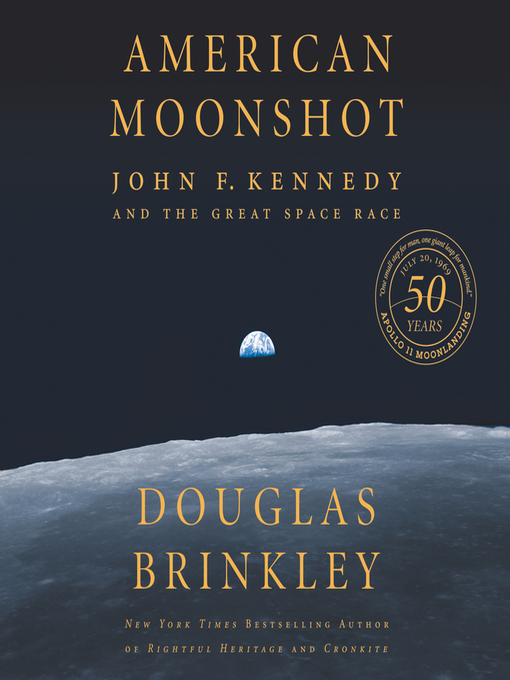
Preview Book
American Moonshot
John F. Kennedy and the Great Space Race by Douglas Brinkley, Stephen Graybill ⭐⭐⭐⭐
On May 25, 1961, President John F. Kennedy challenged the nation to land a man on the moon by the end of the decade. To commemorate the 50th anniversary of this promise kept, CNN's presidential historian Brinkley (history, Rice Univ.; Rightful Heritage) presents a sweeping narrative of the U.S.-Soviet space race, culminating in Apollo 11 astronaut Neil Armstrong's lunar walk on July 20, 1969. Much of the book delves deeply into Apollo's historical roots, beginning with Robert Goddard's pioneering rocketry experiments in the 1920s; continuing with Nazi party member and SS officer Werner von Braun's development of the V1 and V2 rockets that slaughtered thousands of English citizens but which did not prevent him from becoming Kennedy's space science expert; and concluding with the Mercury, Gemini, and Apollo projects (1958-72). Brinkley is at his best when sharing stories about astronauts such as John Glenn, Neil Armstrong, and Soviet cosmonaut Yuri Gagarin. The author concludes that, regrettably, only Kennedy's assassination in 1963 guaranteed full funding for the costly Apollo project: the cornerstone of Kennedy's New Frontier era. VERDICT Enlightening and absorbing, this account will fascinate historians, history buffs, and popular science enthusiasts. See also James Donovan's Shoot the Moon.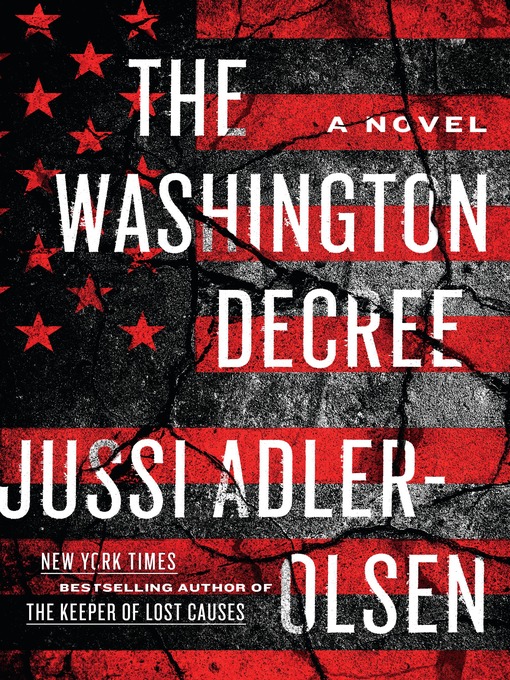
Preview Book
The Washington Decree by Jussi Adler-Olsen, Steve Schein ⭐⭐⭐
This ambitious, paranoid fantasy of how quickly things can go wrong in the hands of an American president who's determined to take a strong stand against threats of violence.Sixteen years after Virginia governor Bruce Jansen's first wife, Caroll, was stabbed to death during a very public moment on a visit to China, his successful run for the presidency comes to the worst possible climax when his second wife, Mimi Todd Jansen, is gunned down, perhaps in his stead, on election night. Deeply shaken by the first death, Jansen is so traumatized by the second that observers wonder whether he'll take the oath of office or resign in favor of Vice President-elect Michael K. Lerner. As it turns out, Jansen not only assumes, but transforms the office, using agencies and executive orders already in place to step up surveillance on his fellow citizens, unplug the internet, defang or shutter critical journalistic outlets, and ban first ammunition, then guns from private ownership. Members of paramilitary militias like Moonie Quale predictably go ballistic, but members of Jansen's cabinet, many of them touched by personal violence against their loved ones, overwhelmingly support him. So far the scenario recalls that of It Can't Happen Here, Sinclair Lewis' classic 1935 novel of homegrown American fascism. Adler-Olsen's complication is his decision to focus not on a single American oppressed and powerfully radicalized by the new regime but by an oddly assorted group--journalist John Bugatti, presidential press secretary Wesley Barefoot, Sheriff T. Perkins, and staff attorney Dorothy "Doggie" Rogers, whose father is convicted of arranging Mimi Todd Jansen's murder--who were all present on that fateful day in Beijing.Despite a disturbing and all-too-plausible concept duly supported by an appendix listing real-life executive orders ripe for tyrannical misuse, this nightmare gradually turns into a standard-issue lots-of-good-guys-versus-even-more-bad-guys scenario populated by characters you'll hardly miss when they're killed, as so many of them are.
Preview Book
Scrublands by Chris Hammer ⭐⭐⭐½
A year after a tragedy involving an Anglican priest, journalist Martin Scarsden arrives in Riversend, Australia, to tell the story of the small town. He discovers a dying community facing drought and economic disaster while fighting the impressions of the outside world. Martin attempts to dig deeper but faces opposition, anger, and stories that contradict one another. Was the priest a pedophile? Was he a saint or a sinner? Are the police even telling the truth? Identities are uncovered, and even old tramps are not who they appear to be. Dealing with his own war zone-induced PTSD, Martin also encounters an entire town suffering from the trauma resulting from the priest's actions, bushfires, and a fatal car accident. Father Byron Swift's secrets have already changed so many lives; they will also alter Martin's. VERDICT Hammer's intricately plotted, atmospheric debut introduces the bleak Australian scrublands, an area haunted by its past. Fans of Jane Harper's Australian crime novels will welcome another author with a rich descriptive style.
Preview Book
Foe by Iain Reid ⭐⭐⭐½
In the near future, a man and his wife are visited by a mysterious stranger offering a chance for previously unimagined adventure, though the true exploration--and danger--might be closer to home.Junior and Henrietta live in a dilapidated but cozy rural farmhouse, deep in a sea of canola fields, with only a few chickens for company. Their isolation is both comforting and eerie, a combination Reid pulled off exceptionally well in I'm Thinking of Ending Things (2016). Then a man named Terrance arrives with an outlandish prospect: Junior is on the long list of lottery participants chosen to take part in the Installation, a temporary space resettlement project run by OuterMore. Though Terrance's enthusiasm is palpable, and unnerving, Junior and Hen are understandably leery. With all the cheer of a traveling Bible salesman, Terrance departs, promising to be back if Junior moves up the list. Two years pass in a flash, with Junior going about his job at the mill and Hen sinking into a minor depression of sorts. Like the warning of potential yet probable future disease, dread over Terrance's return settles over the narrative, and Junior and Hen's relationship, which at first seems strong, wobbles. As Junior moves up the list and his departure becomes more certainty than possibility, cracks appear in the marriage; Junior struggles with memories of his past, and Hen confronts her husband with feelings she's kept hidden for years. Terrance's role as observer and cataloger as he prepares the couple for the Installation is claustrophobic yet revealing, and Reid builds to a deeply unsettling climax.As much a surgical dissection of what makes a marriage as an expertly paced, sparsely detailed psychological thriller, this is one to read with the lights on.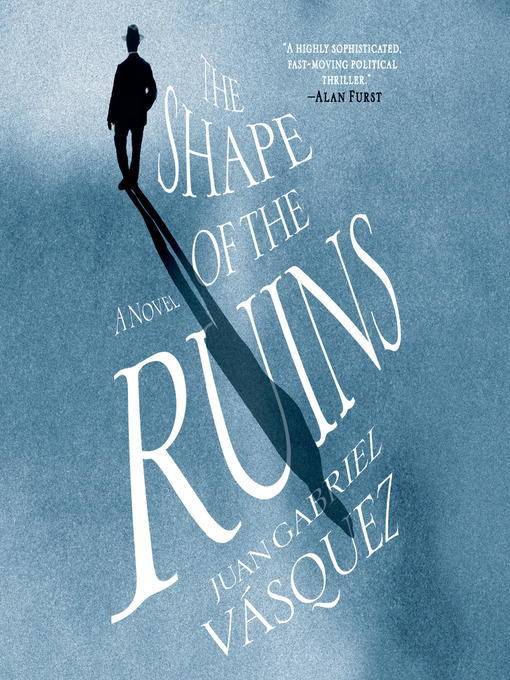
Preview Book
The Shape of the Ruins by Juan Gabriel Vasquez ⭐⭐⭐
Colombian novelist Vásquez (Reputations) is author, narrator, and protagonist of this clever, complex novel about political crimes, cover-ups, conspiracies, and conspiracy theories. In 2005, Vásquez meets conspiracy enthusiast Carlos Carballo at a respected Bogotá surgeon’s home. Carballo voices suspicions regarding 9/11, Princess Di, and Vásquez’s uncle. During their next encounter, Carballo reveals obsessions with assassinations, Orson Welles, and writing a novel. When the surgeon asks Vásquez to befriend Carballo in order to find out if Carballo has stolen assassination artifacts from the surgeon’s collection, Vásquez makes a guest appearance on Carballo’s talk radio program, then agrees to write the novel Carballo envisions, which will expose links between Colombian conservatives and two assassinations: presidential candidate Jorge Eliécer Gaitán (1948) and General Rafael Uribe Uribe (1914). As he explores suppressed evidence, vanished witnesses, and distorted reports, Vásquez is left with more questions than answers. The novel, bolstered by humor and irony, includes photos, literary references, and intimate family moments, but the most memorable passages depict the assassinations and their aftermath. Vásquez’s captivating, disquieting account of a writer’s journey through the shadowy terrain of his country’s past dynamically illustrates how violence damages survivors, lies erode society, and fiction can convey truths history omits.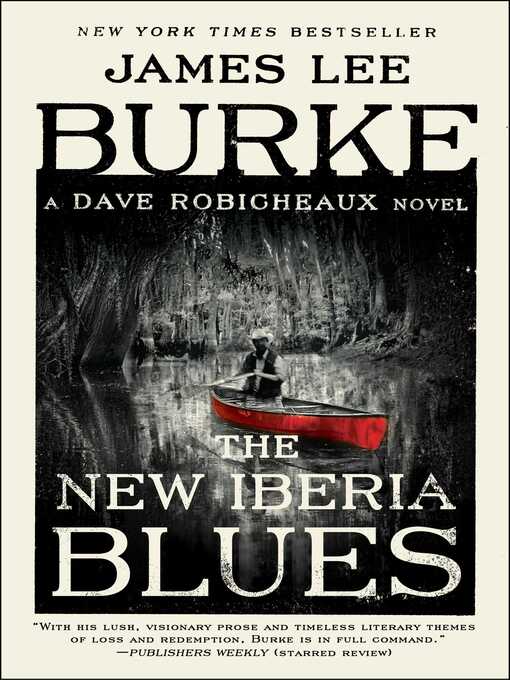
Preview Book
The New Iberia Blues by James Lee Burke ⭐⭐⭐⭐
Despite a new slate of murders to investigate and a new love to provide hope, Sheriff's Detective Dave Robicheaux provides still more evidence that nothing ever really changes in Louisiana's New Iberia Parish.Dave is feeling his age. Although his adopted daughter, Alafair, complains that he treats her like a child, he has to acknowledge that she's an attorney, a novelist, a screenwriter, and an adult who's presumably capable of managing her relationship with Lou Wexler, the producer of native son Desmond Cormier's latest film, now shooting in New Iberia and environs. Even as he's pointing out that Wexler's much too old for Alafair, Dave's embarrassed to have been smitten with his new partner, Bailey Ribbons, who's basically his daughter's age. All of which ought to take a back seat to the escape of convicted killer Hugo Tillinger from a prison hospital and the death of Lucinda Arceneaux, a minister's daughter who's been shot full of heroin and crucified in Weeks Bay. As usual, however, the case is deeply entangled with Dave's personal life, and the links are only tightened by the murders of ex-courtroom janitor Joe Molinari and Travis Lebeau, a confidential informant working for Dave's friend Cletus Purcel. It would be nice and neat to think that they'd all been killed by Hugo Tillinger--or by Chester "Smiley" Wimple, the wide-eyed, psychopathic avenger who's already crossed Dave's path (Robicheaux, 2018). In New Iberia, though, nothing is ever nice or neat, and even Desmond Cormier's dreamy fixation on the closing scene of the classic Western My Darling Clementine, which ought to be a sign of his nostalgic attachment to a noble image of mortality, ends up attracting him to Bailey Ribbons, whom he sees as another Clementine, placing himself along with virtually everyone else in the parish on a collision course with Dave.Many of the character types, plot devices, and oracular sentiments are familiar from Burke's earlier books. But the sentences are brand new, and the powerful emotional charge they carry feels piercingly new as well.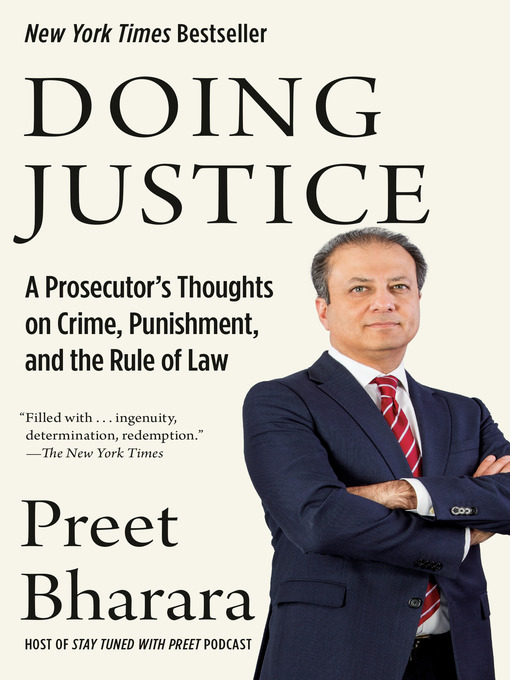
Preview Book
Doing Justice by Preet Bharara ⭐⭐⭐⭐
In this fascinating combination of memoir and ethical-legal manifesto, former U.S. attorney Bharara posits that "the model of the American trial has something to teach us... about debate and disagreement and truth and justice." He leads readers through the work of the U.S. Attorney's Office in Manhattan, in sections dedicated to inquiry (asking questions, conducting fair interrogations), accusation (choosing if and when to levy charges), judgment (trials, verdicts), and punishment (sentencing, prison reform). His prose has the quality of a well-written speech, with philosophical pronouncements ("Doing justice sometimes requires... a spark of creativity or innovation") followed by supporting tales from both his legal career and his personal life, recounted in a superbly accessible and conversational, even humorous, tone (at one point contrasting media depictions of justice with "the real world... where testosterone doesn't flow like a river in the streets"). Bharara also reminds readers that, while the law is an incredible tool, it is people who create or corrupt justice. With its approachable human moments, tragic and triumphant cases, heroic investigators, and depictions of hardworking everyday people, this book is a rare thing: a page-turning work of practical moral philosophy.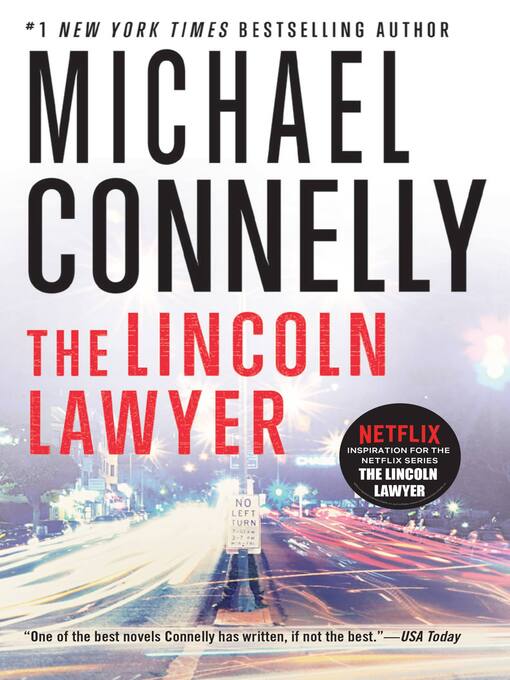
Preview Book
The Lincoln Lawyer by Michael Connelly ⭐⭐⭐⭐½
Attorney Mickey Haller, who's making his fourth appearance in Connelly's April novel, The Fifth Witness, got his start in this 2005 legal thriller, the audio version of which is being reprised to tie in with the Lionsgate film adaptation. Its return is welcome. The book about a defense attorney who uses a Lincoln town car for an office is richly plotted, humorous, suspenseful, and full of surprisingly human touches. It's also populated by a large cast of colorful characters that allow Adam Grupper the opportunity to strut his stuff, shifting effortlessly from gruff, hardcore bikers to Beverly Hills society matrons. But he really shines during the poignant scenes involving Haller and the client whose trial he lost and the highly charged confrontation scenes between him and the homicidal socialite playboy Louis Roulet whose trial he fears he may win.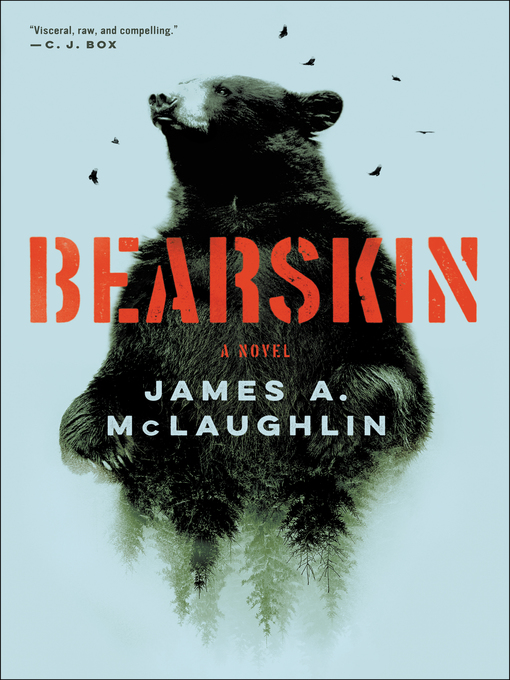
Preview Book
Bearskin by James A. McLaughlin ⭐⭐⭐½
As taut as a crossbow and as sharp as an arrowhead, McLaughlin’s debut unfolds in the Appalachian wilderness of Virginia, a landscape whose heart of darkness pulses viscerally through its characters. Rice Moore is working as a biologist caretaker at the vast Turk Mountain Preserve when he discovers that poachers are killing bears to sell their organs on overseas drug markets. Rice’s efforts to curtail their activities antagonizes locals who raped the last caretaker and left her for dead, and—worse—it alerts agents of Mexico’s Sinaloa drug cartel, from which Rice has been fleeing for reasons revealed gradually, to his whereabouts. McLaughlin skillfully depicts Rice, revealing quirks and peculiarities of his personality that show how “his hold on what he’d always believed was right and what was wrong had grown fatigued, eventually warping to fit the contours of the world he inhabited”—a disconcerting revelation that helps establish the suspenseful feeling that anything can happen. Rice’s story builds toward violent confrontations with the poachers, the cartel, and nature itself. The novel’s denouement, a smoothly orchestrated confluence of the greater and lesser subplots, plays out against a tempest-tossed natural setting whose intrinsic beauty and roughness provide the perfect context for the story’s volatile events. This is a thrilling, thoroughly satisfying debut.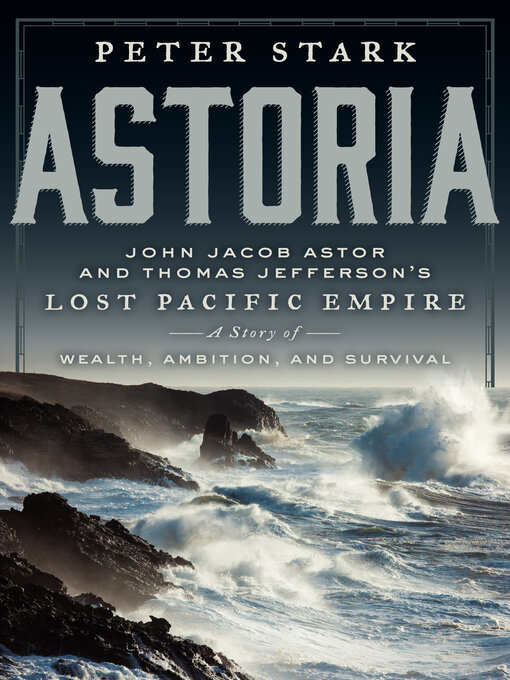
Preview Book
Astoria by Peter Stark ⭐⭐⭐⭐
At the dawn of the 19th century, America's Eastern coast had largely been settled, but the West remained largely uncharted and undeveloped. In 1810, entrepreneur John Jacob Astor proposed to Thomas Jefferson that Astor start a trading colony in what is now Oregon. In a page-turning tale of ambition, greed, politics, survival, and loss, historian Stark (The Last Empty Spaces) chronicles Astor's mad dash to establish a fur-trading company, Astoria, which would capture the territory's wealth and allow Jefferson to inaugurate his vision of a democracy from sea to shining sea. Astor sent two parties to build his empire, one by sea and one by land. They were to reach the Pacific coast at the same time, but dissension among the leaders of the overland party, as well as Indian attacks and other logistical difficulties, kept it from arriving according to plan. The sea party aboard the Tonquin was scarcely more fortunate. The establishment of the short-lived Astoria coincided with the War of 1812, and in October 1813, Duncan McDougall sold out the trading post to the British. Stark eloquently concludes that though Astoria failed, Astor's vision and drive pushed settlers to establish a Western presence, altering the shape of the American nation.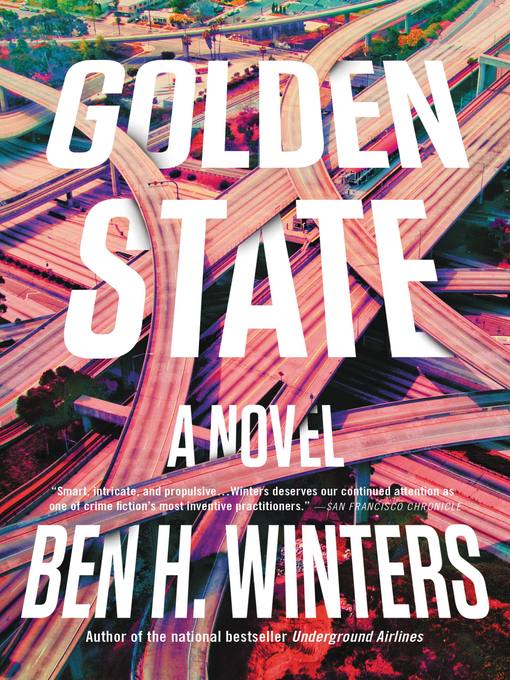
Preview Book
Golden State by Ben Winters ⭐⭐⭐
Tell a fib, a whopper, a confabulation in California, and, promises Winters (The Last Policeman, 2013, etc.), you'll wind up in a heap of trouble."Any assault on reality, any infusion of falsehood in the air can't be countenanced, no matter the source." Lying weakens trust, which damages society. It also spoils one's breakfast. Laszlo Ratesic is just tucking into his chicken and waffles as Winters' yarn opens, but then he, a noted "speculator" in the employ of the Speculative Service, happens to catch the tail end of a prevarication. "Somebody's telling lies in here," he pronounces, "and it's making it hard to eat." It's Ratesic's special skill, shared by only a few, to be able to ferret out lies as they're being hatched, in this case by a kid who's been stealing his mom's pills and takes it on the lam, to Ratesic's joy, since "it's the part I like: pure law enforcement, my feet in the boots and the boots on the ground, me breathing heavy and charging after a liar." Alas, even in the independent nation called Golden State, there are those who would adorn and adjust the truth, even when it comes close to Ratesic--say, in the matter of the deceased brother for whom he continues to mourn. And are things really all that horrific out in the country that lies beyond the Shangri-La of free California, where the vaunted "Objectively So" may differ in kind and degree? Well, the mind plays tricks, and so does the tongue, and Ratesic finds himself caught up in a web that even he couldn't foresee. In some details, Winters' story might have fallen out of a forgotten file drawer at Philip K. Dick's pad, though Winters takes a less bleak view of humankind than the master of bad-vibes future California; though somewhat less surprisingly inventive than the author's Underground Airlines (2016), it's still a skillful and swift-moving concoction.For those who like their dystopias with a dash of humor.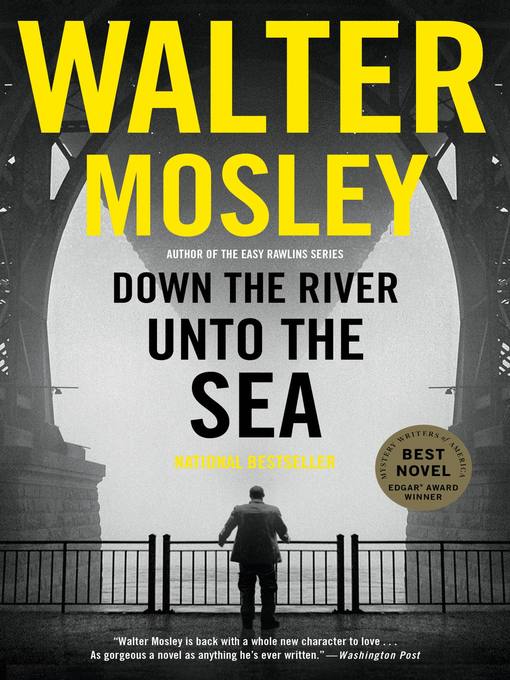
Preview Book
Down the River unto the Sea by Walter Mosley ⭐⭐⭐½
Former NYPD detective Joe King Oliver, now the owner-operator of King Detective Service, investigates two cases of gross injustice in this excellent standalone from MWA Grand Master Mosley (Charcoal Joe and 13 other Easy Rawlins novels). Thirteen years earlier, Oliver was convicted on bogus assault charges, which ended his police career and his marriage. He spent nine months in jail before the charges were dropped and he was released without explanation. Oliver now learns that a crooked cop was behind the frame. Meanwhile, he is approached by Willa Portman, an intern for the lawyer representing Leonard Compton, a militant journalist who’s on death row for the murder of two policemen three years earlier. Portman says the killings were self-defense. Oliver, who faces a corrupt world with unflinching honesty and ruthlessness, enlists the aid of Melquarth Frost, a hardened career criminal, to even the odds in both cases. The novel’s dedication—to Malcolm, Medgar, and Martin—underlines the difference that one man can make in the fight for justice.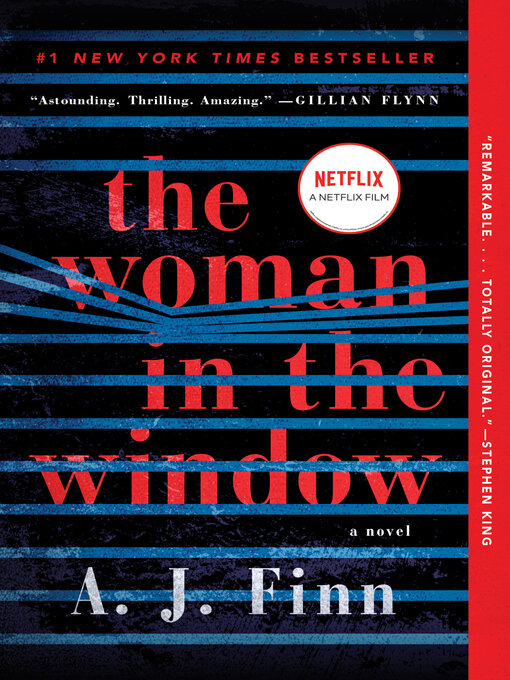
Preview Book
The Woman in the Window by A. J. Finn ⭐⭐⭐⭐
A lonely woman in New York spends her days guzzling merlot, popping pills, and spying on the neighbors--until something she sees sucks her into a vortex of terror."The Miller home across the street--abandon hope, all ye who enter here--is one of five townhouses that I can survey from the south-facing windows of my own." A new family is moving in on her Harlem street, and Dr. Anna Fox already knows their names, employment histories, how much they paid for their house, and anything else you can find out using a search engine. Following a mysterious accident, Anna is suffering from agoraphobia so severe that she hasn't left her house in months. She speaks to her husband and daughter on the phone--they've moved out because "the doctors say too much contact isn't healthy"--and conducts her relationships with her neighbors wholly through the zoom lens of her Nikon D5500. As she explains to fellow sufferers in her online support group, food and medication (not to mention cases of wine) can be delivered to your door; your housecleaner can take out the trash. Anna's psychiatrist and physical therapist make house calls; a tenant in her basement pinch-hits as a handyman. To fight boredom, she's got online chess and a huge collection of DVDs; she has most of Hitchcock memorized. Both the game of chess and noir movie plots--Rear Window, in particular--will become spookily apt metaphors for the events that unfold when the teenage son of her new neighbors knocks on her door to deliver a gift from his mother. Not long after, his mother herself shows up...and then Anna witnesses something almost too shocking to be real happening in their living room. Boredom won't be a problem any longer.Crackling with tension, and the sound of pages turning, as twist after twist sweeps away each hypothesis you come up with about what happened in Anna's past and what fresh hell is unfolding now.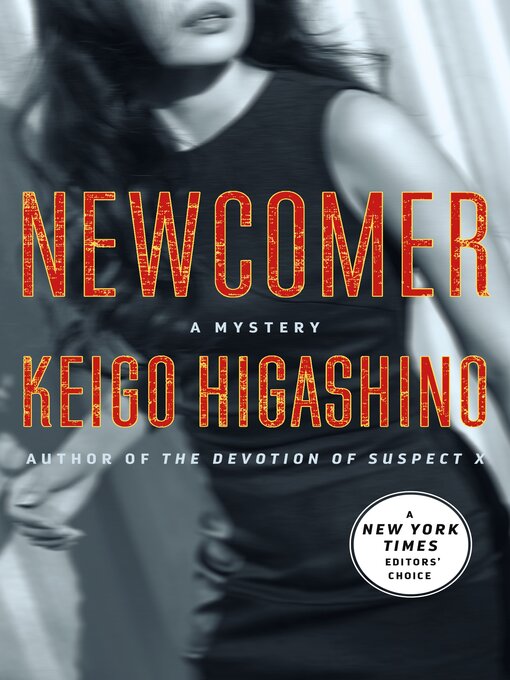
Preview Book
Newcomer by Keigo Higashino ⭐⭐⭐⭐
In Higashino’s satisfying second novel featuring Kyoichiro Kaga to be published in English (after 2014’s Malice), the Columbo-like Tokyo police detective pursues loose ends in the case of the strangulation murder of Mineko Mitsui, a divorcee estranged from her only child, whose friends insisted that “she was the last person on earth to have enemies.” Kaga believes that his responsibilities as a homicide investigator extend to finding ways to comfort those traumatized by violent crime. He begins with a family that runs a store that sells rice crackers to ascertain whether an insurance salesman who claimed he was in Mineko’s apartment shortly before her death on business had an alibi. Other threads include the identity of the person who bought an assortment of pastries found at the scene of the crime, and why the dead woman purchased an expensive pair of kitchen scissors. Although the solution is less elaborate than those in the author’s Detective Galileo novels, the end result is a police procedural puzzle mystery that comes across as more realistic.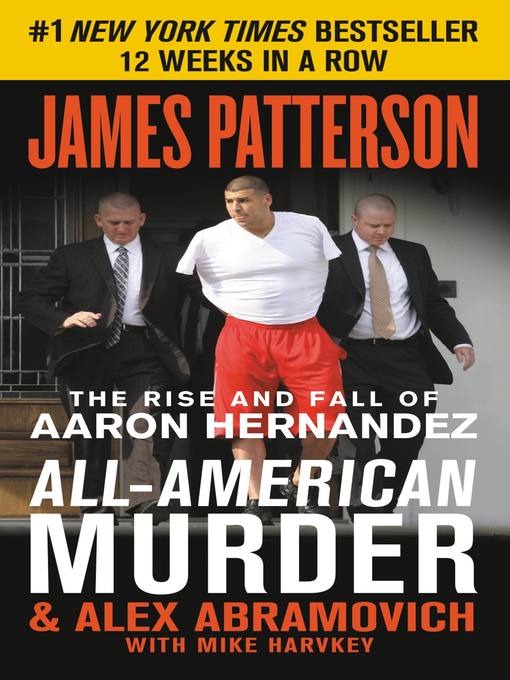
Preview Book
All-American Murder by James Patterson ⭐⭐⭐⭐
The rapid-fire tale of one of the most infamous true-crime stories of the past decade.As Patterson (The People vs. Alex Cross, 2017, etc.) and Abramovich (Bullies: A Friendship, 2016) demonstrate early on, Aaron Hernandez (1989-2017) appeared to have it all. A football star in Connecticut, he was recruited to play at the University of Florida, where he was a standout tight end. Although there were a few whispers of behavioral issues when he was in Gainesville that led to him dropping in the NFL draft, Hernandez was drafted by the New England Patriots. His trajectory continued to rise in the NFL, where he made the Pro Bowl and eventually earned a contract extension worth $40 million. Then it all went awry. In 2015, Hernandez was convicted of the 2013 murder of his fiancee's sister's boyfriend and later put on trial--though acquitted--for a double murder in Boston that happened before the murder for which he was convicted (and which the authors clearly believe he committed). The handsome and charming but volatile football star was sentenced to life in prison without the possibility of parole; in 2017, he was found dead in his cell of an apparent suicide. As can be expected in any book with Patterson's name on the cover, the authors tell the Hernandez tale in page-churning fashion. The book, just over 380 pages of text, contains 97 chapters as well as a prologue, coda, and epilogue, virtually none more than five pages long, most three or four. This approach will undoubtedly keep readers moving, but it also leaves little room for depth and nuance. The book also lacks footnotes, endnotes, a bibliography, or any other sourcing.There is a reason why true crime sells, of course, especially when it involves famous people: A blend of gore, fame, and voyeurism is a compelling mixture in our violent, fame-obsessed society. There is also a reason why the genre has a reputation for gratuitousness. A middling true-crime saga that fails to answer a significant question: Why?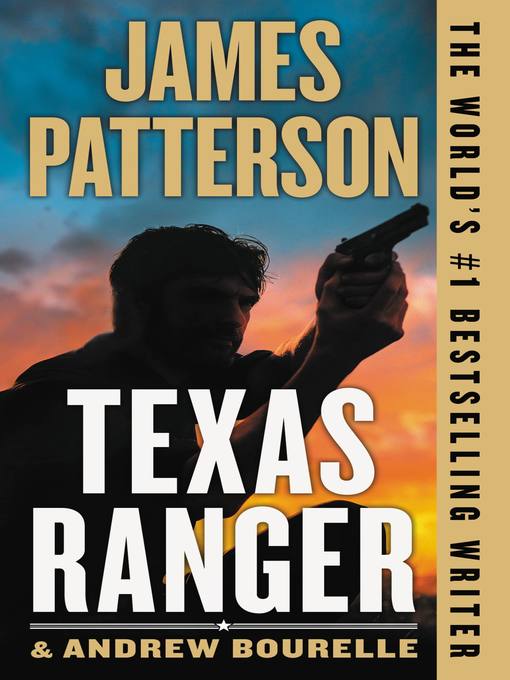
Preview Book
Texas Ranger by James Patterson ⭐⭐⭐⭐
Texas Ranger has got to be one of the very best James Patterson books that I have read in many years. I really like reading his books, especially his Women's Murder Club series and his Private series. I just couldn't put it down. Being in a law enforcement family, it was so interesting and seemed to be so real. I liked the storyline; it wasn't anything you really couldn't believe happening. He kept me wondering who-dun-it until about 1/2 way through but I still wanted to finish it to see how all the characters would end up. I was not disappointed at all! I highly recommend this book to all who love mysteries, murder and in the middle of all of it; the love of your family and friends.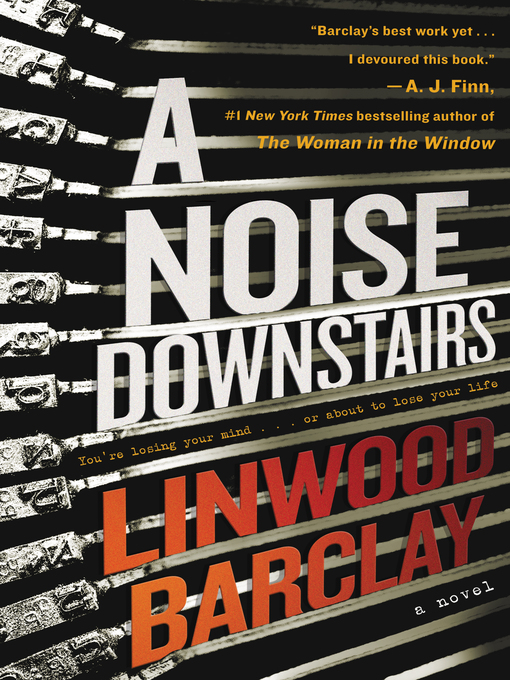
Preview Book
A Noise Downstairs by Linwood Barclay ⭐⭐⭐½
College professor Paul Davis, the protagonist of this fast-paced psychological thriller from bestseller Barclay (Parting Shot), has suffered from PTSD since the night his respected colleague and mentor, Kenneth Hoffman, attacked him outside their small town of Milford, Conn. Kenneth, who confessed to the murders of the two women whose bodies were in his car at the time, is now in prison. In order to encourage Paul, whose short-term memory has been spotty since the incident, to start work on a novel he wants to write, his wife brings home an old typewriter. Soon Paul begins hearing noises in the night coming from the typewriter, which happens to be much like the one Kenneth made his victims write their final notes on. Paul’s theory that the typewriter might be haunted has his wife and his therapist concerned that he might actually be losing his mind. But is there a more sinister answer? Barclay carefully conceals hidden motives and secret lives until the startling conclusion. Harlan Coben fans will find much to like.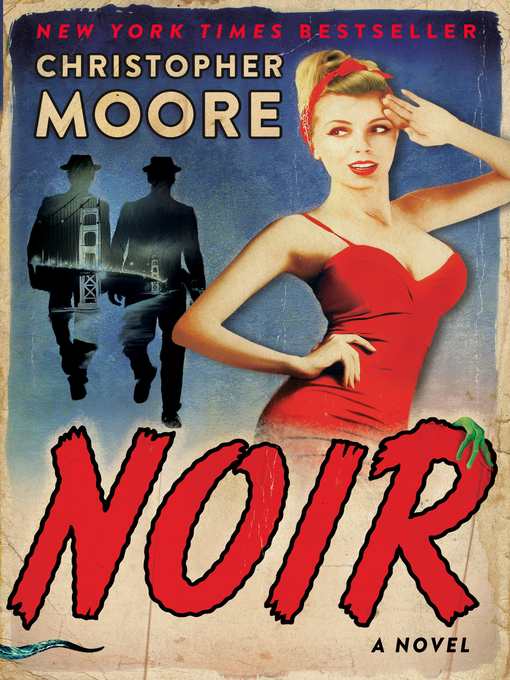
Preview Book
Noir by Christopher Moore ⭐⭐⭐½
A regular joe stirs up a whole pot of trouble when he meets a damsel in distress.Renowned satirist Moore (Secondhand Souls, 2015, etc.) offers up a soft-boiled take on the hard-boiled tradition personified by the likes of Dashiell Hammet and Raymond Chandler in this messy, comic mystery that often goes off the rails. The book does offer a fascinating setting in San Francisco circa 1947, a throwback to a city the author clearly knows and loves. Our palooka of a protagonist is Sammy "Two Toes" Tiffin, a partially lame grifter who tends bar at Sal's Saloon between various schemes. Sammy gets more than he bargained for when a spectacular blonde "tasty bit of trouble" named Stilton wanders into his joint. Before you know it, Sammy has the hots for "the Cheese," a jones that brings him all manner of trouble. The book employs no end of snappy dialogue straight out of a Jimmy Cagney movie, but the device can't save it from its meandering, distracted plot. In addition to the Cheese, we meet General Remy, a conspiring bureaucrat on leave from Roswell Army Air Field; "The Kid," a profane rug rat Sammy employs from time to time; Eddie Moo Shoes, Sammy's entree into Chinatown's underworld; Lone Jones, a good-natured boxer who insists he's not black; a dirty cop named Pookie O'Hara; and an assorted mix of gangsters, cabbies, drag queens, and other denizens of San Francisco. Moore's introduction of an interrupting, semiomniscient second narrator between Sammy's first-person tale can be jarring, even if it is explained late in the book. The novel finally coalesces in its back half as Sammy invades a shady cabal called the Bohemian Club to rescue the Cheese, pretty much from herself, and they both get a surprise when they run across General Remy's secret, all while being chased by mysterious "men in black." 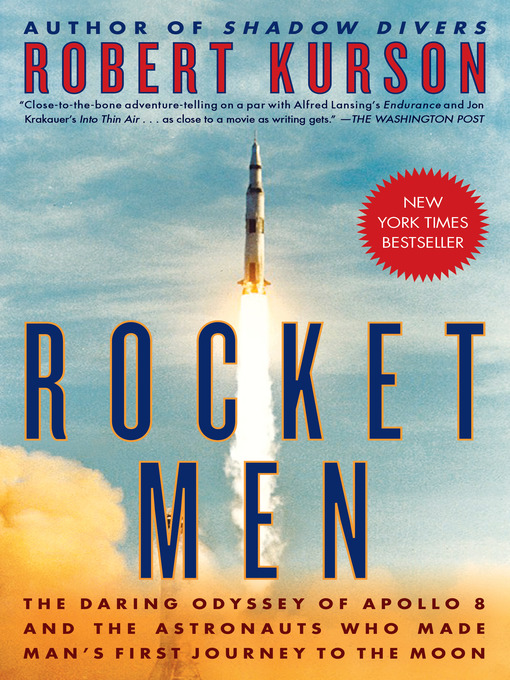
Preview Book
Rocket Men by Robert Kurson ⭐⭐⭐⭐½
An exuberant history of a major turning point in early American spaceflight, possibly "the riskiest and most thrilling of all the Apollo missions."Man's first flight to the moon occurred seven months before the actual landing. While not ignored, the Apollo 8 mission has never achieved the iconic status of Apollo 11. This enthusiastic account aims to remind readers of its significance. "This is the best space story of all, I thought, and I wasn't the only one," writes journalist Kurson (Pirate Hunters: Treasure, Obsession, and the Search for a Legendary Pirate Ship, 2015, etc.). He notes that after the national horror at the 1957 launch of Sputnik, everyone assumed that the Soviet Union enjoyed technical superiority and was racing to beat us to the moon. In fact, only the latter was true. Kurson opens the narrative in summer 1968 with a top-secret intelligence report that the Soviets might attempt a manned circumlunar flight by year's end. The Apollo mission was scheduled for 1969, but George Low, one official, maintained that the U.S. could match the Soviets. Some NASA leaders objected, and almost everyone agreed that "Sending Apollo 8 to the moon in December might be the boldest and riskiest and most important mission NASA ever attempted." Since beating the Soviets to the moon was Apollo's purpose, it had to be tried. The author offers biographies of those involved, a nuts-and-bolts account of four months of training and the flight itself, which was not without glitches, and digressions into events of 1968 America, torn by strife over civil rights and the Vietnam War. Most readers know how the story turned out, so Kurson strains to generate suspense, and space buffs will quickly realize that this is a journalistic account aimed at a mass audience (clue: the astronauts' courtships and family lives receive prominent attention).An overly breathless yet entertaining account of a pioneering space mission that deserves to be better known.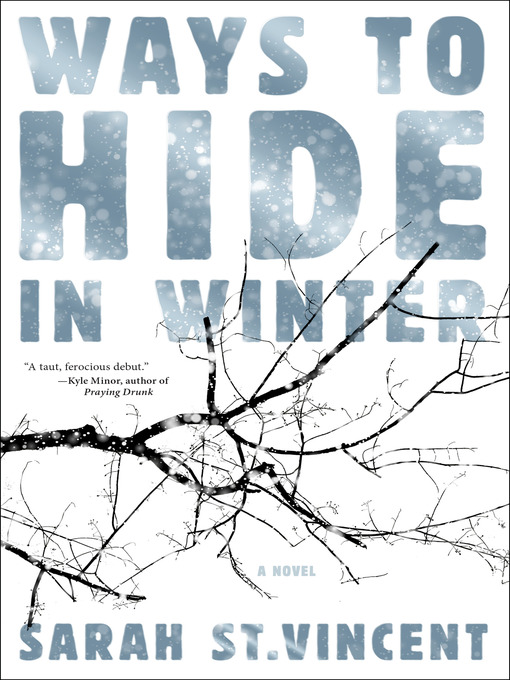
Preview Book
Ways to Hide in Winter by Sarah St.Vincent ⭐⭐⭐½
A mysterious visitor from Uzbekistan forms an unlikely friendship with a stunned young woman in retreat from life in rural Pennsylvania.Four years after the car crash that killed her husband, Amos, Kathleen is still "enveloped in a haze of fear" that clearly has a source beyond the wreck she survived. Having quit college at Amos' behest, she's now marking time, working at a store in a state park visited off-season by only a few hunters, hikers--and, one day in December 2007, a walk-in named Daniil who wants to stay at the park hostel. Being the only guest suits him just fine; it emerges that people are looking for Daniil and he has good reason to hide. "I betrayed people," he tells Kathleen, but whether he was a government informant or something worse remains a question as the two tentatively bond over books (Crime and Punishment perhaps a slightly too-obvious metaphor) and chess. Around them, St. Vincent quietly paints a portrait of small-town, working-class America, hollowed out by economic insecurity, where the only way out seems to be joining the Army, like Kathleen's brother and her best friend Beth's husband, to fight wars whose purposes no one understands. "They sold us pain and said it was fine," Kathleen thinks late in the novel, as she's begun to acknowledge how deeply angry she is for many reasons. "They had such contempt for us, and they thought we didn't see it. Just because we lived where we lived and were who we were." The author's background as a human rights attorney and advocate for victims of domestic violence serves her well as she makes subtle connections between socio-economic powerlessness and male rage as the story moves toward a harrowing denouement that hauntingly suggests even evildoers can be consumed with remorse. St. Vincent closes with an image as ambivalent and resonant as the rest of her fine work: "light interrupted by darkness, darkness interrupted by light."Sensitive prose conveys both compassion and outrage in this impressive debut.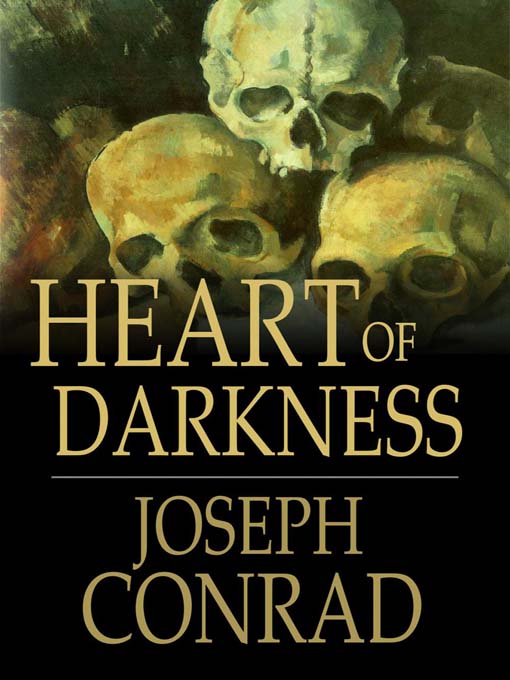
Preview Book
Heart of Darkness by Joseph Conrad ⭐⭐⭐½
Heart of Darkness centers around Marlow, an introspective sailor, and his journey up the Congo River to meet Kurtz, reputed to be an idealistic man of great abilities. Marlow takes a job as a riverboat captain with the Company, a Belgian concern organized to trade in the Congo. As he travels to Africa and then up the Congo, Marlow encounters widespread inefficiency and brutality in the Company’s stations. The native inhabitants of the region have been forced into the Company’s service, and they suffer terribly from overwork and ill treatment at the hands of the Company’s agents. The cruelty and squalor of imperial enterprise contrasts sharply with the impassive and majestic jungle that surrounds the white man’s settlements, making them appear to be tiny islands amidst a vast darkness.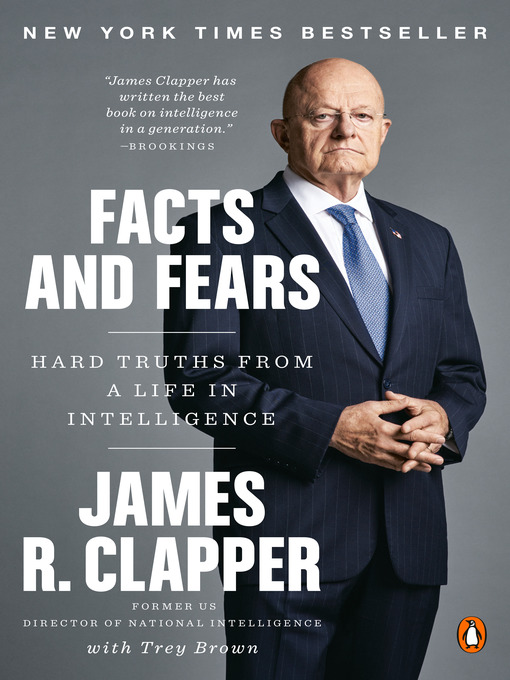
Preview Book
Facts and Fears by James R. Clapper ⭐⭐⭐½
As the nation's top spymaster, former Director of National Intelligence Clapper vowed never to publish a memoir. Then he became enraged at Russian interference in the 2016 presidential campaign on behalf of Donald Trump, and he changed his mind about writing a book.A few weeks before Trump's surprise victory, Clapper and Homeland Security Secretary Jeh Johnson issued a public warning about Russian dirty tricks meant to influence American voters. The author felt dismay when the vast majority of Americans apparently paid no attention to the warning. In the introduction, Clapper states unambiguously that following the election, "the CIA and the FBI continued to uncover evidence of preelection Russian propaganda, all intended to undermine [Hillary] Clinton and promote Trump, and the Intelligence Community continued to find indications of Russian cyber operations to interfere with the election." The author then devotes the next 300 pages to the trajectory of his career, during which he served Republican and Democratic presidents from positions inside and outside the military. From 2010 to 2017, Clapper served as President Barack Obama's nonpartisan senior intelligence adviser. As the author's chronicle of his spy management unfolds chronologically, he offers insights into U.S. relations with North and South Korea, Iran, Iraq, Somalia, Syria, Ukraine, and, of course, Russia, with an emphasis on Vladimir Putin's determination to damage the U.S. in any way short of nuclear warfare. In the final quarter of the text, Clapper demonstrates his increasing exasperation with the current president's lies, inability to deal rationally with other nations, utter lack of respect for worthy diplomats and politicians, and, especially, his cozying up to Putin.The book will be judged, fairly or unfairly, by what comes next. If Clapper's revelations undermine the support of an irrational Trump among voters, he will consider the book a success, however limited. However, if the book fails to contribute to the halting of Trump's widespread corruption, Clapper makes clear he will do whatever he can from his retirement to protect what is left of American democracy.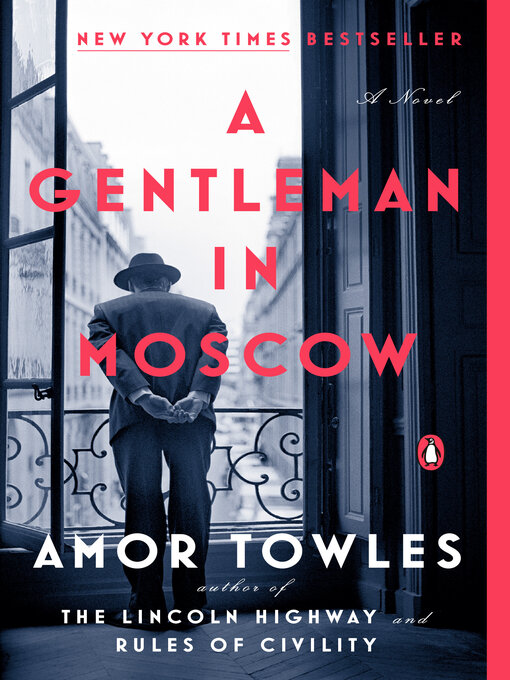
Preview Book
A Gentleman in Moscow by Amor Towles ⭐⭐⭐⭐
House arrest has never been so charming as in Towles’s second novel (following Rules of Civility), an engaging 30-year saga set almost entirely inside the Metropol, Moscow’s most luxurious hotel. To Count Alexander Ilyich Rostov, the Metropol becomes both home and jail in 1922, when the Bolsheviks spare his life (on the strength of a revolutionary poem written in 1913, when the count was at university). Forbidden to venture out, Rostov explores the intricacies of the grand structure and befriends its other denizens: precocious nine-year-old Nina Kulikova, a bureaucrat’s daughter who demands instruction on how to be a princess; Emile, virtuosic chef of the Boyarsky, “the finest restaurant in Moscow”; Andrey, the Boyarsky’s French expatriate maître d’; and the beautiful actress Anna Urbanova, who becomes the count’s regular visitor and paramour. Standing in for the increasingly despotic Soviet government is the Bishop, a villainous waiter who experiences gradual professional ascent—he becomes headwaiter of the Boyarsky, finally putting his seating-chart and wine-pairing talents to use. But when the adult Nina returns to ask Rostov for a favor, his unique, precariously well-appointed life must change once more. Episodic, empathetic, and entertaining, Count Rostov’s long transformation occurs against a lightly sketched background of upheaval, repression, and war. Gently but dauntlessly, like his protagonist, Towles is determined to chart the course of the individual.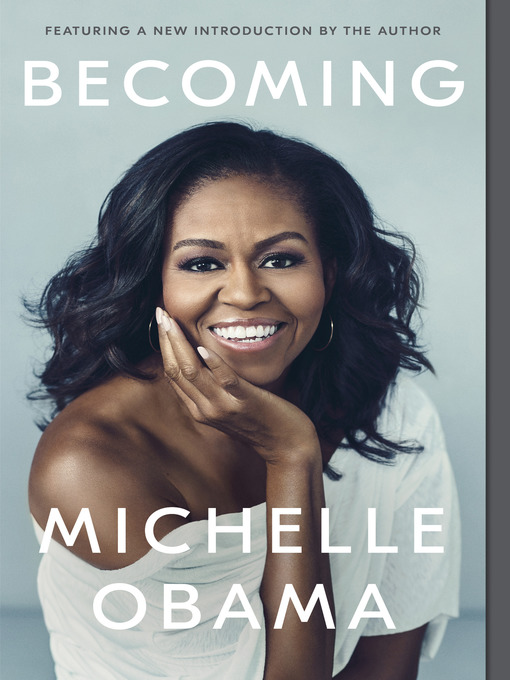
Preview Book
Becoming by Michelle Obama ⭐⭐⭐⭐
In her memoir, a work of deep reflection and mesmerizing storytelling, Michelle Obama invites readers into her world, chronicling the experiences that have shaped her—from her childhood on the South Side of Chicago to her years as an executive balancing the demands of motherhood and work, to her time spent at the world's most famous address. With unerring honesty and lively wit, she describes her triumphs and her disappointments, both public and private, telling her full story as she has lived it—in her own words and on her own terms. Warm, wise, and revelatory, Becoming is the deeply personal reckoning of a woman of soul and substance who has steadily defied expectations—and whose story inspires us to do the same.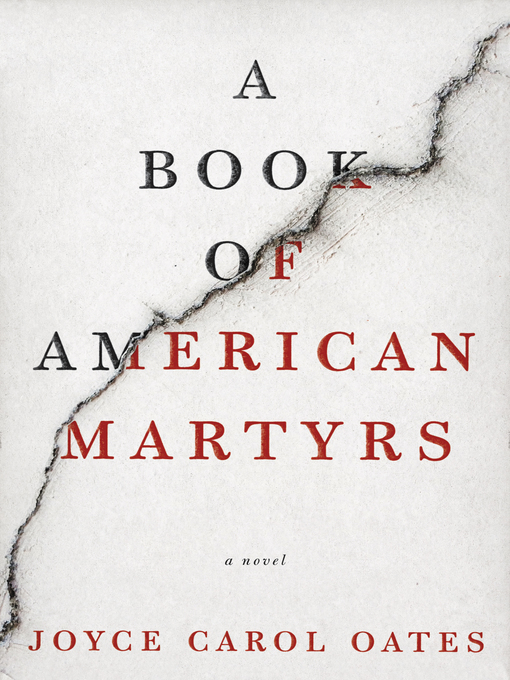
Preview Book
A Book of American Martyrs by Joyce Carol Oates ⭐⭐⭐½
On Nov. 2, 1999 in Muskegee Falls, Ohio, a self-described “soldier of God” named Luther Dunphy loads a shotgun, drives to an abortion clinic near his home, and guns down Dr. Augustus Voorhees as he arrives at work. In this chilling novel, bestselling author Oates (Carthage) approaches one of America’s enduringly divisive topics through the lens of a sprawling family epic. The bulk of the novel deals with the shooting’s aftermath and its impact on the daughters of Dunphy and Voorhees—two women whose lives are permanently shifted by their fathers’ legacy for opposite sides of the contentious abortion-rights debate. Divided into five sections, the book begins by delving into the lives of Dunphy (now on death row) and Voorhees before the narrative finally coalesces around Naomi Voorhees’s floundering attempts to understand her family, leading her to a career in documentary filmmaking and a surprising connection with Dawn “The Hammer of Jesus” Dunphy, whose anger and aggression propel her into a championship-level boxing career. Unfortunately, some of the emotional nuance is thinly developed, with the majority of the characters standing as archetypes of opposing worldviews. Nevertheless, Oates’s sprawling tale presents a sensitively painted portrait of the inextricable quality of grief and the weight of family legacy, showing how unexpected connections can bind people together in counterintuitive ways.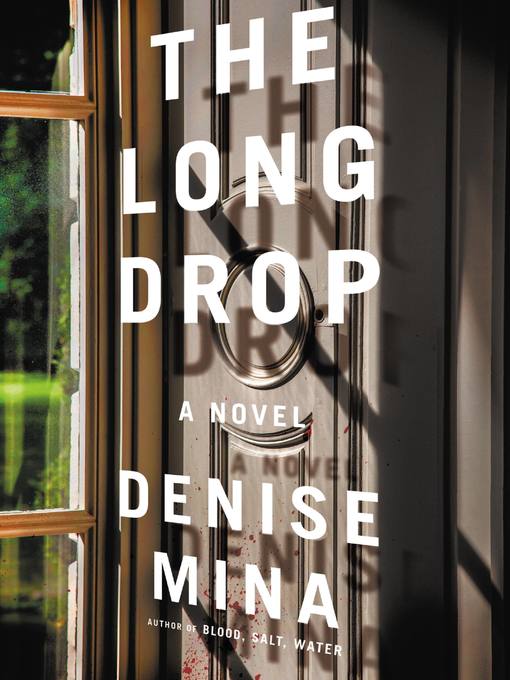
No Preview
The Long Drop by Denise Mina ⭐⭐⭐½
Hard men work their will in 1950s Glasgow.Though somewhat unlike Mina's usual thrillers in many ways, this study of a serial killer shares her persistent themes. Mina has penned three series of novels, each featuring a female protagonist (Blood, Salt, Water, 2015, etc.) struggling against both active criminals and pervasive misogyny. In this story she omits the female protagonist but remains grounded in the casual victimization of Scotland's women. William Watt's family (wife, daughter, and sister-in-law) is slaughtered, and at first Watt is charged with the crimes. Feeling the police are not investigating energetically enough, he reaches out to the Glasgow underworld--and finds Peter Manuel, who claims to know where the gun is buried and much more. In the course of a December evening he and Watt spend drinking together, much that is repellent about Manuel is slowly revealed. Then another family is murdered. Eventually Watt is exculpated, and Manuel is charged with eight counts of murder. The story alternates mostly between that December night of drinking and the subsequent trial. Manuel is delusional, possibly psychotic; but is he alone responsible for the deaths of Watt's family? Watt is a man of some substance, involved in political and real estate machinations that will transform Glasgow. He has a mistress. Do the hard men close ranks around him? Is Manuel, beyond the control of the men who rule his world, sacrificed to preserve one of them? In the end, the answer matters less than the method, as women's lives are degraded, publicly and privately, physically and spiritually, to preserve the ranks of those hard men. In more than one sense, Manuel takes the fall. A terrific exploration of crime and oppression.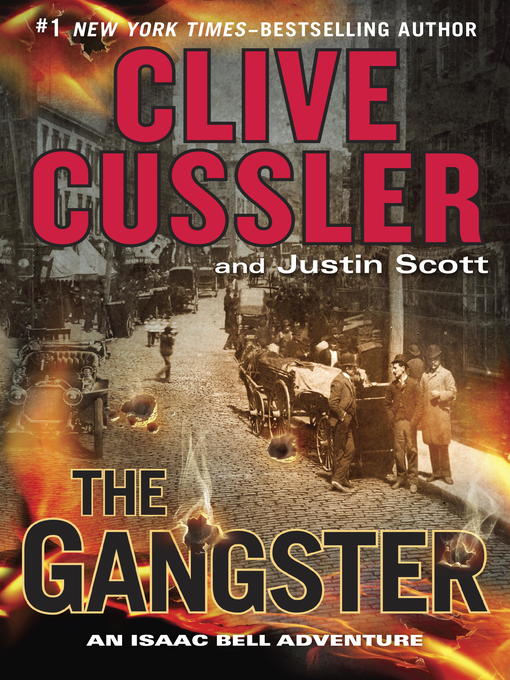
Preview Book
The Gangster by Clive Cussler ⭐⭐⭐⭐
Set in 1906, bestseller Cussler’s thrilling ninth Isaac Bell adventure (after 2015’s The Assassin, also coauthored with Scott) pits Bell, an operative in the Van Dorn Detective Agency, against Antonio Branco, who’s outwardly a respectable New York City businessman but is in fact a ruthless crime boss. Branco is willing to bribe and murder to enhance his profits, and he does both to land a contract to “provision the biggest construction job in America.” Bell has his hands full working to thwart the Black Hand in New York City, a gang that exploits poor Italians and rich alike, and which benefits from the inadequate resources of the NYPD. But he gets even busier when he learns that a member of a “secret tycoon club,” who fears Teddy Roosevelt will learn that he illegally profited from the Panama Canal Treaty, wants the president dead. The fascinating and suspenseful plot compensates for thin characterizations.
Preview Book
Anatomy of a Scandal by Sarah Vaughan ⭐⭐⭐½
Cases don’t come much higher-profile than the potential career-maker assigned to driven British barrister Kate Woodcroft, QC: prosecuting golden boy junior Home Office minister James Whitehouse, the prime minister’s best friend since their boyhood at Eton, for raping the young parliamentary researcher with whom he recently ended a brief affair—in a lift at the House of Commons, no less. But the focus isn’t simply the he said–she said courtroom fencing match, but deeper truths about the nature of privilege and power. Skillfully interweaving the story of the unfolding scandal with James’s and his wife Sophie’s student days at Oxford—as well the drug-fueled, swept-under-the-carpet tragedy there that has informed his relationship with the PM ever since—Vaughan gradually reveals just how shockingly high the stakes are. Such is the strength of this sinewy novel from Vaughan (The Farm at the Edge of the World) that the glossy, tabloid-ready surface proves one of the less interesting facets of the engrossing, twist-filled tale that unspools. 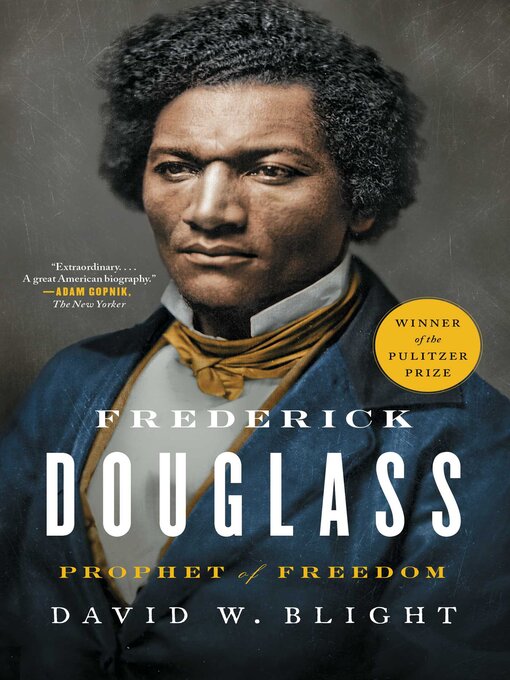
Preview Book
Frederick Douglass by David W. Blight ⭐⭐⭐⭐
Yale historian Blight’s study of runaway slave-turned-abolitionist Frederick Douglass—a “radical patriot” and “prophet of freedom,” a “great voice of America’s terrible transformation from slavery to freedom”—benefits not only from Blight’s decadeslong immersion in the history of American slavery and abolitionism, but also from his access to privately owned sources unavailable to previous scholars. To Blight, Douglass’s character and ideology were rife with paradox, and in this huge and meticulously detailed study he unpacks apparent contradictions: Douglass’s unexpected happiness as an urban slave in Baltimore; his devotion to his wife, Anna, and their children, whom he rarely saw due to his constant travels as an abolitionist orator; his love for the promise he saw in America and hatred of how slavery had degraded it; his repeated revisions of his autobiographical writings as he reinterpreted his experiences; his second marriage to a white woman, an act both socially transgressive and opposed by his children. The Douglass who emerges from this massive work is not always heroic, or even likable, but Blight illuminates his personal struggles and achievements to emphasize what an extraordinary person he was. Though one might wonder, given Douglass’s extensive writings and the numerous works of scholarship discussing him, about the need for yet another biography, it turns out that there was much more to be learned about him.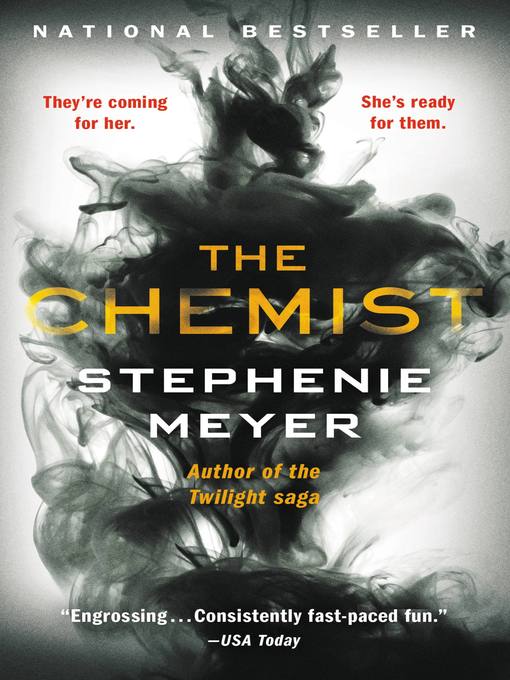
Preview Book
The Chemist by Stephenie Meyer ⭐⭐⭐⭐
A professional torturer on the run from her employers falls in with sexy twin brothers.You probably know Meyer as the then-27-year-old Mormon housewife who woke up from a dream about vampires and gave the world Twilight, though in addition to that series she has already published one adult thriller (The Host, 2008). In her latest, she marries the genres of spy versus spy and throbbing romance novel with good results. Meet Juliana, or Alex, or Casey, or Chris--whatever her alias of the moment is, she's an operative with a medical school background who specializes in chemically controlled torture and interrogation. Somewhere along the line, she learned too much about the secrets of her employers, and she now lives in a state of high-tech paranoia, sleeping in a bathtub wearing a gas mask in a secret location booby-trapped at every possible ingress. When her old boss calls her in for one last mission, she's not sure she isn't being double-crossed--but nonetheless proceeds with the kidnapping of Washington, D.C., schoolteacher Daniel Beach, who's purportedly part of a vile plot to release a virus that will wreak global doom. In fact, he is a man whose deep inner goodness is rivaled only by his scorching outer hotness--but our socially awkward virgin heroine won't realize this until after she's taken him to her secret lair, stripped him naked, strapped him to a table, and injected him with compounds that produce pure agony for 10 minutes at a time. The biochemical magic between them is even more powerful than the nasty drugs, and by the time his identical twin brother, a swashbuckling black-ops type, shows up to kill her and rescue him, love has bloomed in the torture chamber. As they begin to see through the layers of cross and double cross, the two agents decide to join forces and go into hiding together, with the brother of course, on a ranch in Texas with a pack of trained superdogs. A tale of skulduggery, bodice rippery, and shoot-'em-up action unfolds, complete with help from a luscious mistress of disguise who could have stepped right out of a James Bond novel. Rated B for badass.
Preview Book
We Fed an Island by Jose Andres ⭐⭐⭐½
This lovely, energizing story from Michelin-starred chef Andrés and his frequent cookbook coauthor Wolffe (Made in Spain) provides an antidote to passivity and cynicism. Having done food relief work in Haiti in 2010, Andrés was ready to help feed the people of Puerto Rico after the island was ravaged by Hurricane Maria seven year later. Andrés tells how his nonprofit organization thrived despite the fumbling incompetence of government agencies and nonprofits—and an American president who “seemed to have no idea what his role was.” In a matter of days, Andrés and his volunteers had expanded an operation run by his friend Jose Enrique, a San Juan chef, making sandwiches, paellas, and stew (Andres has contempt for the idea that disaster victims deserve only lousy food). In between fighting with red tape–tangled FEMA officials and dealing with the Red Cross’s lack of organization, Andres quickly scaled up an operation with 20,000 volunteers that produced three million meals. “We solved the problems as they popped up,” Andres writes, “as chefs do.” This is a powerful story of the impact a well-meaning group can have on the world.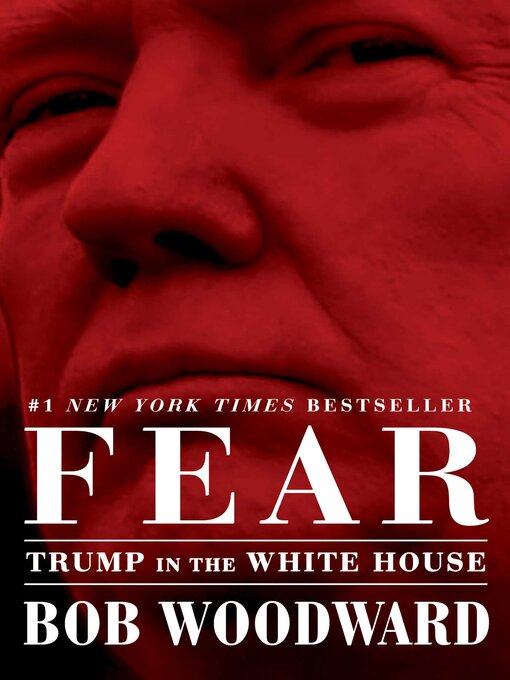
Preview Book
Fear by Bob Woodward ⭐⭐⭐⭐
In a compulsively readable narrative "drawn from hundreds of hours of interviews with firsthand participants and witnesses," Washington Post associate editor Woodward contends that members of the Trump administration took steps to "intentionally block some of what they believed were the president's most dangerous impulses." Woodward deems those actions "no less than an administrative coup d'etat." In the most dramatic example, Gary Cohn, Trump's top economic advisor, removed a draft letter from the Oval Office that terminated a free trade agreement with South Korea, which constituted, in Cohn's view, "a potential trigger to a national security catastrophe." As Cohn had hoped, Trump "never noticed the missing letter." Woodward also offers other sensational anecdotes unrelated to his administrative coup themeâsuch as an argument between chief of staff John Kelly and the head of the Immigration and Customs Enforcement union that was so heated that Trump later said he thought the two were going to get into a fistfightâas well as the occasional positive comment, such as those about the First Couple's affection for each other, and Trump's newspaper-reading habits. He ends with another sensational claim: that John Dowd, Trump's lawyer for the special counsel Russia investigation, told Trump that he would end up behind bars if he agreed to be interviewed by the special counsel, and considered Trump "a fucking liar." Woodward's reporting, with its heavy reliance on "multiple deep background interviews with firsthand sources" who remain anonymous, will be problematic for some, especially those not already inclined to believe the worst about the president. But readers who trust the reporting will find this to be both entertaining and disturbing reading.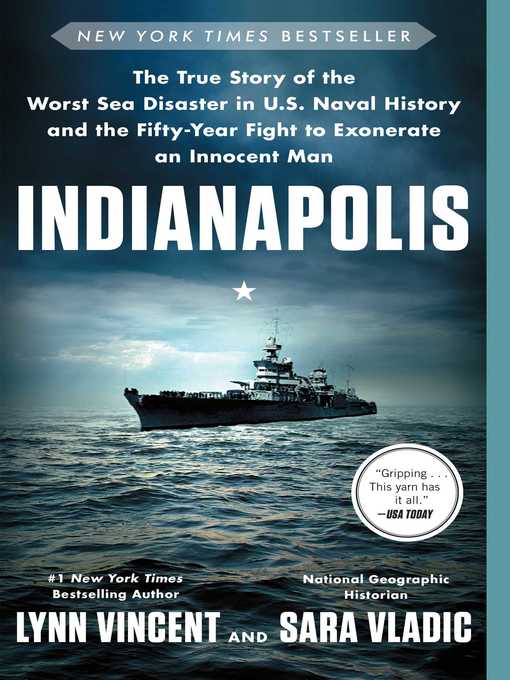
Preview Book
Indianapolis by Lynn Vincent ⭐⭐⭐½
Four days after delivering the world's first atomic bomb to the U.S. flight crew in the Pacific, the USS Indianapolis was sunk by Japanese torpedoes, with a loss of all but 317 of the 1,196 men on board. US Navy veteran Vincent, a No. 1 New York Times best-selling author, and documentary filmmaker Vladic, who's made an award-winning film on the tragedy, investigate what happened and how the decades-long struggle to vindicate the captain unfolded.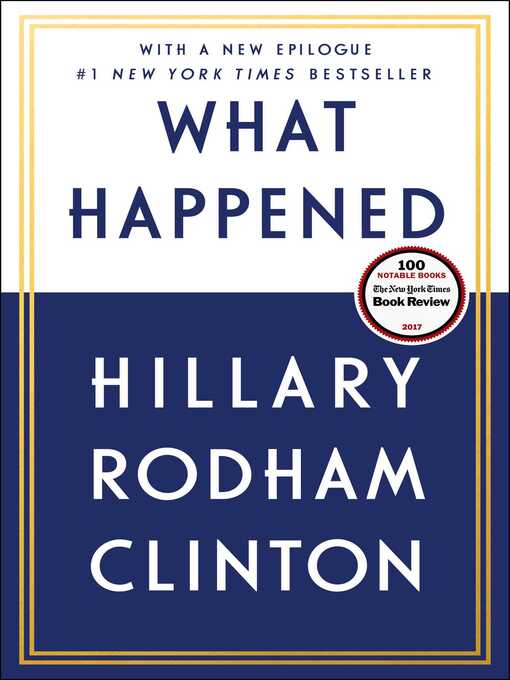
Preview Book
What Happened by Hillary Rodham Clinton ⭐⭐⭐½
Gracious, sometimes-wonkish post-mortem of the last presidential election by its surprise loser, who still can't quite believe...well, what happened."I ran for President because I thought I'd be good at the job," writes Clinton (Hard Choices, 2014, etc.), modestly. She adds, a touch less demurely, "I thought that of all the people who might run, I had the most relevant experience, meaningful accomplishments, and ambitious but achievable proposals, as well as the temperament to get things done in Washington." Against her was arrayed a field of Republican candidates that included the one no one took seriously--but also, as the author notes in a reckoning that is remarkably measured, a whole cultural and political field of opponents, including Russian hackers and a grudge-bearing Vladimir Putin, the crew of WikiLeaks, Bernie Sanders and his devout followers, misogyny, and a few missteps that, refreshingly, Clinton's not shy about owning up to. (One takeaway: don't campaign with pneumonia. Take a day off.) Of the many enemies, writes the author, misogyny was likely the most intractable, even given James Comey, the screams about emails, voter suppression, and Donald Trump's hammering away about "lying Hillary," to say nothing about looming behind her creepily in debate. Mostly, Clinton campaigned against anger, and she could never quite get a handle on how to reckon with it. Pundits have since insisted that Clinton should have spoken more from the heart and been less managed, which isn't really how politics is done--well, until Trump came along and opened the door to a post-truth America. Of all the upshots, that truth business seems to be what bothers Clinton most, but mostly she's understandably amazed, as are so many, to have gone to bed in one America and awoken in another: "I picture future historians scratching their heads, trying to understand what happened. I'm still scratching mine, too." A touch too reserved and polite, given the circumstances, and in need of supplementing by hard-edged books like Jonathan Allen and Amie Parnes' Shattered. Still, a useful book to read--and, for many, to mourn over.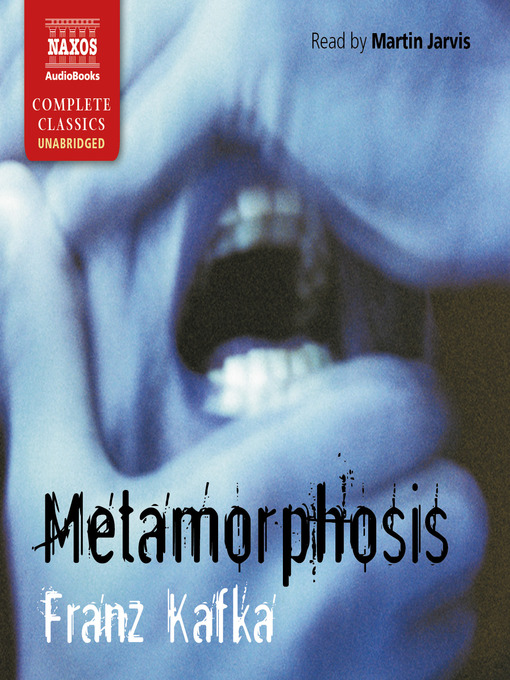
Preview Book
Metamorphosis by Franz Kafka ⭐⭐⭐½
The jet-black comedy that ensues after the luckless Gregor Samsa turns into a gigantic bug. The story loses a bit in translation. A lot of the humor in the original comes from the way Kafka plays the story's absurdities absolutely deadpan, and the visuals oversell the joke, especially since Kuper draws all the human characters as broad caricatures. Even so, he works up a suitably creepy frisson, mostly thanks to his drawing style. Executed on scratchboard, it's a jittery, woodcut-inspired mass of sharp angles that owes a debt to both Frans Masereel (a Belgian woodcut artist who worked around Kafka's time) and MAD magazine's Will Elder. The knotty walls and floors of the Samsas' house look like they're about to dissolve into dust. In the book's best moments, Kuper lets his unerring design sense and command of visual shorthand carry the story. The jagged forms on the huge insect's belly are mirrored by folds in business clothes; thinking about the debt his parents owe his employer, Gregor imagines his insectoid body turning into money slipping through an hourglass. Every thing and person in this Metamorphosis seems silhouetted and carved, an effect that meshes neatly with Kafka's sense of nightmarish unreality.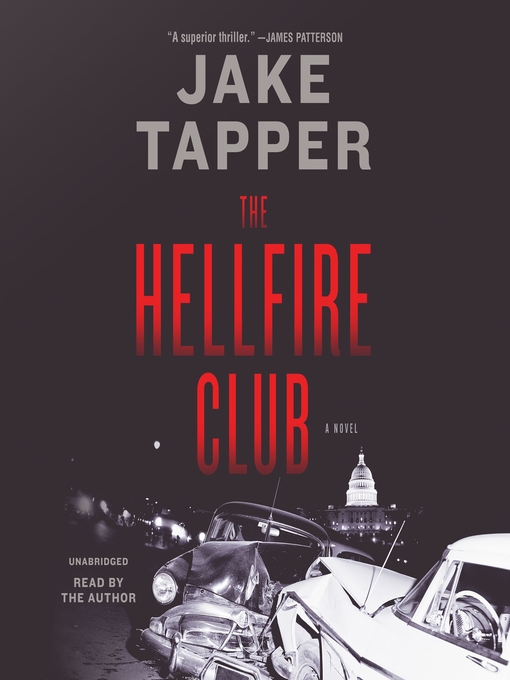
Preview Book
The Hellfire Club by Jake Tapper ⭐⭐⭐
CNN anchor and novelist Jake Tapper narrates a great summer listen as he re-creates 1950s McCarthy-era Washington in this thriller. Tapper uses his best broadcasting voice when describing the trials and tribulations of newly minted Congressman and war hero Charlie Marder as he acclimates to hardball national politics. At times, Tapper's dramatic pacing falters, and his character portrayals are weak, but his overall performance is enjoyable, especially when his characters interact with compelling historical figures like Lyndon Johnson and John F. Kennedy. At the center of the story is Charlie's relationship with his newly pregnant wife, Margaret. Tapper shines when depicting the intimacies of people who are struggling to extricate themselves from the Washington swamp. 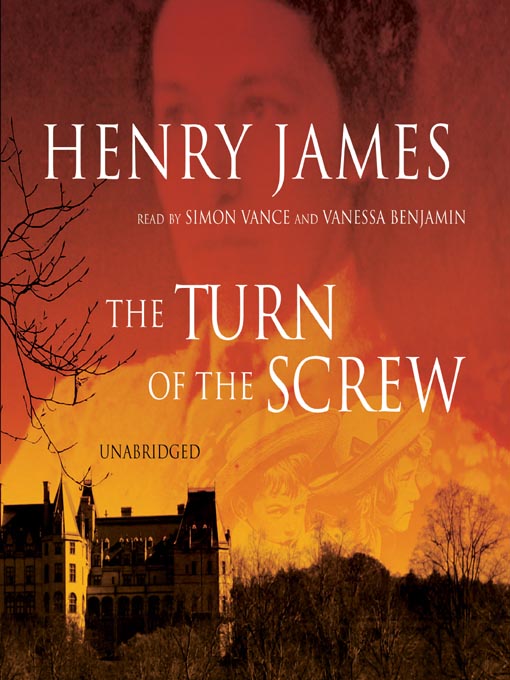
Preview Book
The Turn of the Screw by Henry James ⭐⭐⭐½
The book centers around a woman (the narrator) who takes a job as governess to two young children, Miles and Flora, only to encounter ghostly evils that are trying to capture their attention. The problem is that the children are not only unafraid of the ghosts, they seem to want them around. This, of course, makes them susceptible to embracing the evil that is courting them. It’s a great book to curl up with on a dark and stormy day. It’s a good, old-fashioned ghost story, complete with a sprawling estate and creepy children.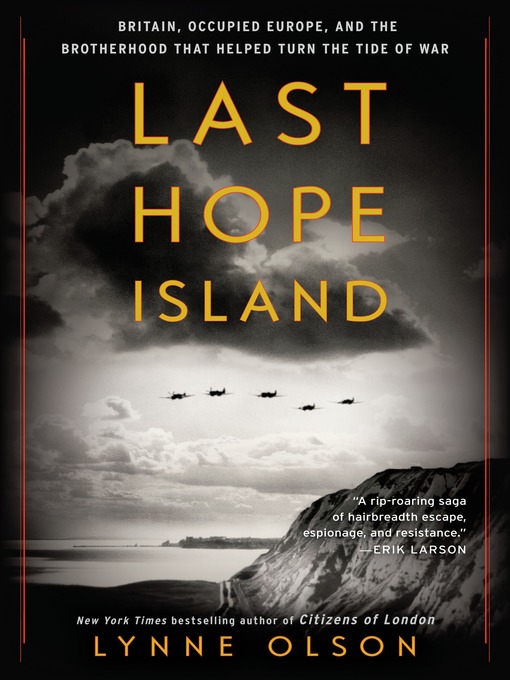
Preview Book
Last Hope Island by Lynne Olson ⭐⭐⭐⭐
A "rich, intensely human story" of European cooperation during World War II.Early on during the war, government officials and many citizens of a host of conquered European nations fled to Britain. Bestselling historian Olson (Those Angry Days: Roosevelt, Lindbergh, and America's Fight Over World War II, 1939-1941, 2013, etc.) writes a vivid history of the war through the eyes of the exiles and compatriots left behind. She reveals inspiring tales of heroism, suffering, and sacrifice without ignoring too many incidents of betrayal, missed opportunities, and incompetence. First to arrive were the Poles and Czechs. That Britain had betrayed Czechoslovakia to Hitler in 1938 and remained passive while the Wehrmacht conquered Poland in 1939 did not lessen their commitment. Their military units fought with the Allies, and their prewar intelligence skills were far superior. The brilliant Bletchley Park decoders could not have succeeded without the earlier innovations of Polish codebreakers. In 1940, leaders from conquered Norway, Denmark, Belgium, and Holland formed exile governments. Though no significant French political figures came to Britain, Winston Churchill encouraged the obscure brigadier general Charles de Gaulle. Olson reminds readers that, until late 1942, none of this activity greatly inconvenienced Hitler or his plans. Britain's victory (really a draw) in the Battle of Britain was followed by a numbing series of blunders and defeats. Joining the resistance was suicidal; even military buffs will recoil at the murderous ineptitude of early British secret operations. By 1943, however, the Allies had gotten their act together. Their armies were advancing, and the resistance was functioning efficiently. Feel-good histories of World War II have fallen out of fashion, but Britain's sole stand against Hitler remains inspiring. Despite the title, the occupied nations that she sheltered did not "turn the tide," but Olson delivers an engrossing, sometimes-disturbing account of their energetic efforts.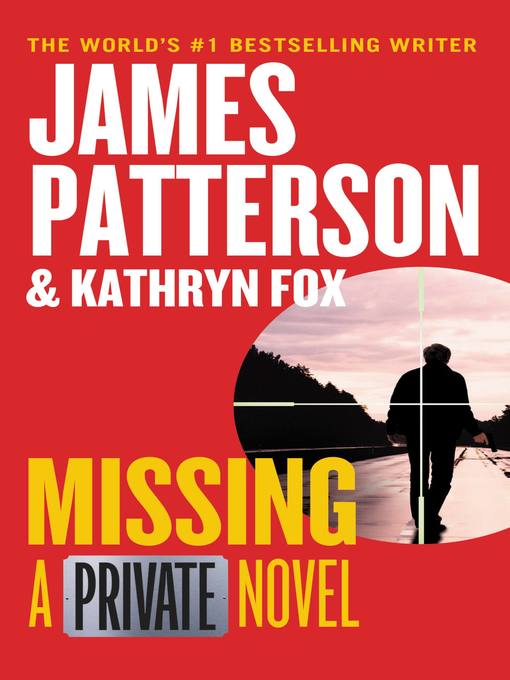
Preview Book
Missing by James Patterson ⭐⭐⭐⭐
James Patterson’s newest Private novel entitled Missing A Private Novel revisits the Australian office of Private Investigations. Writing this novel with Kathryn Fox, the newest book in his action packed series brings a new mystery filled with twists and lots of action.The premise of this latest outing has Craig Gisto, the head of Private Sydney, embroiled in another mystery as his newest client Eliza Moss investigate the disappearance of her father. Eric Moss is the CEO of a high-profile research company with some deadly enemies and secrets of his own. If this plot line was not enough, a routine background check turns into a frantic hunt to find a stolen baby and catch a brutal killer.
Patterson and Fox brings back the characters he first introduced in his Private Down Under book adding more insight to the characters. Missing is a fast paced read, that keeps you engrossed from start to finish.
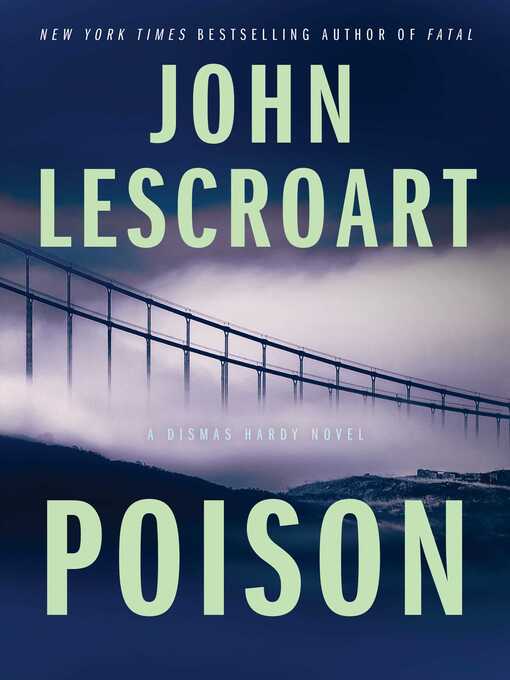
Preview Book
Poison by John Lescroart ⭐⭐⭐⭐
Back in the saddle after a brief hiatus for the stand-alone Fatal (2017), San Francisco attorney Dismas Hardy spends most of his time wishing he weren't. And he's not the only one.Half a generation ago, Hardy represented Abby Jarvis when her drunken driving got her charged with vehicular homicide. She did her time, got out of prison, and landed a job as bookkeeper with Grant Wagner, who owned Pipes & Valves plumbing supply. Now Wagner has died, and the cause wasn't the heart attack it first seemed to his family--sons Gary and Gene, daughters Grace and Gloria--but aconite poisoning, which a tox screen Gloria requested finally caught. The younger Wagners can't believe Abby could have killed the man who gave her a second chance, but neither can they believe the killer is one of their number, and somebody has to take the rap. So Abby once more calls Hardy, who takes the case for peanuts and then watches the pile of evidence against his client grow and grow. The defense's only hope, it seems, is that the case will somehow turn out to be linked to the shooting of David Chang that leads off the story but feels like an extra limb. And eventually it is, though not in an especially ingenious or revealing or persuasive way. By that time, though, Hardy's own son Vincent's friendship with Chang has Hardy's wife, Frannie, demanding that her husband walk away from the case, and when he thinks back over the times his friends and relatives have been scalded by the violent crimes he deals with (The Fall, 2015, etc.), he can see that she has a point. Now if only there were a way to get Abby off before the deadline for Hardy's decision came due....Though it lacks both the sociological scope and the double-barreled plotting of Lescroart's best, this relatively routine, expertly handled case is still well worth your time.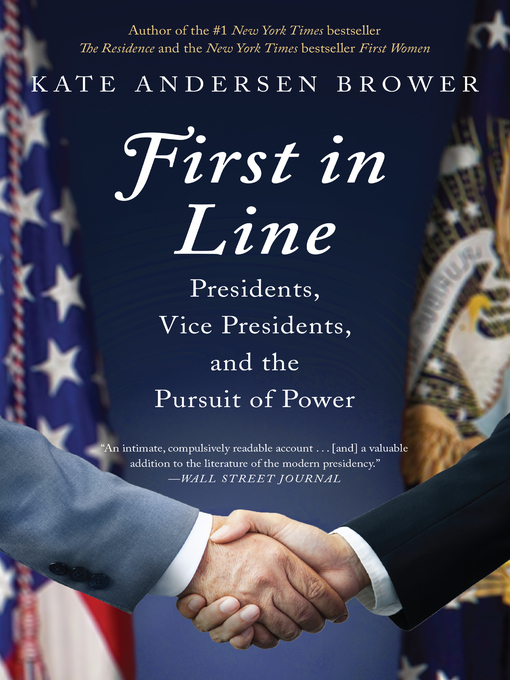
Preview Book
First in Line by Kate Andersen Brower ⭐⭐⭐⭐
This is an easy readable book. Brower is a journalist and writes in that style. Because she is not a historian, facts are presented but there is no historical analysis or academic documentation. The book is well written and researched. Brower tells the history of the vice presidents and how the method of choosing the VP to his role in office has changed over the history of our country. Brower states no one wants to be the vice president. Nine vice presidents have become president after the president either died, was assassinated or resigned. Of those vice presidents who became presidents, Brower states some have been poor presidents and some became significant presidents.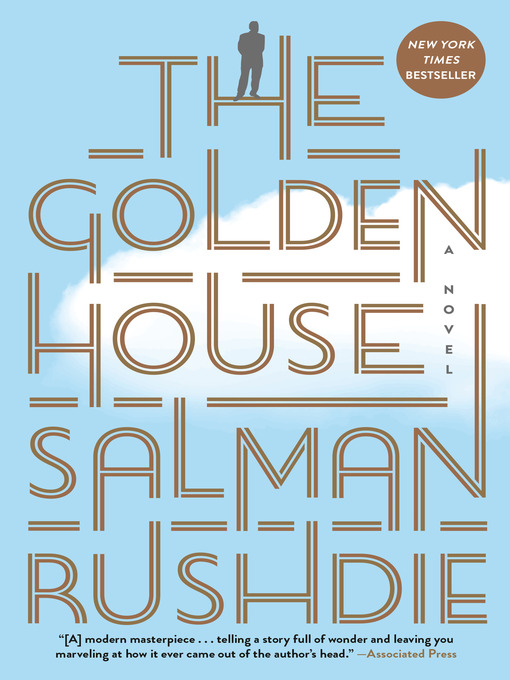
Preview Book
The Golden House by Salman Rushdie ⭐⭐⭐
In Rushdie’s ambitious and rewarding novel, a mysterious billionaire and his three adult sons change their names and move to New York City in an attempt to reinvent themselves after tragedy. Spanning the years from the Obama inauguration to the current political moment, the main story is narrated by René, an aspiring filmmaker who resides in the Gardens, the same fictional downtown Manhattan neighborhood as the pseudonymous “Golden” family of the book’s title. Each of the Golden sons is introduced in turn—the intellectual Petya, the artistically inclined Apu, their searching half-brother “D”—as René gradually comes to understand their origins and implicate himself in their dramas. After the patriarch, Nero, marries a much younger woman named Vasilia, her increasingly intimate relationship with René drags the Goldens’ history violently into the present. Replete with allusions to literature, film, mythology, and politics, the novel simultaneously channels the calamities of Greek drama and the information overload of the internet. The result is a distinctively rich epic of the immigrant experience in modern America, where no amount of money or self-abnegation can truly free a family from the sins of the past.
Preview Book
The Flight Attendant by Chris Bohjalian ⭐⭐⭐½
Blackout drunk Cassie Bowden is used to waking up in strangers’ beds, but what she discovers one morning in a sumptuous Dubai hotel suite is instantly sobering—blood-soaked sheets and the dead body of the handsome American hedge fund manager she met on her flight over. Even worse for Cassie, the assassin who executed him already regrets sparing the passed-out flight attendant. It’s a killer set-up, and Bohjalian (The Sleepwalker) initially maximizes the dual plot lines: Cassie, flying on primal survival instinct, tries to stonewall investigators, testing the truth of the maxim that God looks out for fools and drunkards; hit woman Elena methodically closes in for the kill. Bohjalian’s less successful in avoiding clichés or in making an espionage subplot plausible. Then, with about 50 pages to go it’s as though the bell has rung for the final lap, with the author unceremoniously detonating a plot bombshell that triggers the frenetic, exciting, but not especially convincing sprint to the finish. Bohjalian’s fans will still have fun.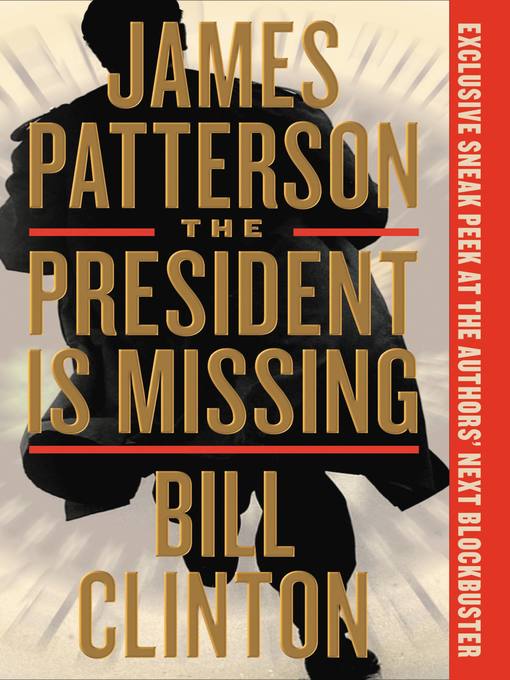
Preview Book
The President Is Missing by Bill Clinton ⭐⭐⭐½
It's textbook synergy, as the marketers say: A media-savvy ex-president teams up with the ringmaster of mass-produced pop fiction to churn out a by-the-numbers thriller.It's a telling sign of the times that the very first bit of text in this scrappy potboiler by Clinton (Back to Work: Why We Need Smart Government for a Strong Economy, 2011, etc.) and Patterson (NYPD Red, 2012, etc.) is a shoutout to the lawyer who brought them together "and occasionally cracked the whip." That said, Clinton lifts generous hunks of his own presidential biography in this yarn celebrating the gnarly President Jonathan Lincoln Duncan (think William Jefferson Clinton, natch), who is being assailed on every side. There are Islamic terrorists, but worse, the Congressional committees grilling him from Page 1 on, questioning Benghazi-like episodes in which the Sons of Jihad have been mowing down innocent Americans. Then there's the "tall, leggy, busty" assassin who's coming for the Prez without rancor but with clinical certainty. It doesn't help that Duncan's veep--"a parasite, living off her host"--may be plotting to take over, nor that the media is given to leaking that he intends "to try to cut a deal with the House Speaker to spare me impeachment if I agree to a single term in office." And did we mention the killer computer virus that's about to turn the switch on the information age? What's a beleaguered politico to do when the klieg lights are on and the bullets are flying? Hunker down and hit the mattresses--but then go all Jack Ryan or maybe even all Dubya ("In the coming days...we will find out who are America's friends and who are America's enemies. Nobody will want to be an enemy"), recruit a Lisbeth Salander or two, line up NATO pals and maybe even the Russkis, and go mano a mano with the assembled bad guys, foreign and domestic.Formulaic but reasonably fun provided you have no expectations concerning probability or literary quality.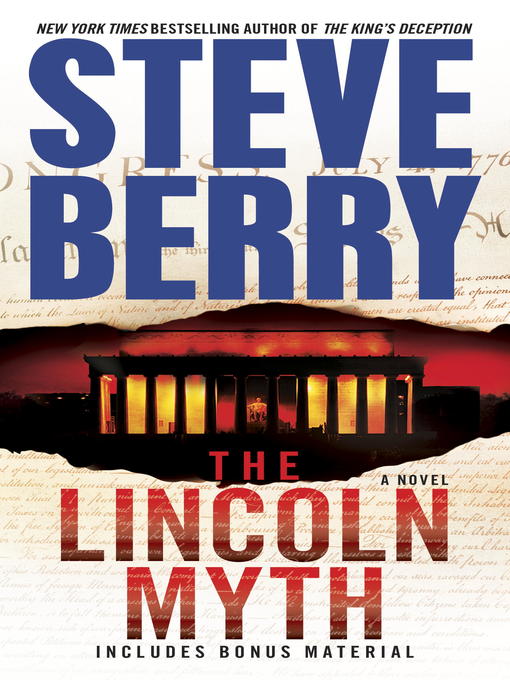
Preview Book
The Lincoln Myth by Steve Berry ⭐⭐⭐⭐
It's textbook synergy, as the marketers say: A media-savvy ex-president teams up with the ringmaster of mass-produced pop fiction to churn out a by-the-numbers thriller.It's a telling sign of the times that the very first bit of text in this scrappy potboiler by Clinton (Back to Work: Why We Need Smart Government for a Strong Economy, 2011, etc.) and Patterson (NYPD Red, 2012, etc.) is a shoutout to the lawyer who brought them together "and occasionally cracked the whip." That said, Clinton lifts generous hunks of his own presidential biography in this yarn celebrating the gnarly President Jonathan Lincoln Duncan (think William Jefferson Clinton, natch), who is being assailed on every side. There are Islamic terrorists, but worse, the Congressional committees grilling him from Page 1 on, questioning Benghazi-like episodes in which the Sons of Jihad have been mowing down innocent Americans. Then there's the "tall, leggy, busty" assassin who's coming for the Prez without rancor but with clinical certainty. It doesn't help that Duncan's veep--"a parasite, living off her host"--may be plotting to take over, nor that the media is given to leaking that he intends "to try to cut a deal with the House Speaker to spare me impeachment if I agree to a single term in office." And did we mention the killer computer virus that's about to turn the switch on the information age? What's a beleaguered politico to do when the klieg lights are on and the bullets are flying? Hunker down and hit the mattresses--but then go all Jack Ryan or maybe even all Dubya ("In the coming days...we will find out who are America's friends and who are America's enemies. Nobody will want to be an enemy"), recruit a Lisbeth Salander or two, line up NATO pals and maybe even the Russkis, and go mano a mano with the assembled bad guys, foreign and domestic.Formulaic but reasonably fun provided you have no expectations concerning probability or literary quality.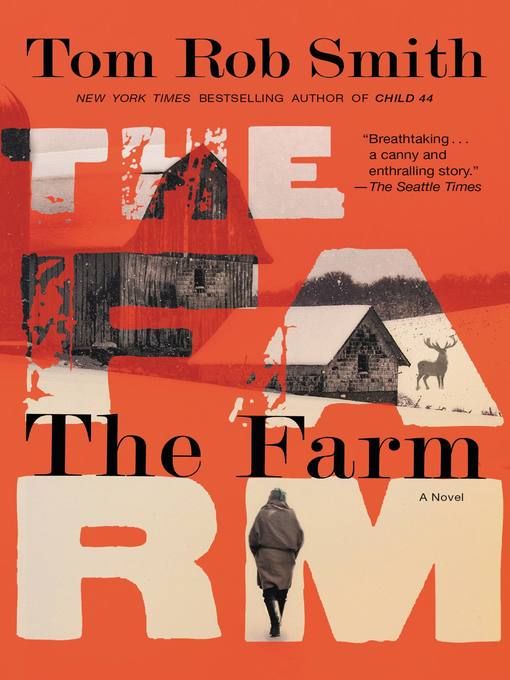
Preview Book
The Farm by Tom Rob Smith ⭐⭐⭐½
At the start of this superior psychological thriller from Thriller Award–winner Smith (Child 44), the narrator, a Londoner known only as Daniel, receives a phone call from his father, who has retired with his wife to a farm in Sweden. The father tells Daniel that his mother is in the hospital. For months, she has been “imagining things—terrible, terrible things.” Before Daniel can fly to Sweden, his father calls again to inform him that she persuaded the doctors to authorize her discharge and has disappeared. As Daniel struggles to accept that news, his mother phones to announce that she’s flying to Heathrow and that everything his father has told him “is a lie.” When she arrives, she offers a complex tale to buttress her conviction that she has been plotted against, leaving Daniel uncertain as to whom and what to believe. Smith keeps the reader guessing up to the powerfully effective resolution that’s refreshingly devoid of contrivances.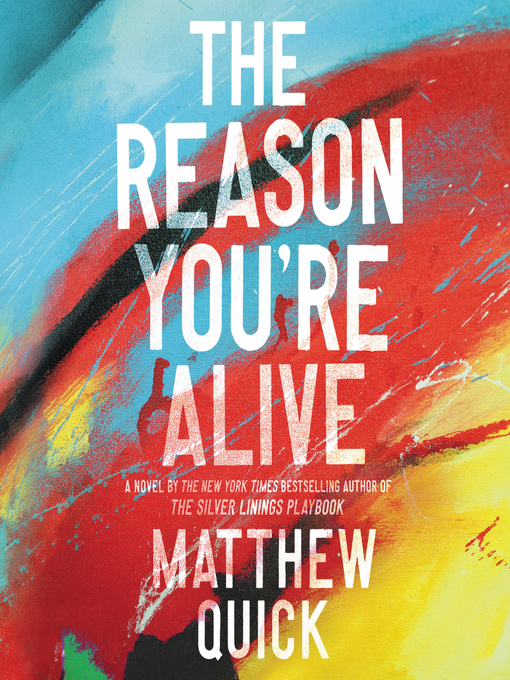
Preview Book
The Reason You're Alive by Matthew Quick ⭐⭐⭐⭐
Meet David Granger, the bigoted 68-year-old Vietnam veteran and narrator of Quick’s (The Silver Linings Playbook) dark, funny, and surprisingly tender new novel. After a brain tumor is removed, Granger allows some unknown government lackey to transcribe his life story: a patriotic, often cynical, sometimes paranoid, but always engaging recitation. He shares the horrors of Vietnam and his encounter with Clayton Fire Bear, the fake name of a Native American to whom he owes an apology. He describes his family relationships: his love for his granddaughter; his semi-estrangement with Hank, his pretentious son; and his tragic marriage to Hank’s mother, Jessica, which began as an effort to save her life after being raped and impregnated and ended years later with her suicide. Granger’s life is rife with instances that either prove or belie his reputation as a xenophobic, racist homophobe. Identifying the “you” in the title proves illuminating; is it Clayton Fire Bear, Hank—who until now was ignorant about his paternity—or Granger himself, who tried and failed to keep Jessica’s demons at bay and too late realized she returned the favor with more subtlety and success?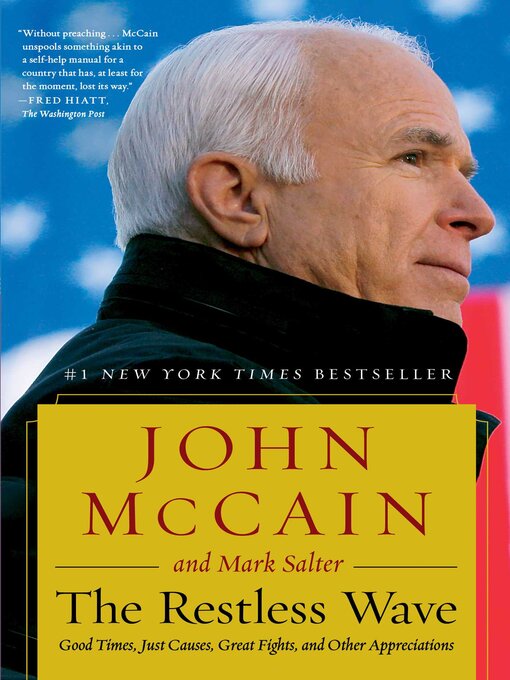
Preview Book
The Restless Wave by John McCain ⭐⭐⭐½
In his moving final memoir, written as he battles terminal brain cancer, Arizona senator McCain reflects on his career. Topics include his 2008 presidential campaign, key points in the wars in Iraq and Afghanistan, legislative battles around healthcare and immigration reform, today’s fractious political climate, and American values. Known for his leadership on foreign policy issues, McCain shares his views on a range of geopolitical topics, including Vladimir Putin (“the clear and present danger... a murderer and a thug”), the Arab Spring, and President Obama’s handling of the chemical weapons attacks in Syria (“a shockingly bad mistake”). Despite flashes of the “straight talk” for which McCain has become known, this book meanders into navel-gazing detail and sometimes skirts meaningful examination. McCain lists President Trump’s moral and political failings, but hedges: “I don’t know what to make of Trump’s convictions,” he writes, and “it’s hard to know what to expect” from him. McCain is at his best when arguing that America is exceptional because of its “founding conviction” that all people deserve equal rights and because of “our conduct in the world”—the book’s most powerful chapter is devoted to rejecting torture. Rather than a response to extraordinary times, this fine memoir reads more like a requiem of a long, patriotic life.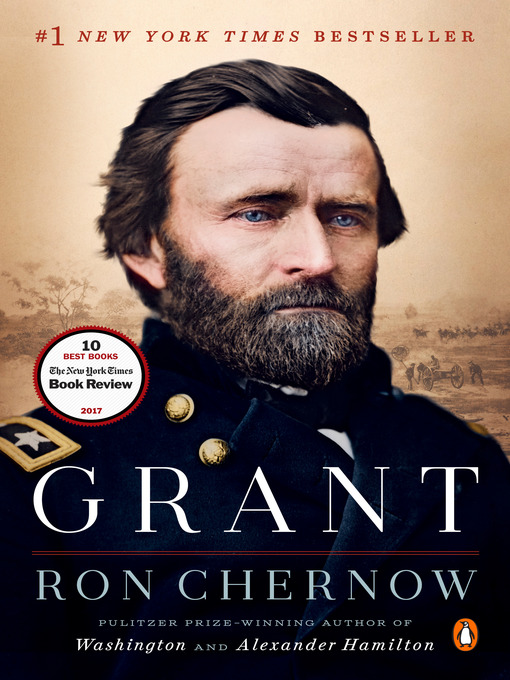
Preview Book
Grant by Ron Chernow ⭐⭐⭐⭐
A massive biography of the Civil War general and president, who "was the single most important figure behind Reconstruction."Most Americans know the traditional story of Ulysses S. Grant (1822-1885): a modest but brutal general who pummeled Robert E. Lee into submission and then became a bad president. Historians changed their minds a generation ago, and acclaimed historian Chernow (Washington: A Life, 2010, etc.), winner of both the National Book Award and the Pulitzer Prize, goes along in this doorstop of a biography, which is admiring, intensely detailed, and rarely dull. A middling West Point graduate, Grant performed well during the Mexican War but resigned his commission, enduring seven years of failure before getting lucky. At the outbreak of the Civil War, he was the only West Point graduate in the area, so local leaders gave him a command. Unlike other Union commanders, he was aggressive and unfazed by setbacks. His brilliant campaign at Vicksburg made him a national hero. Taking command of the Army of the Potomac, he forced Lee's surrender, although it took a year. Easily elected in 1868, he was the only president who truly wanted Reconstruction to work. Despite achievements such as suppressing the Ku Klux Klan, he was fighting a losing battle. Historian Richard N. Current wrote, "by backing Radical Reconstruction as best he could, he made a greater effort to secure the constitutional rights of blacks than did any other President between Lincoln and Lyndon B. Johnson." Recounting the dreary scandals that soiled his administration, Chernow emphasizes that Grant was disastrously lacking in cynicism. Loyal to friends and susceptible to shady characters, he was an easy mark, and he was fleeced regularly throughout his life. In this sympathetic biography, the author continues the revival of Grant's reputation. At nearly 1,000 pages, Chernow delivers a deeply researched, everything-you-ever-wanted-to-know biography, but few readers will regret the experience.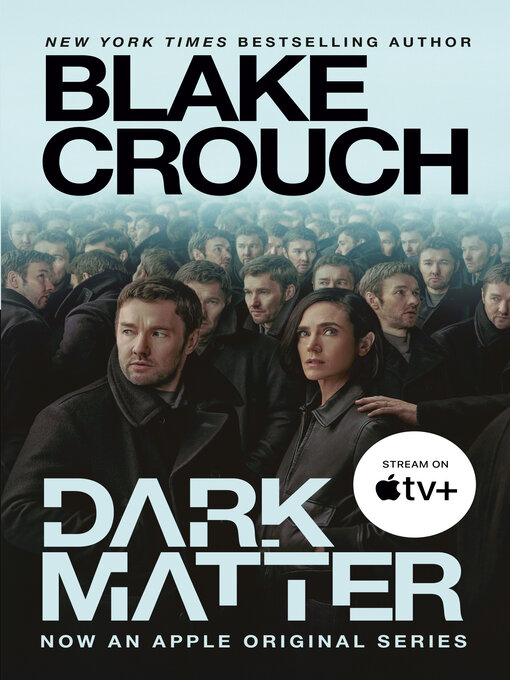
Preview Book
Dark Matter by Blake Crouch ⭐⭐⭐⭐
Excellent characterization and well-crafted tension do much to redeem the outlandish plot of this SF thriller from Crouch (the Wayward Pines trilogy). Jason Dessen, a quantum physicist, once had a brilliant research career ahead of him. But after a girlfriend’s unexpected pregnancy and the birth of a son, this future was derailed. Now Jason is a professor at a small Chicago college, content with his warm and loving family life until he’s abducted into a world in which his quantum many-worlds theory has become a fully realized technology for inter-dimensional transfer. In this world, Jason didn’t marry his girlfriend and never had a son. Jason is determined to get back to his family and his own world, but nefarious powers in the alternate reality conspire to stop him from revealing the criminal lengths they have gone to create the world-hopping technology. Crouch makes little attempt to justify the underlying science fiction MacGuffin, but a rousing and heartfelt ending will leave readers cheering.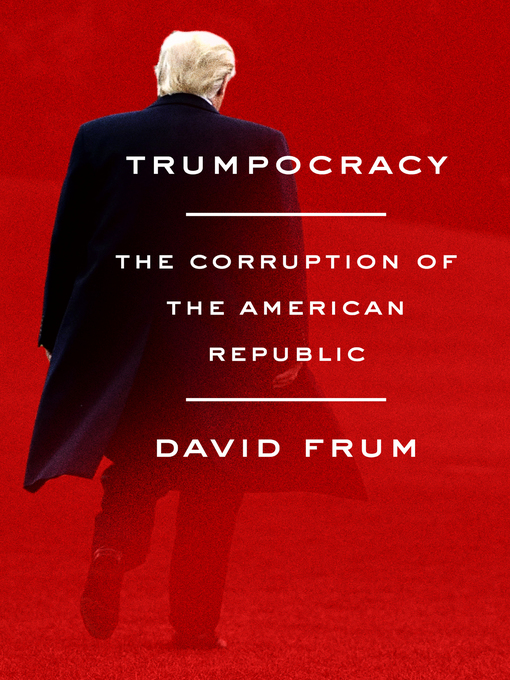
Preview Book
Trumpocracy by David Frum ⭐⭐⭐½
Frum (The Right Man), an Atlantic senior editor, charts the erosion of democratic principles over the course of Donald Trump’s campaign and first year in office, enumerating both the president’s own improprieties and the misdeeds of his various advisers and hangers-on. Frum eloquently places the blame squarely on “the aggrandizement of one domineering man and his shamelessly grasping extended family,” whom he describes as trading in conspiracy theories and “alternative facts,” using their government positions to shill for real estate deals overseas, and engaging in borderline-treasonous conversations with Russian officials. He also shames those he deems complicit, including various Fox News hosts, short-lived White House communications director Anthony Scaramucci, and “brazen” political strategist Kellyanne Conway. Frum further notes that Trump has turned on the country’s most trusted international allies in favor of “the planet’s thugs, crooks, and dictators.” Frum urges readers to “aspire to a deeper citizenship and wider loyalties,” and conservatives, among whom he includes himself, to embrace a more moderate ideology. Denunciations of the current administration are ubiquitous, but Frum’s incisive prose and optimism—notably, regarding the chances of returning decency and integrity to the Republican Party—set this apart.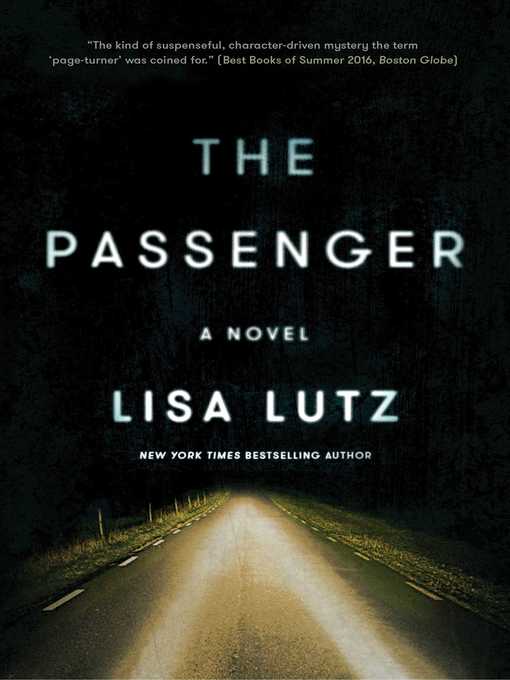
Preview Book
The Passenger by Lisa Lutz ⭐⭐⭐⭐
Tanya Dubois, the enigmatic heroine of this enjoyable standalone from Lutz (How to Start a Fire), is the unhappy wife of the deceased Frank Dubois, who took a fatal—and unassisted—header down the basement stairs of their Waterloo, Wis., home. Since she fears the police will think she pushed Frank, Tanya decides to get out of Waterloo as fast as possible, and she holes up in a sleazy motel, the first of many she’ll stay in, to call the mysterious Mr. Oliver, who grudgingly agrees to supply her with a new identity and some starter cash: it’s clear he’s done it before. Tanya becomes Amelia Keen in Austin, Tex., where she meets the beguiling but dangerous bartender Blue. It’s soon clear that Amelia and Blue both have unsavory pasts, and the agreement the women reach sends both of them off with new names. While the pacing falters in places and some of the final reveals lack wallop, Lutz’s complex web of finely honed characters will keep readers turning the pages.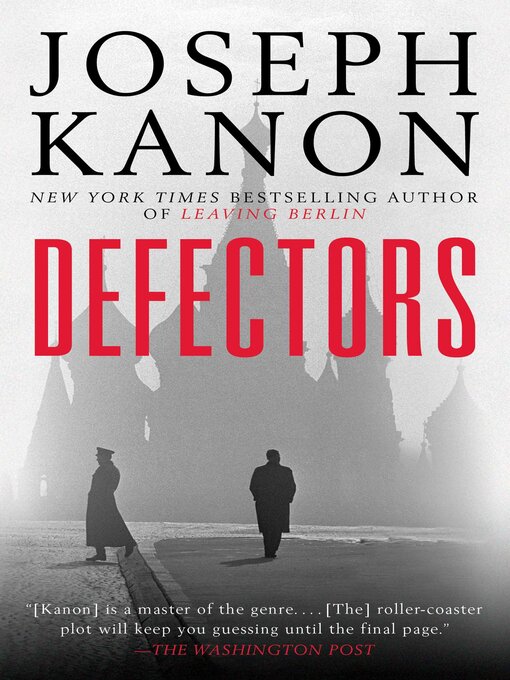
Preview Book
Defectors by Joseph Kanon ⭐⭐⭐½
In 1949, CIA agent Frank Weeks was exposed as a Communist spy and defected to the Soviet Union. A dozen years later, his brother, Simon, a publisher, gets into deep trouble when he travels to Moscow to work on Frank's memoir.A memoir from "the man who betrayed a generation" is guaranteed to be an international bestseller--even if, as approved by the KGB, it will be full of omissions, half-truths, and fabrications. A born charmer--smart, irreverent, and brilliantly persuasive--Frank has mastered the art of self-preservation. Playing on his younger sibling's love for him, he draws Simon into a dangerous scheme he swears is motivated by a desire to save his wife, Joanna, from her deepening depression. Simon was once involved with Joanna and still has feelings for her. Recruited by Frank as an OSS intelligence analyst during World War II--and forced to resign his subsequent job at the State Department after Frank's cover was blown--Simon now finds himself caught between two worlds. The deeper he's pulled into his brother's orbit, the more he's put in touch with a cold streak of his own. Most of these plot elements will be familiar to readers of John le Carre, Gerald Seymour, and other great spy novelists. But with his remarkable emotional precision and mastery of tone, Kanon transcends the form. In its subtly romanticized treatment of compromised lives, this book is even better than his terrific previous effort, Leaving Berlin (2015). A blend of Spy vs. Spy and sibling vs. sibling (not since le Carre's A Perfect Spy has there been a family of spooks to rival this one), Kanon reaffirms his status as one of the very best writers in the genre.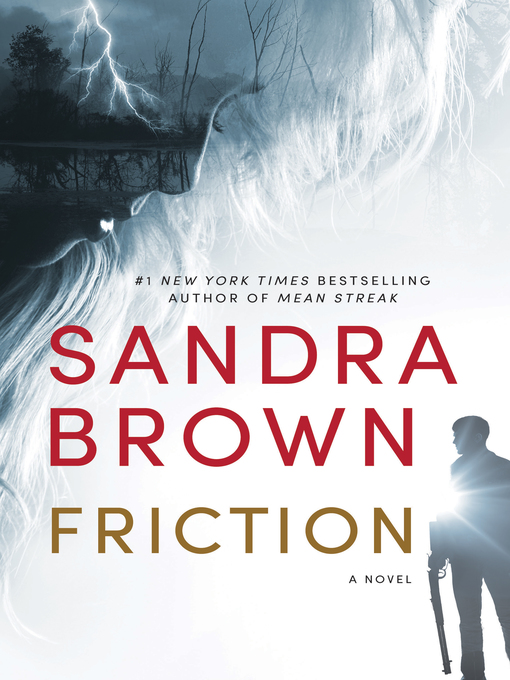
Preview Book
Friction by Sandra Brown ⭐⭐⭐⭐
Bestseller Brown's highly recognizable brand of romantic suspense is on full display as the fates of rugged Texas Ranger Crawford Hunt and Judge Holly Spencer collide in the courtroom, in the bedroom, and in a desperate attempt to save reputations and lives. Crawford's hearing before Holly is to seek custody of his five-year-old daughter, Georgia, who's currently living with her late mother's parents, Grace and Joe Gilroy. A gunman interrupts the hearing at the Prentiss County Courthouse in Prentiss, Tex., by firing wildly, killing a bailiff. Crawford shields Holly and turns the attack into a chase that leads to the rooftop, where a sniper kills the gunman. In the aftermath, Joe warns Crawford that his "grandstanding" at the courthouse threatens his chances of winning custody, and Holly fears an enemy of hers will use the courthouse tragedy to discredit her. Things get worse for them both, complicated by their growing attraction to each other. Crawfordtries to protect Holly from those out to ruin her, but he's trapped by Sgt. Neal Lester, a senior detective, and Joe, who files a restraining order against him. Brown (Mean Streak) expertly ratchets up passion and danger as Crawford fights for his life, his daughter, and his new love.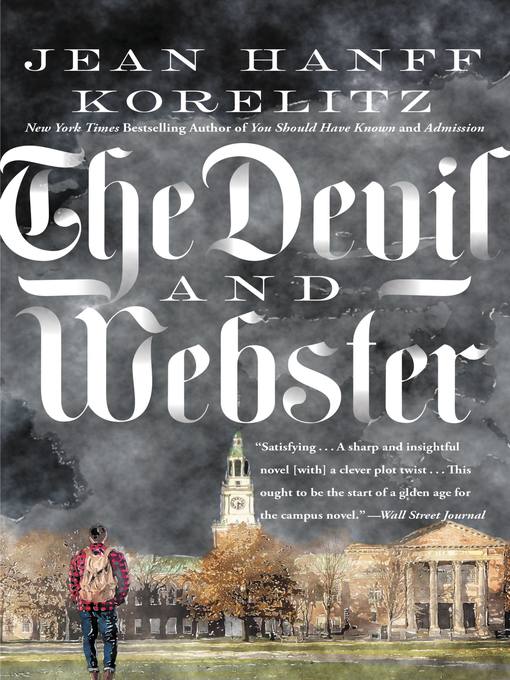
Preview Book
The Devil and Webster by Jean Hanff Korelitz ⭐⭐⭐½
Korelitz (Admission) raids the current news climate for this hot-topic read about diversity, protest, and “liberal idiocy” on the campus of progressive Webster College, headed by its first female and Jewish president, Naomi Roth, a feminist academic with her own radical past. Roth’s pride in Webster’s evolution from white male homogeneity to carefully culled inclusion is tested by the denial of tenure to popular black professor Nicholas Gall, which spawns a massive student movement to protect him led by Omar Khayal, a charismatic Palestinian student. Though Roth prides herself on speaking “truth to power,” when she is the “establishment” her words fall on deaf ears. They fail to impress even her own daughter, Hannah, a member of the protest movement; best friend, Francine, the college’s admissions dean going through her own academic crisis; and the restive college board. There’s much to ponder in this dense political and social debate, and it’s as overwhelming to Naomi as it is to readers, who, though pitying her no-win situation, can see the hypocrisy that blinds her. Ultimately, it isn’t the political twist that’s so riveting in Korelitz’s morality tale, but the apolitical, ageless struggle of a mother letting go of her daughter, a fact “so very ordinary, but... everything, too.”
No Book Preview
The Long Drop by Denise Mina ⭐⭐⭐½
Hard men work their will in 1950s Glasgow.Though somewhat unlike Mina's usual thrillers in many ways, this study of a serial killer shares her persistent themes. Mina has penned three series of novels, each featuring a female protagonist (Blood, Salt, Water, 2015, etc.) struggling against both active criminals and pervasive misogyny. In this story she omits the female protagonist but remains grounded in the casual victimization of Scotland's women. William Watt's family (wife, daughter, and sister-in-law) is slaughtered, and at first Watt is charged with the crimes. Feeling the police are not investigating energetically enough, he reaches out to the Glasgow underworld--and finds Peter Manuel, who claims to know where the gun is buried and much more. In the course of a December evening he and Watt spend drinking together, much that is repellent about Manuel is slowly revealed. Then another family is murdered. Eventually Watt is exculpated, and Manuel is charged with eight counts of murder. The story alternates mostly between that December night of drinking and the subsequent trial. Manuel is delusional, possibly psychotic; but is he alone responsible for the deaths of Watt's family? Watt is a man of some substance, involved in political and real estate machinations that will transform Glasgow. He has a mistress. Do the hard men close ranks around him? Is Manuel, beyond the control of the men who rule his world, sacrificed to preserve one of them? In the end, the answer matters less than the method, as women's lives are degraded, publicly and privately, physically and spiritually, to preserve the ranks of those hard men. In more than one sense, Manuel takes the fall. A terrific exploration of crime and oppression.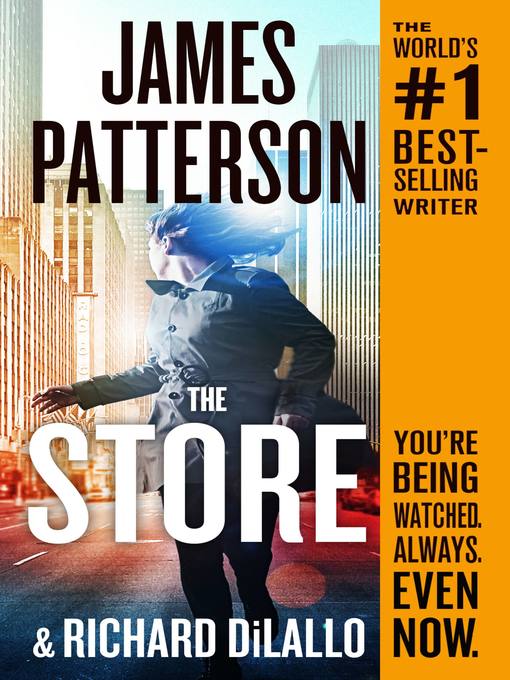
Preview Book
The Store by James Patterson ⭐⭐⭐½
Jacob and Megan Brandeis have gotten jobs with the mega-successful, ultra-secretive Store. Seems perfect. Seems safe. But their lives are about to become anything but perfect, anything but safe. Especially since Jacob and Megan have a dark secret of their own. They're writing a book that will expose the Store-a forbidden book, a dangerous book.And if the Store finds out, there's only one thing Jacob, Megan and their kids can do: run for their bloody lives. Which is probably impossible, because the Store is always watching....
When Jacob and Megan plan to expose a secretive and evil corporation, the fallout threatens to destroy them.
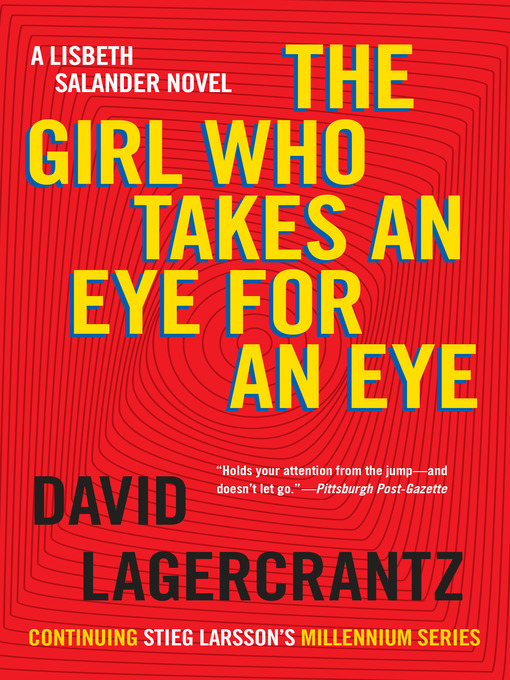
Preview Book
The Girl Who Takes an Eye for an Eye by David Lagercrantz ⭐⭐⭐⭐
Lagercrantz’s excellent second contribution to Stieg Larsson’s Millennium series finds Lisbeth Salander serving a two-month sentence in Flodberga, the only maximum security women’s prison in Sweden, for unlawful use of property and reckless endangerment stemming from a murder case chronicled in 2015’s The Girl in the Spider’s Web. Lisbeth doesn’t mind her incarceration, since it allows her to work on her attempt to combine quantum mechanics with the theory of relativity, but she’s annoyed that her section of the prison has been taken over by gang leader Benito Andersson, who’s torturing a beautiful young Bangladeshi prisoner, Faria Kazi, a convicted murderer. Lisbeth is also troubled by a visit from her old guardian, Holger Palmgren, who informs her that he has some startling information: Lisbeth might have been part of a study dealing with twins when she was a patient at St. Stefan’s psychiatric clinic for children. Determined to learn more about this study, Lisbeth asks her friend Mikael Blomkvist, editor of Millennium magazine, for help. After her release, Lisbeth investigates the case of the Bangladeshi prisoner, and Blomkvist delves into Lisbeth’s childhood. Eventually, these twisting plot lines tie together in this complicated, fascinating mystery. As a bonus, readers learn the meaning of the dragon tattoo on Lisbeth’s back.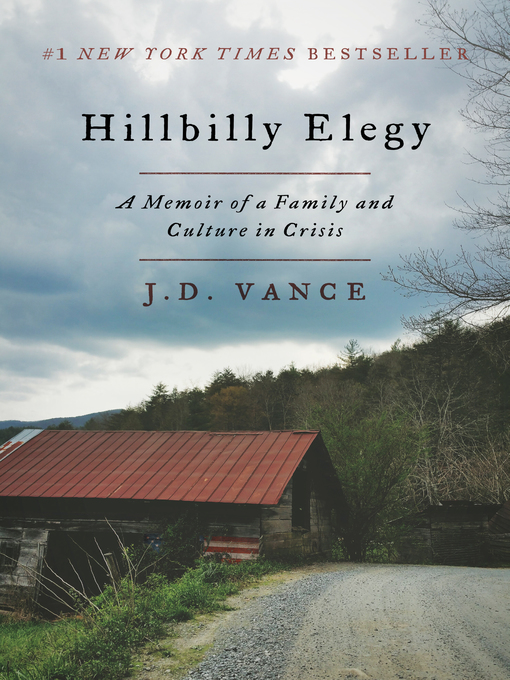
Preview Book
Hillbilly Elegy by J. D. Vance ⭐⭐⭐⭐
In this compelling hybrid of memoir and sociological analysis, Vance digs deep into his upbringing in the hills of Jackson, Ky., and the suburban enclave of Middletown, Ohio. He chronicles with affectionâand raw candorâthe foibles, shortcomings, and virtues of his family and their own attempts to live their lives as working-class people in a middle-class world. Readers get to know his tough-as-nails grandmother, Mawmaw, who almost killed a man when she was 12 in Jackson, but who has to live among the sewing circles of Middletown. Her love for children, and for her grandson in particular, fuels her dream to become a children's attorney. When Vance finishes high school, he's not ready to head off to Ohio State, so Vance joins the Marines, completes a tour of duty in Iraq, and returns home with a surer sense of what he wants out of life and how to get it. He eventually enrolls in Yale Law School and becomes a successful lawyer, doggedly reflecting on the keys to his own successâfamily and communityâand the ways they might help him understand the issues at stake in social policies today. Vance observes that hillbillies like himself are helped not by government policy but by community that empowers them and extended family who encourages them to take control of their own destinies. Vance's dynamic memoir takes a serious look at class.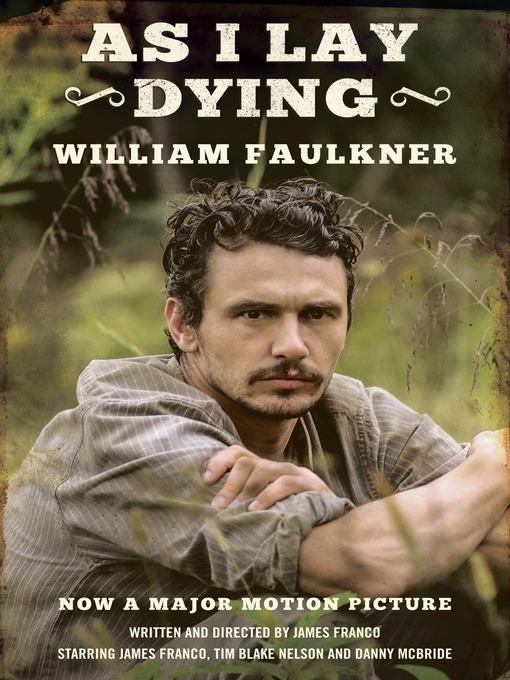
Preview Book
As I Lay Dying by William Faulkner ⭐⭐⭐½
One of William Faulkner's finest novels, As I Lay Dying, originally published in 1930, remains a captivating and stylistically innovative work. The story revolves around a grim yet darkly humorous pilgrimage, as Addie Bundren's family sets out to fulfill her last wish: to be buried in her native Jefferson, Mississippi, far from the miserable backwater surroundings of her married life. Told through multiple voices, As I Lay Dying vividly brings to life Faulkner's imaginary South, one of literature's great invented landscapes, and is replete with the poignant, impoverished, violent, and hypnotically fascinating characters that were his trademark.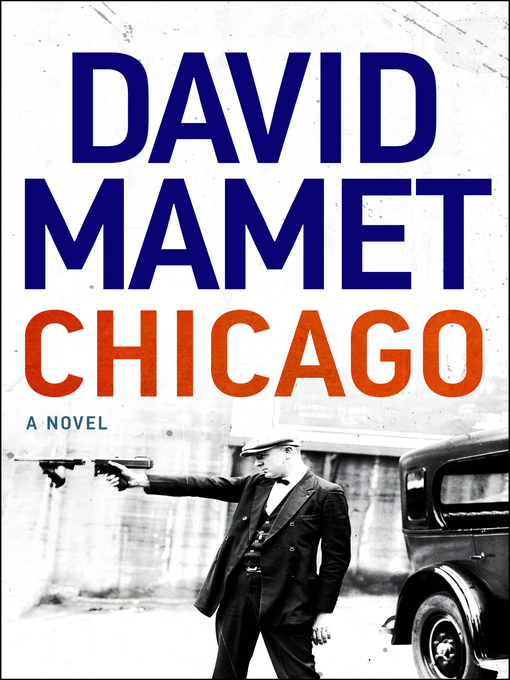
Preview Book
Chicago by David Mamet ⭐⭐½
A major bard of the Windy City returns, this time with a novel devoted to the mob era and some of its more minor players.Aside from a few questionable forays into right-wing politics, Mamet (Three War Stories, 2013, etc.) is heard from too little these days. That's unfortunate, because few writers are better at bringing the smart, charged dialogue of the theater into conventional prose. "They loved your quip, about 'he died of a broken heart, '" says Parlow, a journeyman writer on every topic of culture and commerce imaginable, to his pal Mike Hodge, a hard-boiled reporter for the Trib who is much admired and much feared. "You should have been there, they picked up the tab for dinner." "They" are one of the several crews of very bad gangsters who have just "iced" Jacob Weiss, a showman knee-deep in misbehavior. But who? Therein hangs one of several mysteries, the largest of them the identity of the fellow who iced Mike's girlfriend, Annie Walsh, as Mike and she were freshening up after a tryst. Not a good idea: Mike is a former fighter ace ("He had killed in France, in the air, which he did not mind at all; and killed strafing ground troops, which upset him") who won't be thrown off a scent--and the stench of murder and mayhem is thick. The story moves at a careening pace, drawing on a small but memorable cast of characters, with cameos by a few historical figures; the palaver isn't as snappy as, say, House of Games, but it's brisk and believable. Readers should note that there's scarcely an ethnic group that doesn't come in for a slur along the way, but that's part of the verisimilitude: these are not nice people, excepting the deceased Annie--and even she has a few dark corners. Of a piece with character studies such as E.L. Doctorow's Ragtime and John Sayles' Eight Men Out, Mamet's book does Chicago--and organized crime--proud.An evocative, impressive return that Mamet fans will welcome.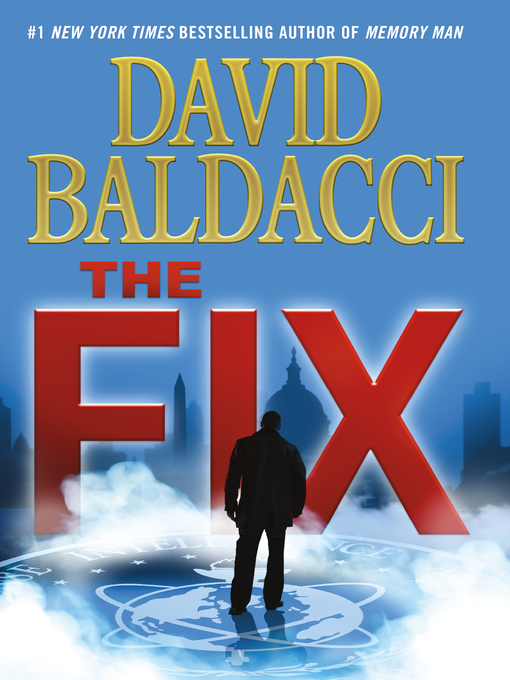
Preview Book
The Fix by David Baldacci ⭐⭐⭐⭐
Maverick FBI detective Amos Decker must forge an uneasy alliance with the Defense Intelligence Agency to prevent an international incident that could spell the end of the United States as we know it.Amos Decker witnesses a murder just outside FBI headquarters. A man shoots a woman execution-style on a crowded sidewalk, then turns the gun on himself.
Even with Decker's extraordinary powers of observation and deduction, the killing is baffling. Decker and his team can find absolutely no connection between the shooter—a family man with a successful consulting business—and his victim, a schoolteacher. Nor is there a hint of any possible motive for the attack.
Enter Harper Brown. An agent of the Defense Intelligence Agency, she orders Decker to back off the case. The murder is part of an open DIA investigation, one so classified that Decker and his team aren't cleared for it.
But they learn that the DIA believes solving the murder is now a matter of urgent national security. Critical information may have been leaked to a hostile government—or worse, an international terrorist group—and an attack may be imminent.
Decker's never been one to follow the rules, especially with the stakes so high. Forced into an uneasy alliance with Agent Brown, Decker remains laser focused on only one goal: solving the case before it's too late.
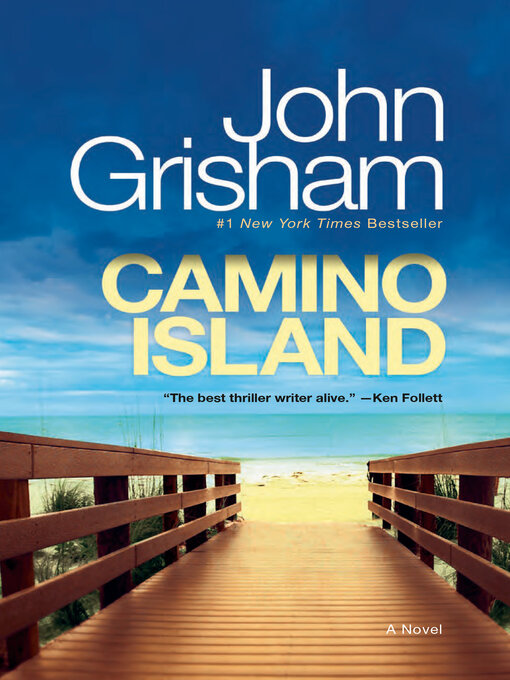
Preview Book
Camino Island by John Grisham ⭐⭐⭐⭐
A light caper turns into a multilayered game of cat and mouse in a story that, as with most of Grisham's (The Whistler, 2016, etc.) crime yarns, never gets too complex or deep but is entertaining all the same.Bruce Cable is a bon vivant-ish owner of a bookstore specializing in rarities, which ought to mean he's covered in dust instead of Florida sunshine. But he's an aging golden boy, the perfect draw for young aspiring novelist and cute thing Mercer Mann, who's attracted to books and Bruce and the literary scene he's created on formerly sleepy Camino Island. It takes us a while to get to the smooth-operating Bruce, though, because Grisham's first got to set up, with all due diligence, the misdeed to be attended to: the theft of F. Scott Fitzgerald's manuscripts from the Princeton library. Now, who wouldn't want the mojo associated with holding a piece of paper out of Fitzgerald's typewriter? Suspicion falls on Bruce, whereupon Mercer enters the picture, for a novel way has been presented to her to pay off some crushing student loans. (Always timely, Grisham is.) Eventually, Bruce and Mercer are reading between the lines and searching for clues between the sheets ("We're not talking about love; we're talking about sex," Grisham writes, with a perfectly correct semicolon). But was it Bruce who pulled off the literary crime of the century? Maybe, and maybe not; Grisham leaves us guessing even as he makes clear that literary criminals don't have to be nice guys in order to be good at their work: "He died a horrible death, Oscar, it was awful," one particularly menacing bookworm tells a quarry once the stolen manuscripts go missing a second time. "But before he died he gave me what I wanted. You." How all these little threads join up is a pleasure for Grisham fans to behold: there's nothing particularly surprising about it, but he's a skillful spinner of mayhem and payback.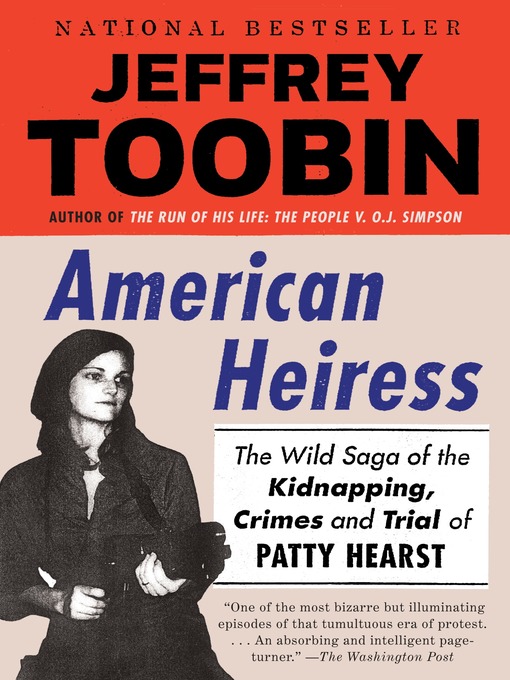
Preview Book
American Heiress by Jeffery Toobin ⭐⭐⭐½
The ubiquitous legal journalist and author returns with a detailed but swiftly moving account of the 1974 kidnapping that mesmerized the nation.Readers of a certain age will be astonished that this case is more than 40 years old. So much has changed, as New Yorker staff writer Toobin (The Oath: The Obama White House and the Supreme Court, 2012, etc.) effectively points out. He reminds us, for instance, that live TV feeds from crime scenes were a novelty that spread rapidly after the coverage of a shootout between some members of the Symbionese Liberation Army--the motley crew that kidnapped Patricia Hearst, the young heiress of the noted publishing family--and the federal and local authorities. Toobin begins with a quick account of the kidnapping, an introduction of the principals, and some 1970s cultural history, and then he moves into the slow conversion of Hearst into a trash-talking urban guerrilla (the term she later used to identify herself), her involvement in SLA criminal activities, and her sex life. The author occasionally shows us the doings of those left behind--principally her family and her fiance, Steven Weed, who does not come off well, then and now. (He bolted when the SLA arrived.) Toobin ably charts the bizarre inability of authorities to figure out this crew of barely competent revolutionaries. Once Patricia is caught and on trial for her SLA-related activities, the author's considerable legal knowledge propels the narrative. He shows us that both the prosecution and the defense lacked competence, especially celebrated defense attorney F. Lee Bailey, whom Toobin paints as an opportunist inebriated with alcohol and celebrity. The author ends with an update on the principals and notes that Hearst resolutely refused to contribute to his book. Despite the lack of participation from Hearst, this is a well-informed, engaging work from a highly capable author.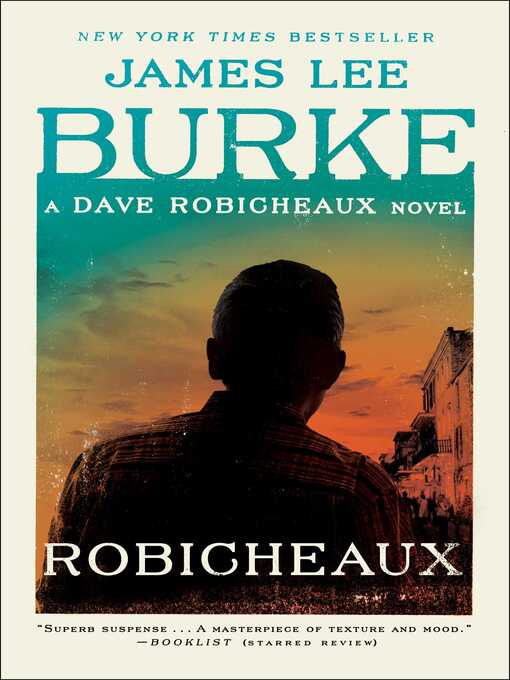
Preview Book
Robicheaux by James Lee Burke ⭐⭐⭐⭐
Burke (Light of the World) once again features Dave Robicheaux—detective, veteran, widower, father, alcoholic—in this enthralling yet grim novel of crime, hate, and tragedy. Robicheaux may be at home in New Iberia, La., but he’s not safe from suspicion and self-doubt when the man who killed his wife is murdered. Together with his best friend, PI Clete Purcell, Robicheaux seeks truth, no matter how incriminating, even as more bodies fall and mysteries twine together. The cast is Shakespearean in its variety: a demagogue, a novelist, the mob, good cops and bad, victims of hubris and hate, and ghosts aplenty. No one here is blameless amid white supremacy, bigotry, misogyny, child abuse, flourishing sex and drug trades, and deep socioeconomic inequity, and Robicheaux and Clete never shy away from confronting what they see as the world’s evils. But as the stakes get higher, the friends—who are more than happy to risk themselves—must decide what it will take to protect those they love and respect. Along the way, Burke investigates accusations of rape, corporate colonialism, and Southern nostalgia, not always without his own bias. The novel’s murders and lies—both committed with unsettling smiles—will captivate, start to finish.
Preview Book
Sharp Objects by Gillian Flynn ⭐⭐⭐⭐
Flynn gives new meaning to the term "dysfunctional family" in her chilling debut thriller. Camille Preaker, once institutionalized for youthful self-mutilation, now works for a third-rung Chicago newspaper. When a young girl is murdered and mutilated and another disappears in Camille's hometown of Wind Gap, Mo., her editor, eager for a scoop, sends her there for a human-interest story. Though the police, including Richard Willis, a profiler from Kansas City, Mo., say they suspect a transient, Camille thinks the killer is local. Interviewing old acquaintances and newcomers, she relives her disturbed childhood, gradually uncovering family secrets as gruesome as the scars beneath her clothing. The horror creeps up slowly, with Flynn misdirecting the reader until the shocking, dreadful and memorable double ending. She writes fluidly of smalltown America, though many characters are clichés hiding secrets. Flynn, the lead TV critic for Entertainment Weekly, has already garnered blurbs from Stephen King and Harlan Coben.
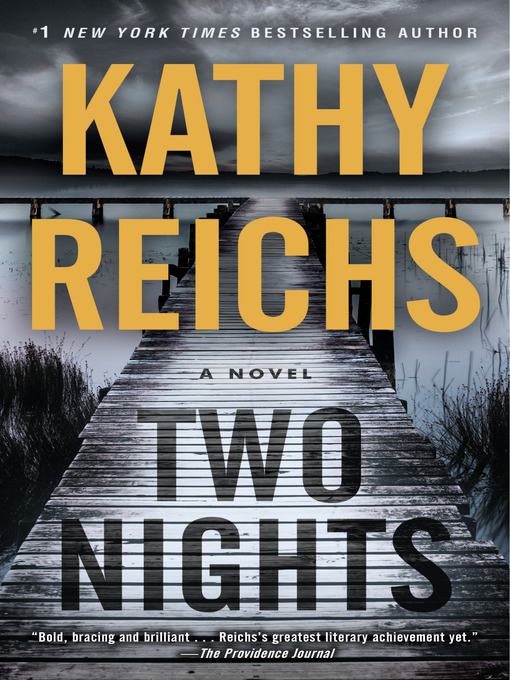
Preview Book
Two Nights by Kathy Reichs ⭐⭐⭐½
A search for a missing girl resurrects traumatic memories for a woman already struggling with life.Sunday Night--not her real name--lives in seclusion on an island off the South Carolina coast while contemplating the ruins of her life. Her early childhood was a nightmare. Taken in by policeman Perry "Beau" Beaumonde, rebellious Sunday earned a choice of jail or the armed forces. Her stint in the Marines led to a job with the Charleston PD, where the accidental shooting of an unarmed man has left her wounded and pensioned off. That's when Beau suggests she take an investigative job for wealthy, well-connected Opaline Drucker, whose 15-year-old granddaughter, Stella, may have been kidnapped by a cult after she missed being killed in a Hebrew school bombing that claimed the lives of her mother and brother (though the family isn't Jewish). Accepting the job, Sunday heads to Chicago, where Drucker's connections get her first-class treatment and information from the cops handling the case. Paranoid Sunday sets up motion detectors in her room at the Ritz and moves from hotel to hotel while awaiting the results of her internet trolling. She hears from the bombers and manages to avoid one trap but gets ambushed at the Ritz, where she kills an attacker identified as one of the bombing suspects from an old security tape. Seeking help in staking out a female member of the gang, Sunday calls on her twin brother, Gus, and they chase the suspects from Chicago to California and back East. Reichs periodically interrupts this tale with the first-person narrative of a girl desperately trying to escape a cult. Is it Stella or Sunday? Are the bombers really trying to kill Jewish schoolchildren, or is their motive still deeper? Reichs' newest heroine, the polar opposite of cerebral Temperance Brennan (Speaking in Bones, 2015, etc.), is fueled by a well-nigh uncontrollable rage in her thrilling, violent search for a missing girl so much like herself.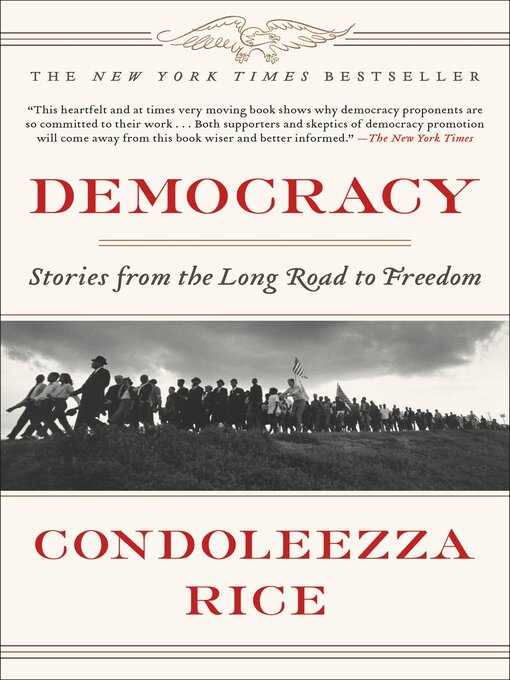
Preview Book
Democracy by Condoleezza Rice ⭐⭐⭐⭐
Between her academic background in political science and her experience as national security advisor and secretary of state for George W. Bush, Rice could be expected to provide unique insights into the challenges currently facing democracy worldwide. Instead, she blandly avers that “the overall trajectory is worth celebrating,” despite her own description of Russia as a “failed democratic experiment.” Rice also opines that “dashed expectations that democracy’s march would be linear” account, at least in part, for fears that democratic governments are actively on the decline. Beyond such unilluminating statements, Rice traces the history of democracy across the modern world, relating familiar facts about the U.S., Eastern Europe, Africa, and the Middle East. She also cannot resist blaming the Obama administration for depriving Iraq of a better future by deciding to pull American troops out of Iraq by the end of 2011, pursuant to an agreement with the Iraqi government that she had been party to. Rice’s post-Trump election epilogue is equally unsatisfying—she states that it is “stunning” that mature democracies like the U.S. have been affected by the global rise in populism, nativism, and isolationism, but concludes that it is too early to know whether the international order in place since the end of WWII will survive.
Preview Book
The Switch by Joseph Finder ⭐⭐⭐½
Boston coffee executive Michael Tanner's life is in jeopardy after he takes home the wrong laptop from the airport--one belonging to an Illinois senator containing highly classified files.The illegally uploaded files contain information about a scary government surveillance program. Fearful that the documents will be made public, torpedoing her presidential hopes, Sen. Susan Robbins assigns her overeager chief of staff, Will Abbott, to retrieve the computer. When all else fails, he resorts to hiring private operatives. Tanner discovers how desperate his situation is when a newspaper writer to whom he has shown the secret files is killed, in what is staged as a suicide. On the run, running low on cash and places to hide, Tanner is targeted not only by Abbott's hires, but also by thugs working for the National Security Agency, which deactivates all his online accounts. "Privacy?" utters one character. "Get over it. No such thing anymore." Seemingly ripped from recent headlines, Finder's latest is one of his most fiendishly plotted and eerily relevant thrillers. It involves careless security breaches by government officials, Russian spies, Edward Snowden parallels, and even an exchange of secrets in a Sensitive Compartmentalized Information Facility like the one recently utilized by Devin Nunes, Republican chairman of the House Intelligence Committee. Finder (Guilty Minds, 2016, etc.) isn't one to waste time considering the moral implications of such quickly forgotten acts as Tanner mowing down a pursuer with his car. And he fudges plot details: wouldn't the bad guys surveil Tanner's wife and let her lead them to him? But the book whizzes by so quickly and suspensefully, why dwell on such imperfections? A master of what might be called the "man in over his head" thriller, Finder delivers a tense, uncannily relevant tale about government secrets falling into the wrong hands.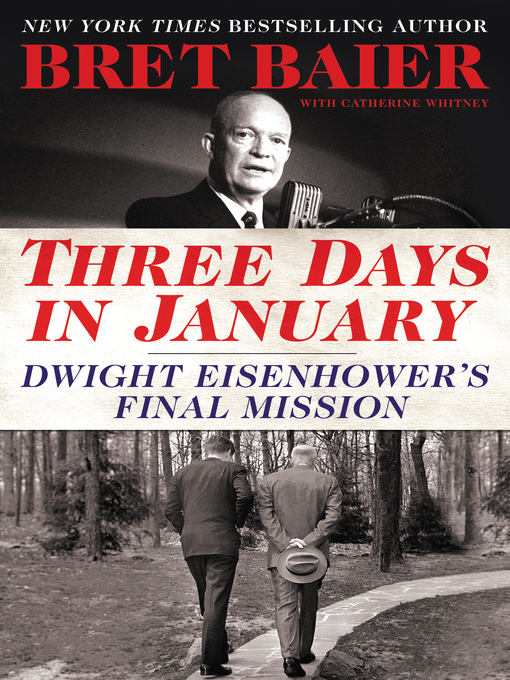
Preview Book
Three Days In January by Bret Baier ⭐⭐⭐½
A sobering return to Dwight Eisenhower's farewell address, arriving just before our own moment of uncertain presidential transition.Eisenhower was a paradox: a former supreme commander devoted to peace who managed to keep the country out of war for eight years and left a haunting warning in his final televised speech on Jan. 17, 1961, that the United States had become a "permanent war-based industry." With co-author Whitney, Fox News host Baier (Special Heart: A Journey of Faith, Hope, Courage and Love, 2014, etc.) brings new relevance to Eisenhower's parting message to the young, relatively inexperienced new president, John F. Kennedy. The author explores Eisenhower's last days in office, especially his sense of needing to prepare JFK for the "fate of the civilized world" and brace him against the military-driven mindset. Unlike his relations with his own predecessor, Harry Truman, which were strained and chilly, the World War II hero came around to respecting the glamorous young senator despite their vastly different backgrounds and his inglorious defeat of Richard Nixon. In the 1960 campaign, Kennedy had run on the "missile gap" between the U.S. and Soviet Union--the Soviets had launched the world's first artificial satellite--which Eisenhower knew was "a clever, yet devious, tactic." It was also misleading, since both countries had enough nuclear weapons to leave the world "a moonscape of radioactive ash." This was Eisenhower's message in his parting address, which is included in its entirety in an appendix: that industry had taken over the military; that bright retiring military people had gravitated to aerospace and other related industries; and that massive federal funding outlays were being granted for scientific-military research. As Baier notes, his speech warning of "unwarranted influence...by the military-industrial complex" proved enormously prescient even though it was not widely reported on at the time. Kennedy would learn this lesson quickly in the Bay of Pigs fiasco. A focused and timely study of Eisenhower's significant speech and the sticky transition to JFK's inherited new world.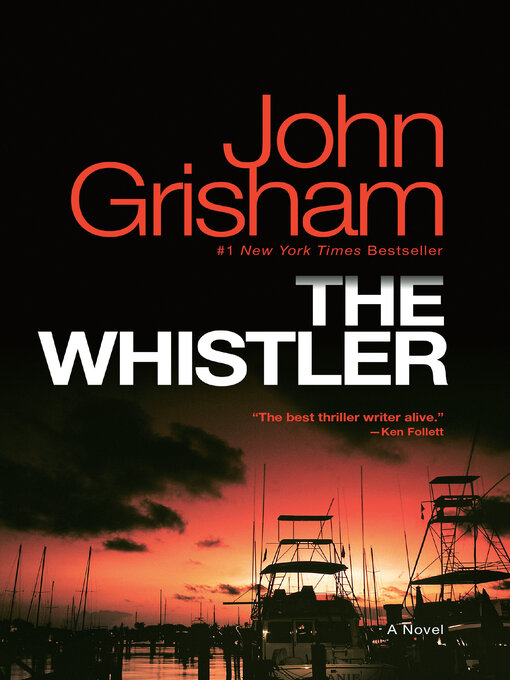
Preview Book
The Whistler by John Grisham ⭐⭐⭐⭐
Lawyer Lacy Stolz, the heroine of this tense legal thriller from bestseller Grisham (Rogue Lawyer), investigates complaints against judges for the Florida Board on Judicial Misconduct. In her nine years on the job, there has never been any danger in her assignments; the justices are often more incompetent than corrupt. Everything changes when Stolz and a colleague, Hugo Hatch, meet with a disbarred lawyer, whoâeager to collect a whistleblower's rewardâhas evidence of corruption unlike anything they have ever handled. A judge in the pocket of the Coast Mafia has spent years skimming millions from a Native Americanâowned casino. At least three people have been murdered to cover up the graft, and an innocent man sits on death row, but few are willing to help Stolz and Hatch expose the corruption. The casino keeps the money flowing, and stepping forward could be deadly. A lead brings Stolz and Hatch onto tribal land, where they find themselves caught in a trap. A high-stakes game of gambling, greed, and murder plays out in another page-turner from a master storyteller.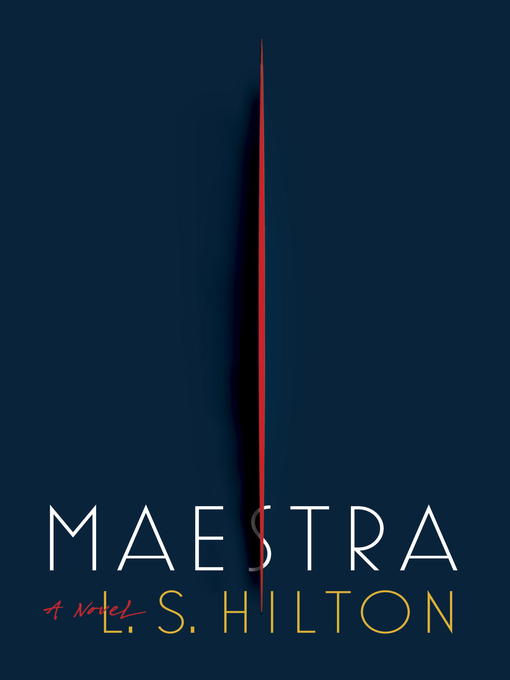
Preview Book
Maestra by L. S. Hilton ⭐⭐⭐
Hilton's novel about a woman with exotic sexual appetites and a penchant for murdering those who cross her mixes blood and sex the way a bartender slaps together martinis. Judith Rashleigh works as an assistant in a large London art house known as British Pictures. While toiling under the repugnant Rupert, she finds occasional employment working in a club where gentlemen of wealth spend the evening in the company of a beautiful woman. No sex is involved, but it wouldn't bother Judith if it was: she has the sexual appetite of a 16-year-old boy and is open to any and all partners. While having detailed coitus with almost everyone she meets, Judith stumbles on a nefarious scheme to defraud a hapless art buyer with Rupert behind the wheel. At first she's not aware that it's Rupert's swindle and tries to expose it, which earns her a pink slip. She and another woman at the club accompany one of her regulars, an enormously fat married man named James, to France, where they slip some drugs into his drink so they can party, and, before they know it, James is dead. For Judith, that's when the fun begins. Hilton's character spends the bulk of the book killing people--sometimes viciously; having minutely described sex, often with total strangers and with an emphasis on overweight men; and dropping the names of rich people's playgrounds, unusual and luxurious foods, and all the designer clothes she buys and wears. Judith, it seems, likes the best of everything. Readers are promised that Judith's depraved tour of Europe will continue. Billed as erotic suspense, this is not a book for suspense fans; it's more a portrait of a sociopathic woman with a voracious appetite for sexual adventure.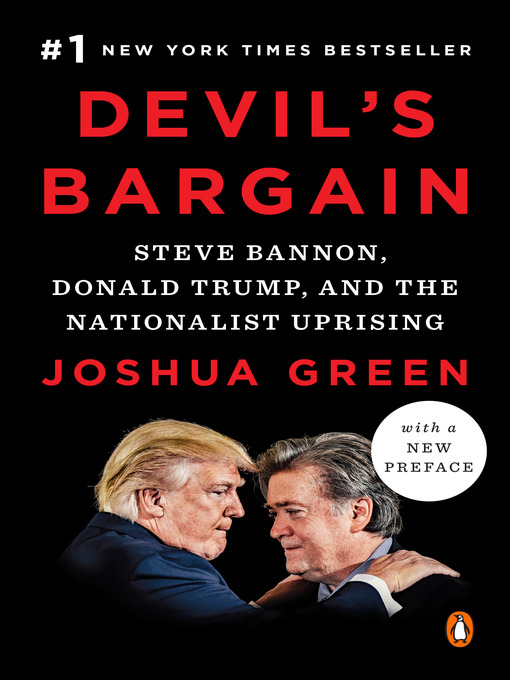
Preview Book
The Devil's Bargin by Joshua Green ⭐⭐⭐½
Veteran journalist Green offers persuasive answers to questions about how Donald Trump won the presidency in this timely book that builds on the serendipitous relationship Green had developed with Trump advisor Steve Bannon since 2011. That access paid off in spades when Bannon was brought aboard a floundering Trump presidential campaign in 2016. It enabled Green to provide dramatic “you are there” scenes, as in the opening section, when, on election eve, an anonymous campaign advisor (whom Bannon guesses is Kellyanne Conway) told CNN that it would take a miracle to win. Beyond those Woodwardesque fly-on-the-wall moments, Green provides insights into Bannon, “a brilliant ideologue from the outer fringe of American politics—and an opportunistic businessman—whose unlikely path happened to intersect with Trump’s at precisely the right moment in history.” His analysis shows how the election’s outcome was shaped both by chance developments, such as Hillary Clinton’s email issue resurfacing in connection with Anthony Weiner, and strategic decisions, such as where the Trump and Clinton campaigns focused their efforts. There will be revelations even for readers who follow the news avidly, such as Trump’s onetime popularity with African-Americans and Latinos during his stint hosting Celebrity Apprentice, but the book’s primary value lies in making Trump’s surprise victory seem unsurprising, and in showing Bannon as more than a one-dimensional caricature.
Preview Book
The Late Show by Michael Connelly ⭐⭐⭐⭐
An LAPD detective fighting doggedly for justice for herself and a wide array of victims.Ever since her partner, Detective Ken Chastain, failed to back up her sexual harassment claim against Lt. Robert Olivas, her supervisor at the Robbery Homicide Division, Renee Ballard has been banished to the midnight shift--the late show. She's kept her chin down and worked her cases, most of which are routinely passed on to the day shifts, without complaints or recriminations. But that all ends the night she and Detective John Jenkins, the partner who's running on empty, are called to The Dancers, a nightclub where five people have been shot dead. Three of them--a bookie, a drug dealer, and a rumored mob enforcer--are no great loss, but Ballard can't forget Cynthia Haddel, the young woman serving drinks while she waited for her acting career to take off. The case naturally falls to Olivas, who humiliatingly shunts Ballard aside. But she persists in following leads during her time off even though she'd already caught another case earlier the same night, the brutal assault on Ramona Ramone, ne Ramon Gutierrez, a trans hooker beaten nearly to death who mumbles something about "the upside-down house" before lapsing into a coma. Despite, or because of, the flak she gets from across the LAPD, Ballard soldiers on, horrified but energized when Chastain is gunned down only a few hours after she tells him off for the way he let her down two years ago. She'll run into layers of interference, get kidnapped herself, expose a leak in the department, kill a man, and find some wholly unexpected allies before she claps the cuffs on the killer in a richly satisfying conclusion. More perhaps than any of Connelly's much-honored other titles, this one reveals why his procedures are the most soulful in the business: because he finds the soul in the smallest procedural details, faithfully executed.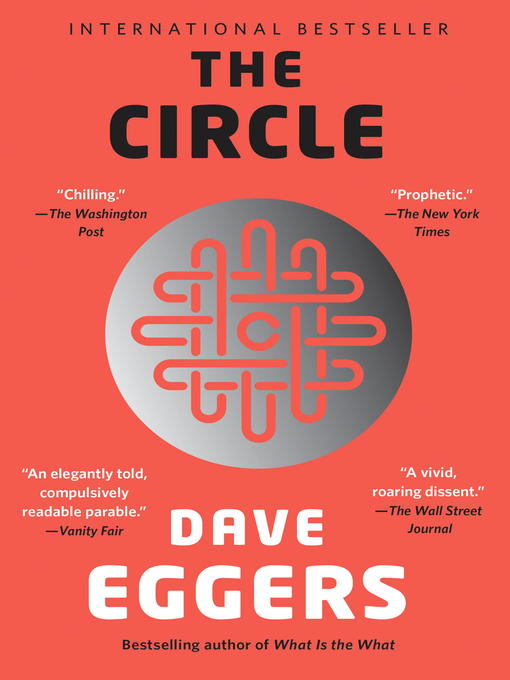
Preview Book
The Circle by Dave Eggers ⭐⭐⭐½
The latest offering from McSweeney's founder Eggers (A Hologram for the King) is a stunning work of terrifying plausibility, a cautionary tale of subversive power in the digital age suavely packaged as a Silicon Valley social satire. Set in the near future, it examines the inner workings of the Circle, an internet company that is both spiritual and literal successor to Facebook, Google, Twitter and more, as seen through the eyes of Mae Holland, a new hire who starts in customer service. As Mae is absorbed into the Circle's increasingly demanding multi- and social media experience, she plays an ever more pivotal role in the company's plans, which include preventing child abductions through microchips, reducing crime through omnipresent surveillance, and eliminating political corruption through transparency courtesy of personal cameras. Soon, she's not alone in asking what it will mean to "complete the Circle" as its ultimate goal comes into view; even her closest friends and family suspect the Circle is going too far in its desire to make the world a better, safer, more honest place. Eggers presents a Swiftian scenario so absurd in its logic and compelling in its motives that the worst thing possible will be for people to miss the joke. The plot moves at a casual, yet inexorable pace, sneaking up on the reader before delivering its warnings of the future, a worthy and entertaining read despite its slow burn.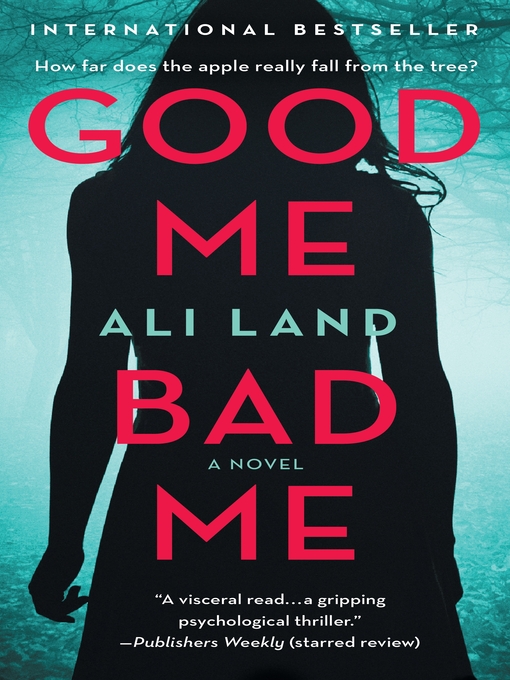
Preview Book
Good Me Bad Me by Ali Land ⭐⭐⭐⭐
TLand asks if we are doomed to repeat the sins of our fathers--or, in this case, mothers--in her assured, creepy debut.Fifteen-year-old Annie has a new home in London--and a new name, Milly--now that she's turned her mother in to the police. Psychologist Mike Newmont, his troubled wife, Saskia, and their daughter, Phoebe, have taken Milly in until her mother's trial begins in 12 weeks. Only Mike and a few others know who Milly really is: the daughter of a nurse who murdered nine young children. Mike will be overseeing Milly's therapy until the trial and is eager for her to fit into his family. However, Milly, who narrates the book, senses that something isn't right between Saskia and Phoebe, and Phoebe, along with her friends, immediately starts a campaign of terror against the newcomer, whom she sees as an intruder in her family. Milly does find a friend in a younger girl, Morgan, who obviously has family problems of her own, but as the trial looms, Milly struggles to be the good person she longs to be even as the voice of her mother pushes her to give in to her darker urges. Can Milly find her own way, or is she a slave to her upbringing? Land, a mental health nurse, puts her knowledge to good use in her portrayal of Milly, who was raised by a sexually abusive monster who recruited her to play a role in her unspeakable crimes. A sense of creeping dread drives the narrative, and that most fascinating of crime-novel subjects, the female serial killer, casts a formidable shadow. Milly wages a war within herself that she may or may not win. Readers will be more than happy to go along for the ride and may be surprised how they feel about the conclusion, proving the unmistakable spell that Land has cast. Sly, unsettling, and impossible to put down.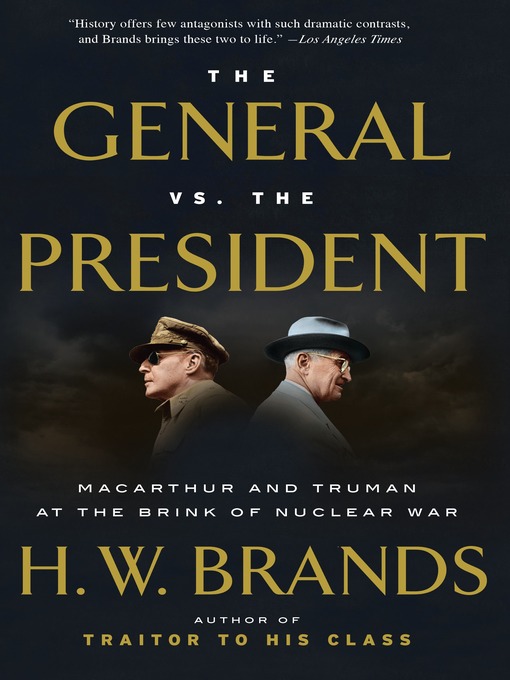
Preview Book
The General vs. the President by H. W. Brands ⭐⭐⭐⭐
Brands (Reagan), professor of history at the University of Texas at Austin, expounds on President Truman’s decision, in April 1951, to fire Gen. Douglas MacArthur, then the UN commander in Korea, after months of listening to him threaten to expand the war. The issues behind this decision might take up as much as a long magazine article, so Brands adds workmanlike dual biographies and an account of the Korean War before getting down to his main business, which will refresh readers’ memories without adding any special insights. Despite MacArthur’s assurance that they wouldn’t, Chinese forces entered the war in November 1950. During the headlong retreat that followed, MacArthur uttered increasingly shrill warnings about Armageddon unless he was permitted to attack China proper. The general’s superiors never shared the public’s adoration of him, and all supported Truman’s action in relieving him. This produced widespread but short-lived outrage, and historians now agree it was the right decision. Brands does not rock any boats. His Truman is a plainspoken leader whose reputation has risen steadily since bottoming out in 1951. His MacArthur, a military genius with an inflated ego, follows a timeworn tradition. Readers may weary of long quotations from correspondence and committee hearings, but they will encounter the definitive history of a half-forgotten yet bitter controversy.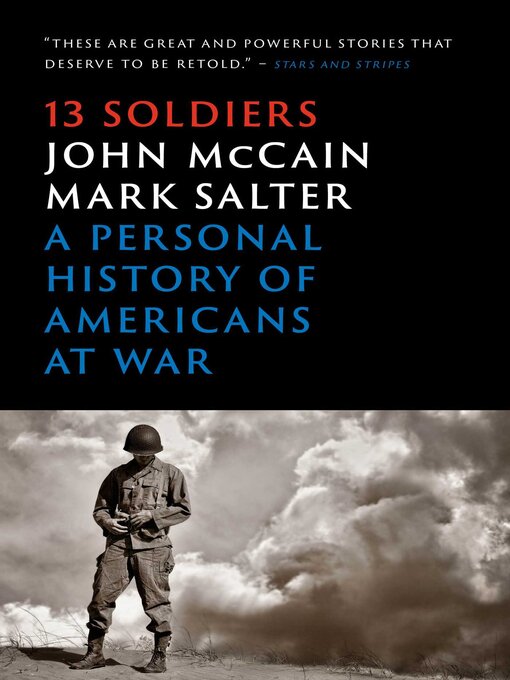
Preview Book
Thirteen Soldiers by John McCain ⭐⭐⭐
In their sixth collaborative work, coauthors McCain and Salter (Faith of My Fathers) profile 13 soldiers, sailors, airmen, and marines; each from one of the 13 major conflicts in which the United States has been involved. Stories depict some aspect of wartime and combat experience, and the wide variety of characters involved makes for many fascinating accounts. Some of the subjects will be familiar to readers--Joseph Plumb Martin and Oliver Wendell Holmes Jr., for example. Others are not as well known, including George Roberts, an African American gunner on a War of 1812 privateer, and Mary Rhoads, an army soldier during the Gulf War. Chapters have similar structure and provide a brief introductory biography followed by descriptions of major events in that person's tale. The bulk of each section contains the history of the featured individual's engagements, pleasantly interwoven with their personal experiences. The text as a whole offers insights into life during battle; however, it comes across as a bit disjointed, seeming more a compilation of minibiographies than a work with an overriding theme.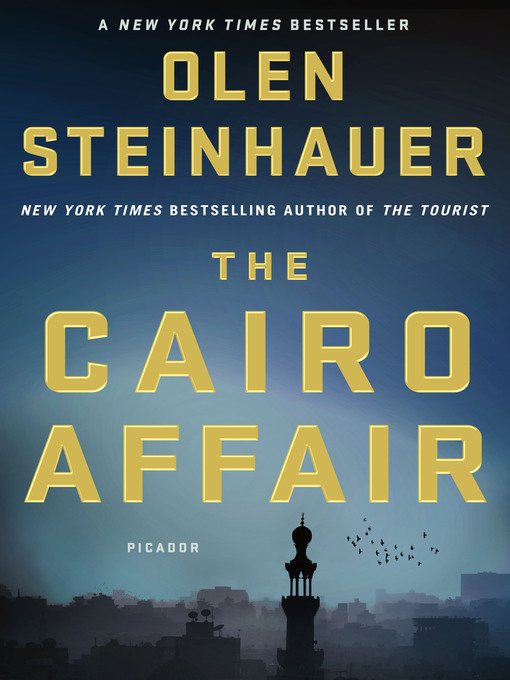
Preview Book
The Cairo Affair by Olen Steinhauer ⭐⭐⭐⭐
Like luxury watchmaker Franck Muller, Olen Steinhauer is the espionage “Master of Complications.” The Cairo Affair is an elegant, elaborate clockwork of mystery and deception that should draw readers in and keep them on tenterhooks as they try to figure out what is really making it all tick.It opens in the bowels of CIA headquarters during the Arab Spring. A Libyan-American analyst thinks he sees his previously rejected secret plan to overthrow Gadhafi going operational. But why and how? And who’s behind it? Then in a restaurant in Budapest, American diplomat Emmett Kohl is gunned down by a hit man in front of wife, Sophie, just seconds after informing her that he knows all about her affair with a CIA agent last year when they were stationed in Cairo. What can the connection be? In the thick of Arab revolutions, the action toggles from the streets of Cairo to the Libyan Desert to Budapest. Then back in time to 1991, when Emmett and Sophie honeymooned in wartime Yugoslavia. There they met Zora, the mysterious Serbian spymistress, who now has her tentacles around everyone.
Steinhauer seduces with the web of falsehoods that the characters spin, in their desperate attempts to stay alive. Nothing is as it seems. “Who trusts anyone these days?” asks the Cairo CIA bureau chief. “Don’t take it personally. In a situation like this, everything should be examined, and if you’re missing some crucial piece of information, it’s best to assume you don’t know anything.” This is also good advice for the reader. It is how this writer keeps us turning the pages.
Steinhauer is often compared to John le Carré. But the comparison does not adequately serve either author. (Is there an homage to le Carré here? No fan of the master could forget his first post-cold-war novel The Night Manager—a doomed affair set in Cairo, with a woman named Sophie. Can this possibly be a coincidence?) Le Carré’s books are driven by insoluble moral quandaries. What’s more, with his breathtaking insight and economy, le Carré draws his characters from the inside out, making us feel the awful weight of their existential burdens. Steinhauer does make references to the inner lives of his characters, but to this reader they remain superficial—like tweets about their emotions sent from an iPhone.
What Steinhauer’s writing delivers is adrenalin. The Cairo Affair is the Olympics of Deception. Steinhauer’s characters are gold medalists of lying. Watching them deceive one another and themselves is riveting.
Whose lies will finally be at the bottom of this dizzying clockwork of interconnected deceits? By the time you reach the end of the book and find out, you will be exhausted and satisfied with the journey. But you will see that the novel is like a Franck Muller watch, a construct of beauty—but metallic and cold. No matter. One marvels at the intricacy of its imagination and the elegance of its maker’s craftsmanship.
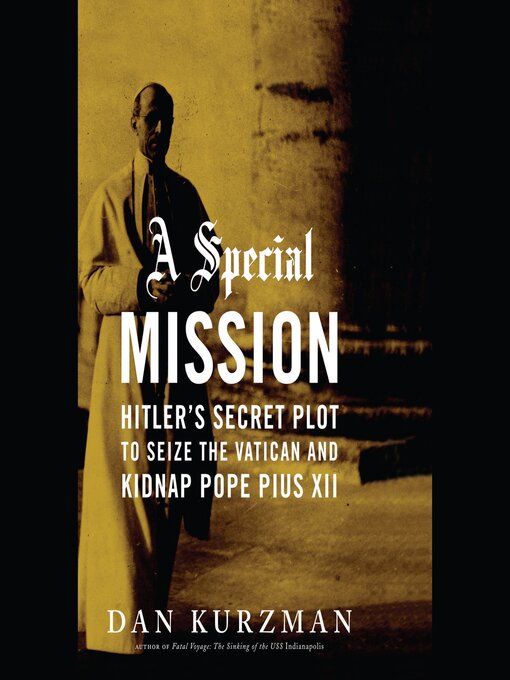
Preview Book
A Special Mission by Dan Kurzman ⭐⭐⭐⭐
In 1943 Hitler attempted to kidnap Pope Pius XII so the Germans could occupy the Vatican. The Nazis were also planning to deport the Roman Jews to Auschwitz. SS General Karl Wolff, Heinrich Himmler's chief aide, was charged with carrying out these orders. George Wilson reads this WWII history in an even and engaged tone, effortlessly recounting each action of the convoluted plot, which Kurzman researched, in part using primary sources. The result is unexpected international intrigue as Wolff attempts to forestall both the kidnapping and the mass deportation while the Vatican tries to reign in the Reich's growing power through political and religious edicts. 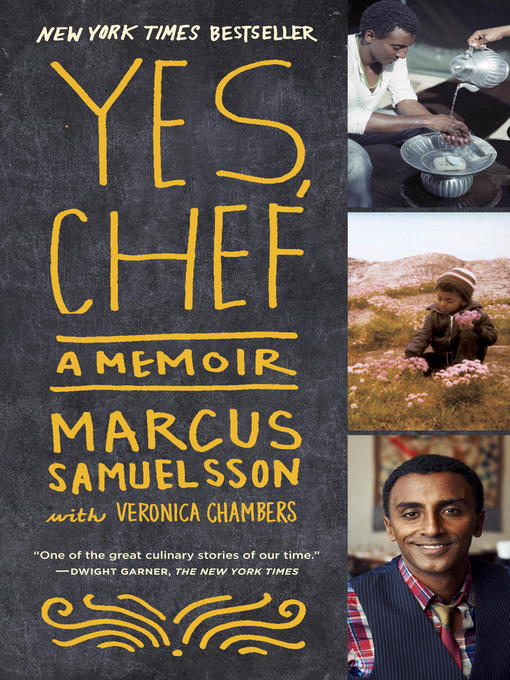
Preview Book
